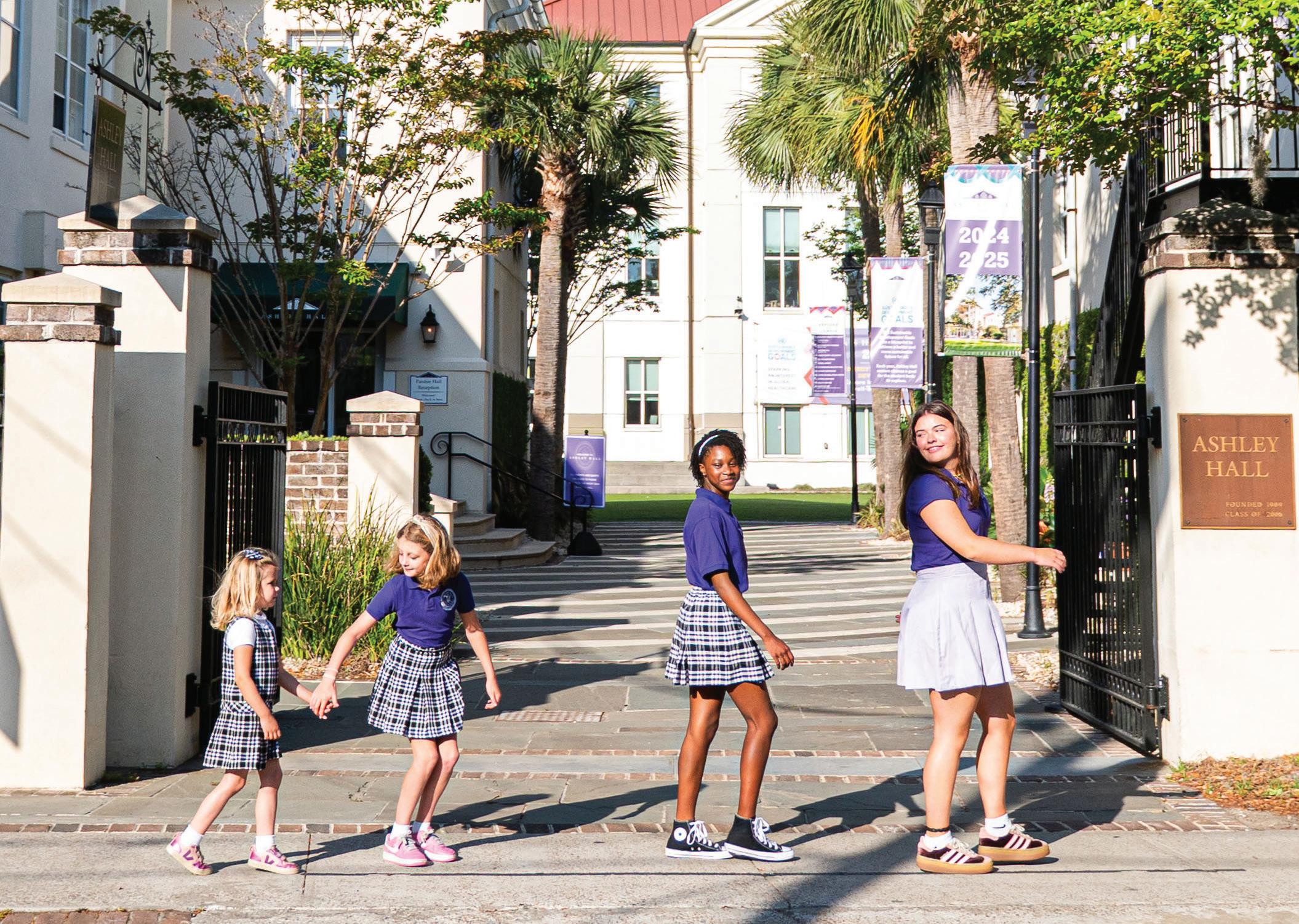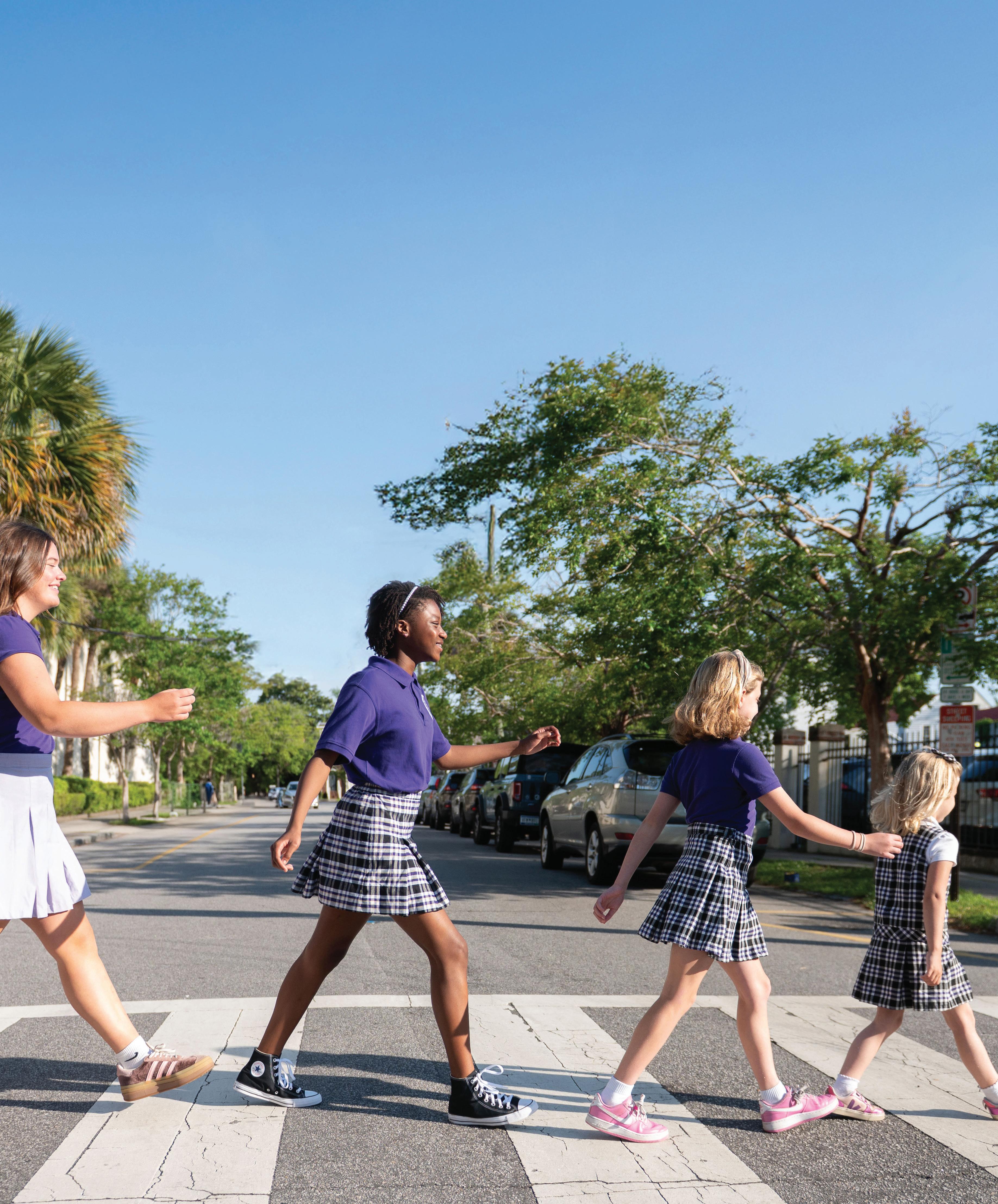

A Bold Step Forward in Education
Ashley Hall's Journey Toward International Baccalaureate Authorization
ASHLEY HALL BOARD OF TRUSTEES
2024–2025
OFFICERS
Rhett Ramsay Outten ’82 | Chair
Eric Strickland | Vice Chair
M. Ann Riopel, MD ’83 | Secretary
Kurt Palmer | Treasurer
MEMBERS-AT-LARGE
Anne Frances Bleeker ’76
Lilla Lane Clark ’01
Sara E. DeWolf
Gautam Ghatnekar, PhD
Lucy Mackilligin Guffey
Kendra Y. Hamilton, PhD, ’76
Helen Hill ’81
Jamie Kerr
Marlon Kimpson
Lenna S. Kirchner
John E. Marko, Jr.
Joanne Migliori
Jane Werrell Prevost ’06
Rowan G. P. Taylor
Dana Van Hook
TRUSTEES EMERITI
Mary Agnes Burnham Hood
Philip Horn
Martha Rivers Ingram ’53
Patricia T. Kirkland
Hugh C. Lane, Jr.
Elizabeth Rivers Lewine ’54
Karen Jenkins Phillips ’79
Heidi Ward Ravenel ’74
Jerry Reves, MD
Conrad Zimmerman, Jr.
HEAD OF SCHOOL
Anne T. Weston, PhD, ’73
ASHLEY HALL PERSPECTIVES
MAGAZINE EDITORIAL STAFF
Paula Harrell | Director of Strategic Marketing & Communications
Kassandra von Etzdorf | Editor in Chief & Writer
Kate Daughtry | Creative Director & Designer
Please forward any address changes to
Ashley Hall Institutional Advancement Office, 172 Rutledge Avenue, Charleston, South Carolina 29403, or email barnetta@ashleyhall.org
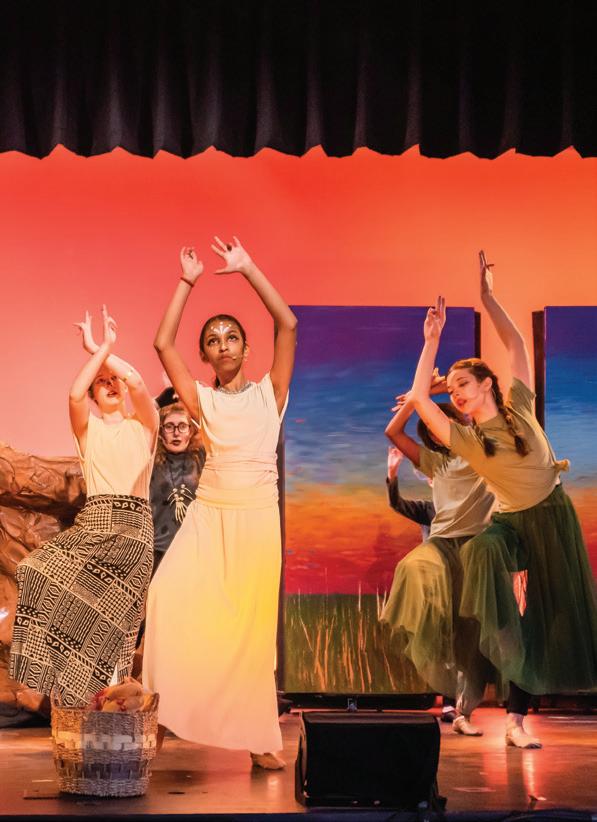


BEHIND THE COVER:
This issue’s cover captures a joyful moment as students from every division of Ashley Hall stride together toward a brilliant future. From playful poses to purposeful steps, the photo session was filled with laughter, creativity, and camaraderie. Each girl brought her own energy and style, making it a true celebration of our community, spirit, and endless potential.
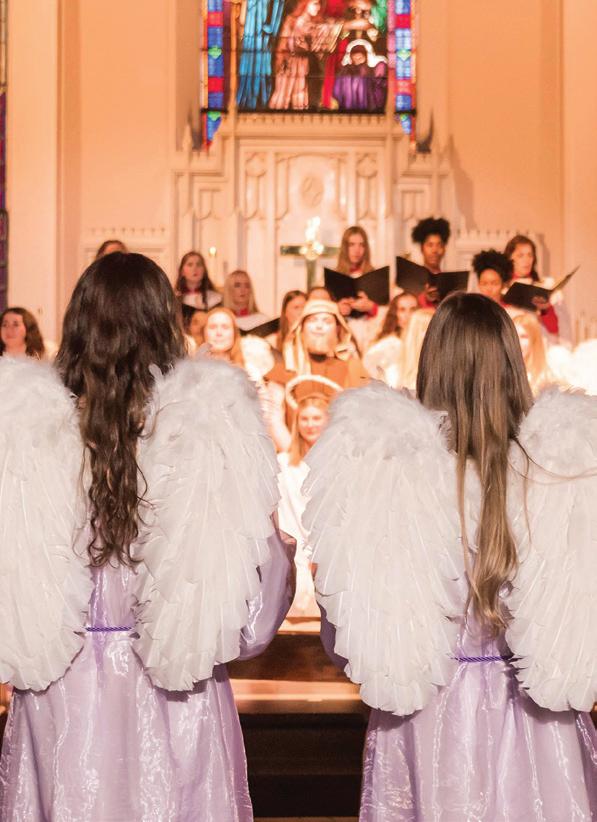
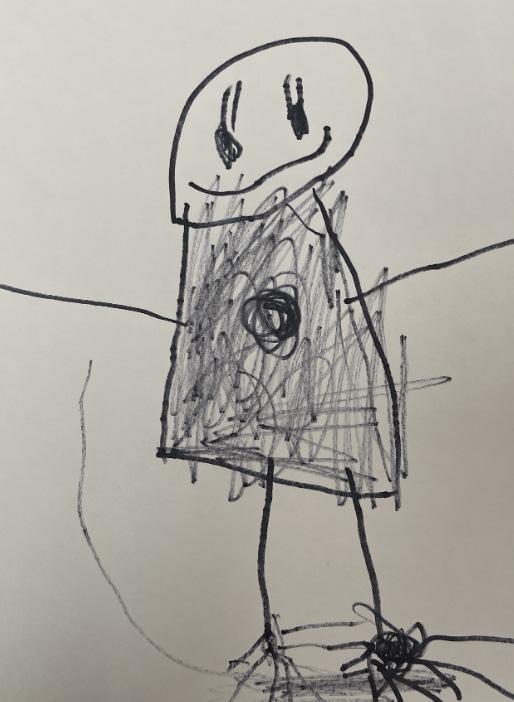
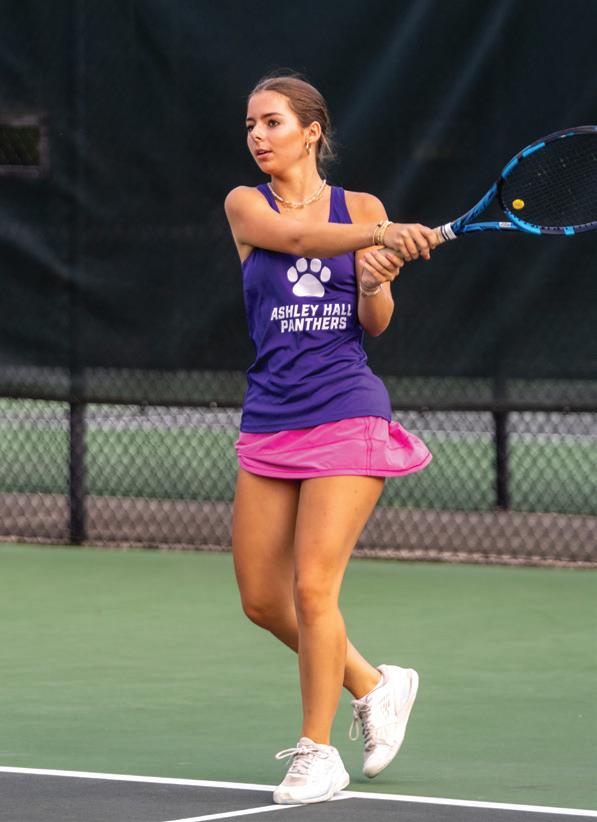
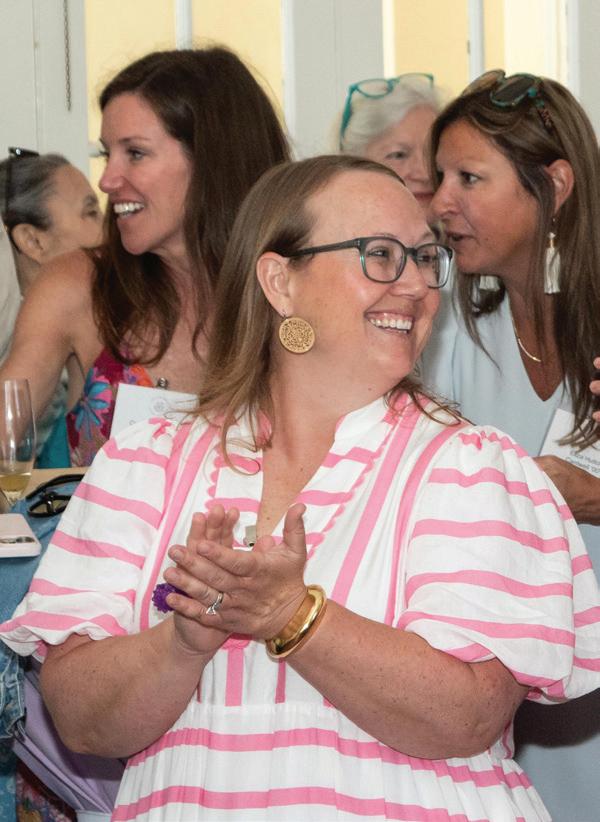
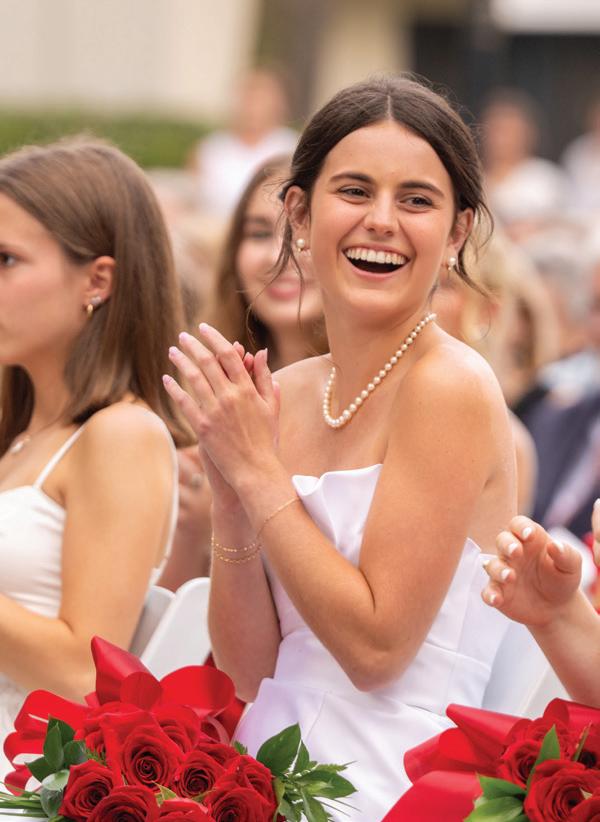
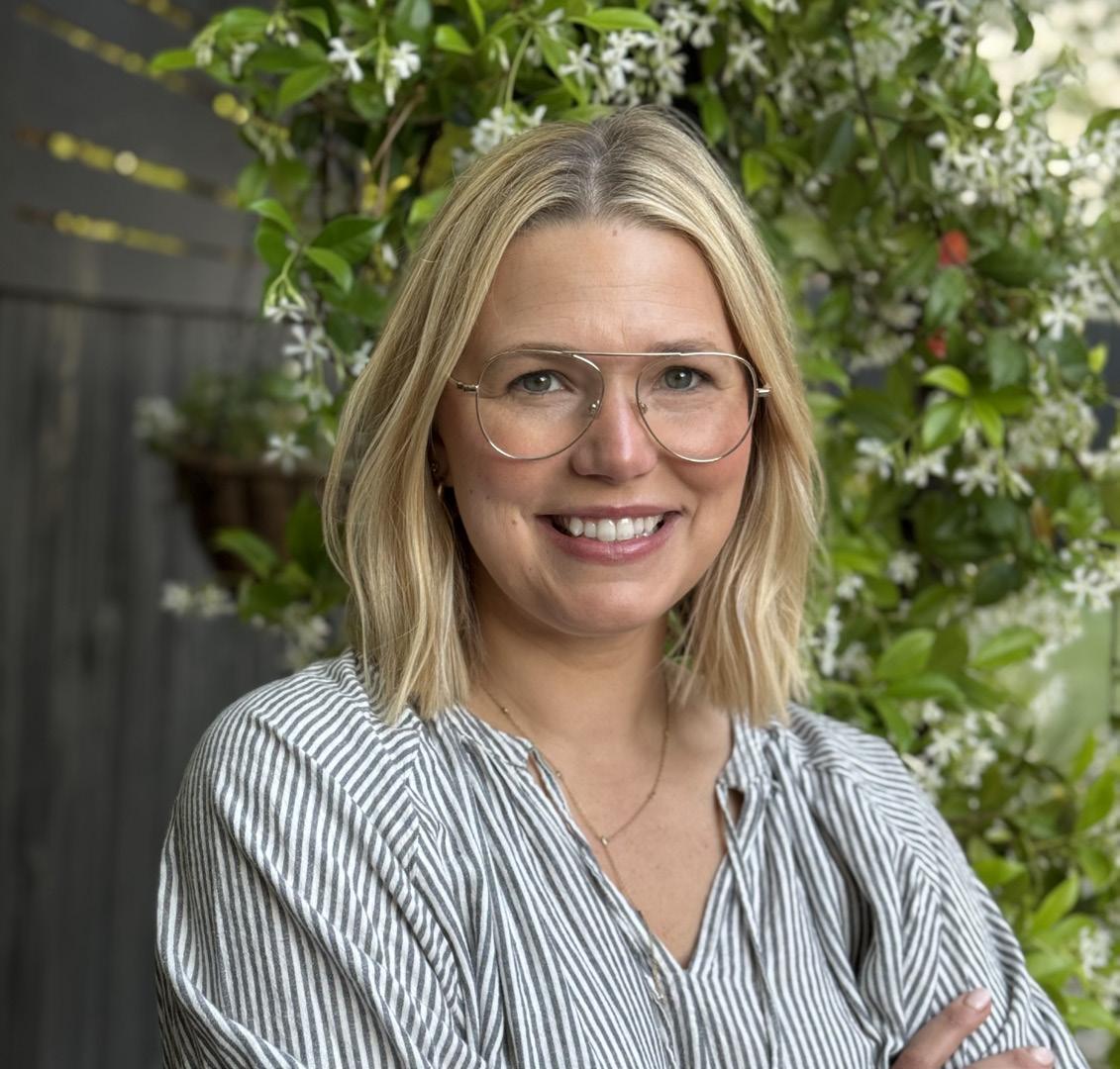
CONTRIBUTING WRITERS
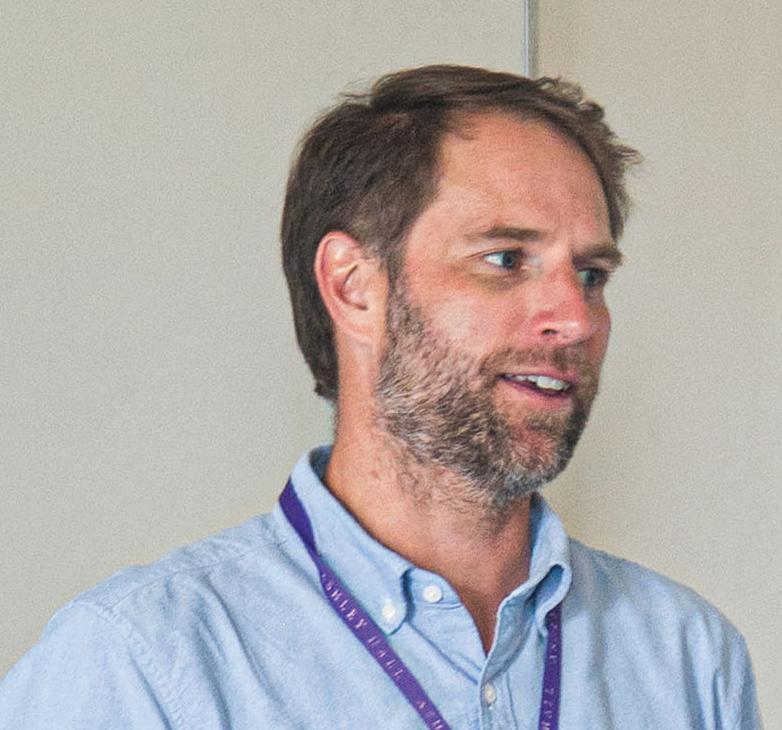
John is the Chair of the History Department for Middle and Upper School at Ashley Hall. He previously taught in San Diego and New England. He earned his BA from Brown University and Master’s Degree from the London School of Economics. When not in the classroom, he enjoys eating his wife’s baked goods and being outdoors.
Kassandra von Etzdorf is the Editor in Chief and writer of most of the stories you will read on the following pages.
She also serves as Writer and Editor at Ashley Hall. Kass first fell in love with the School as a parent and now has the joy of seeing it from the inside out—proof that some journeys come full circle in the most delightful ways. She is passionate about storytelling and is excited to keep connecting dots, people, and moments across this vibrant community.
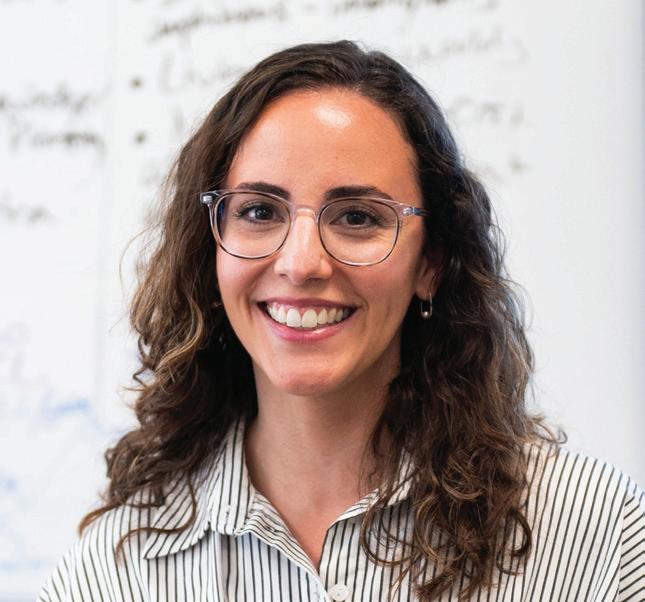
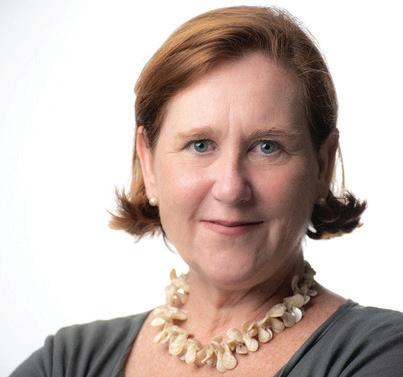
As a Middle School faculty member at Ashley Hall, Christina enjoys igniting curiosity and creativity in her students. Outside of the classroom, she can be found chasing after her two children, catching a film at The Terrace Theater, or working on interior design projects.
Maura Hogan ’82 is an awardwinning writer and the founding editor of Culture South. Her work has appeared in The New York Times, the Chicago Tribune, Gourmet, Garden & Gun, and The Post and Courier, among other publications.
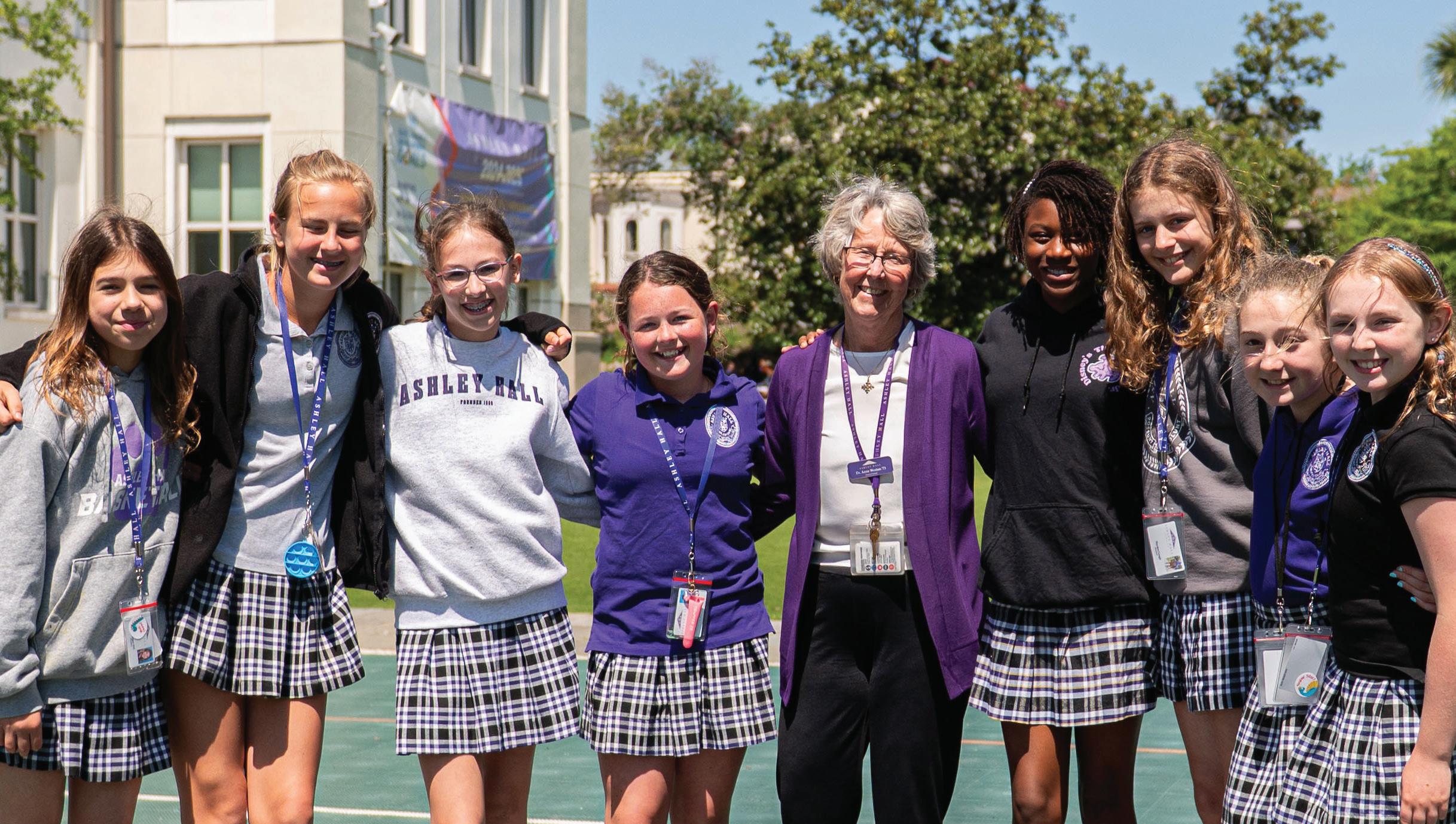
As we close out what has truly been a banner year, I am proud to share with you this latest issue of Perspectives, a celebration of the extraordinary growth, deepened community engagement, and renewed spirit that have marked the 2024–2025 academic year. In a world where change is swift and often unpredictable, Ashley Hall remains a place of grounding; steadfast in our mission, rich in tradition, and boldly responsive to the moment.
This issue highlights the evolution of student identity across our divisions, illustrating how we empower every student to discover and express their unique voice, encouraging them to take bold steps forward each day. You will find reflections of this in “Into the Looking Glass” on page 20, an exploration of Early School selfportrait work, and “The Middle School Spark” on page 24, which delves into the unique experiences of students in grades five through eight. These stories, and so many more, showcase a community that is thriving: connected, purposeful, and inspired. From celebrating our Varsity Tennis Team’s State Championship win to the impressive production of The Lion King Jr. musical we saw this year, our students continue to demonstrate excellence, creativity, and spirit in every endeavor, both inside and outside the classroom.
We are also proud to announce that the Ashley Hall Lower School has received full authorization as an International Baccalaureate Primary Years Programme—a milestone that underscores our commitment to inquiry-based learning and global-mindedness. Looking ahead, we are excited to continue our candidacy for the IB Middle Years Programme, further extending the depth and continuity of our academic mission. Learn more about Ashley Hall and the International Baccalaureate in “Following the Winds of Purpose” on page 36.
Thank you for being part of an exceptional year. Onward we continue, with purpose and pride.
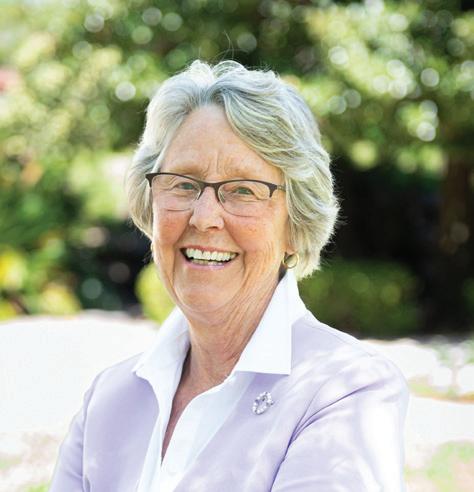
Anne T. Weston, PhD, ’73 Head of School
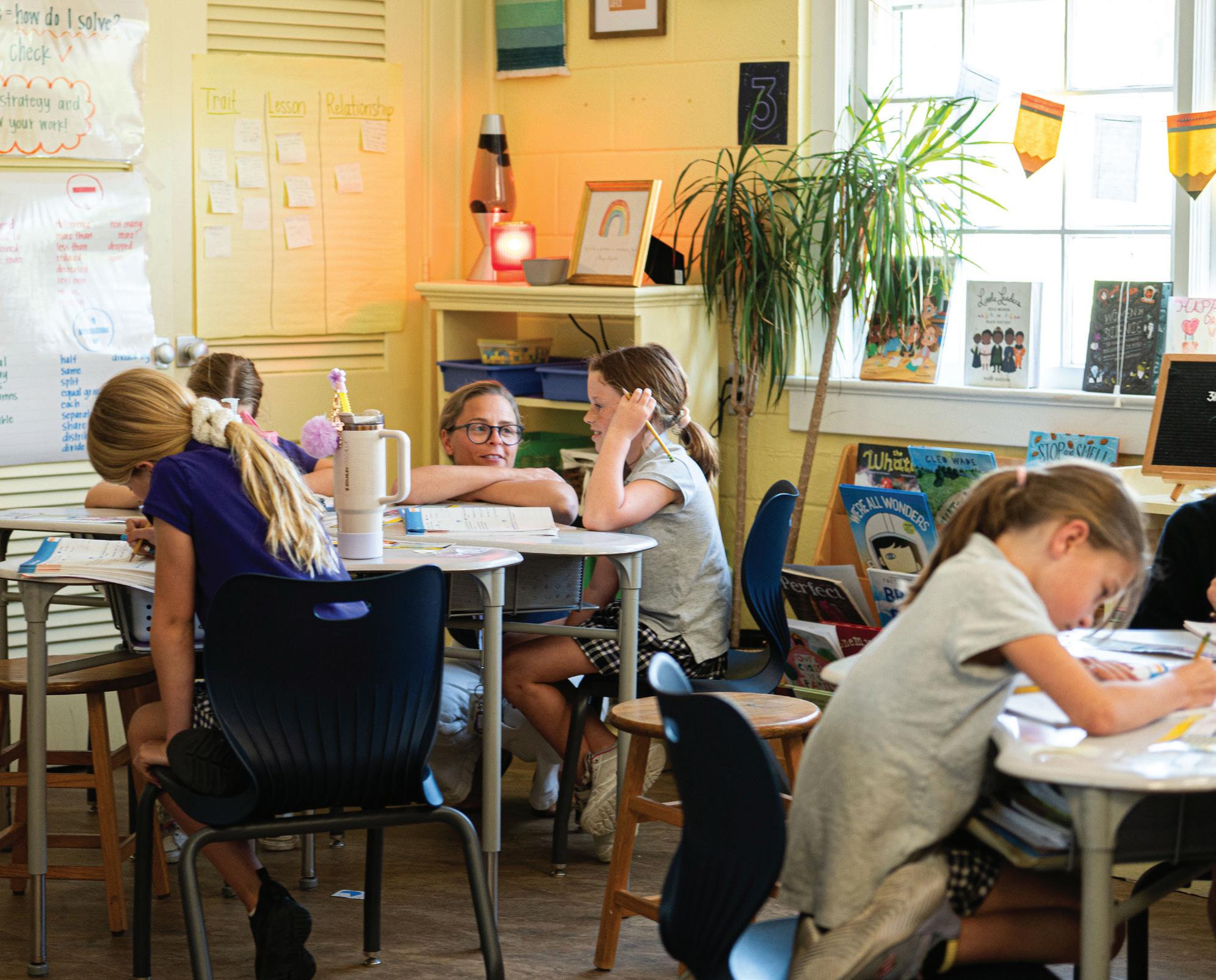
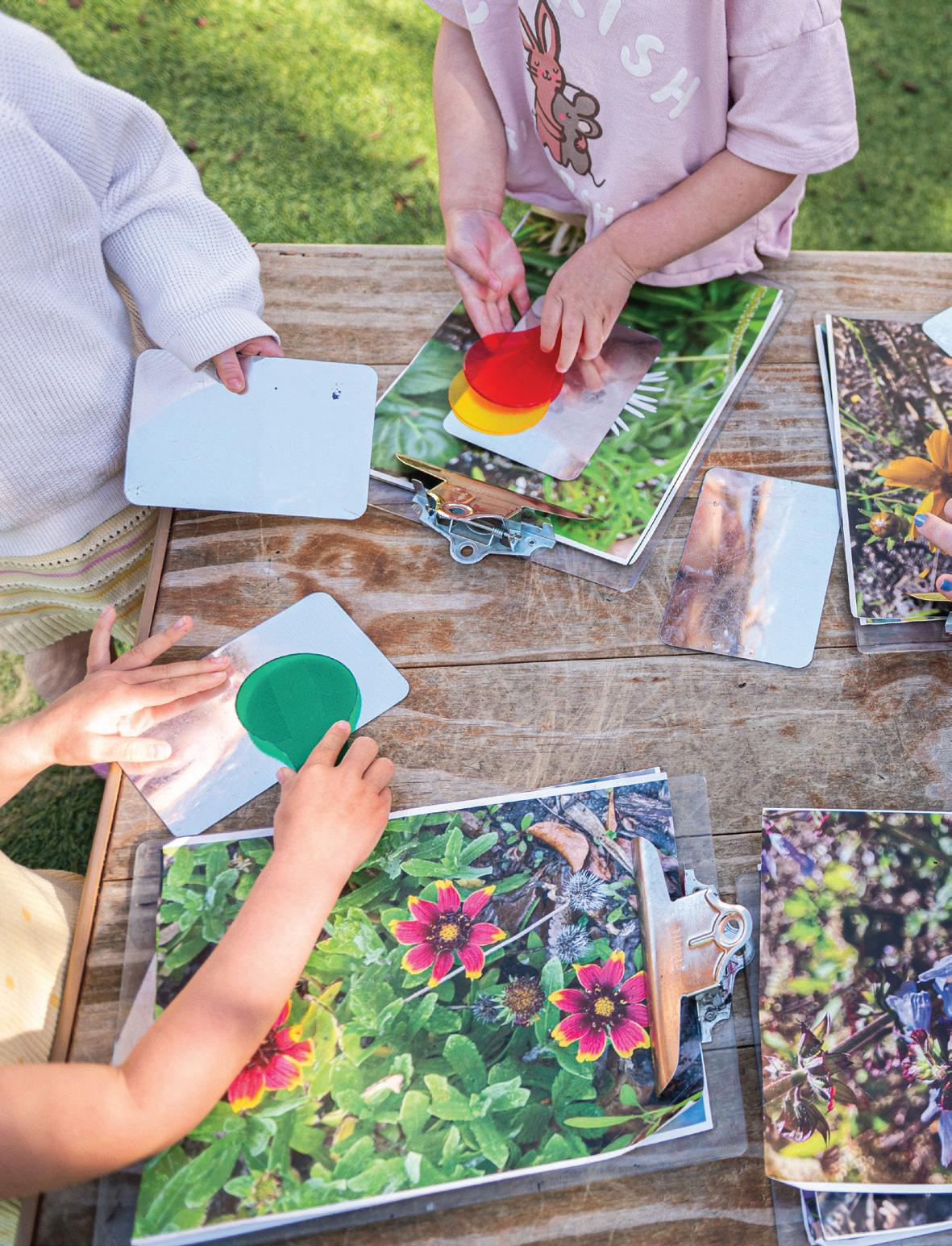
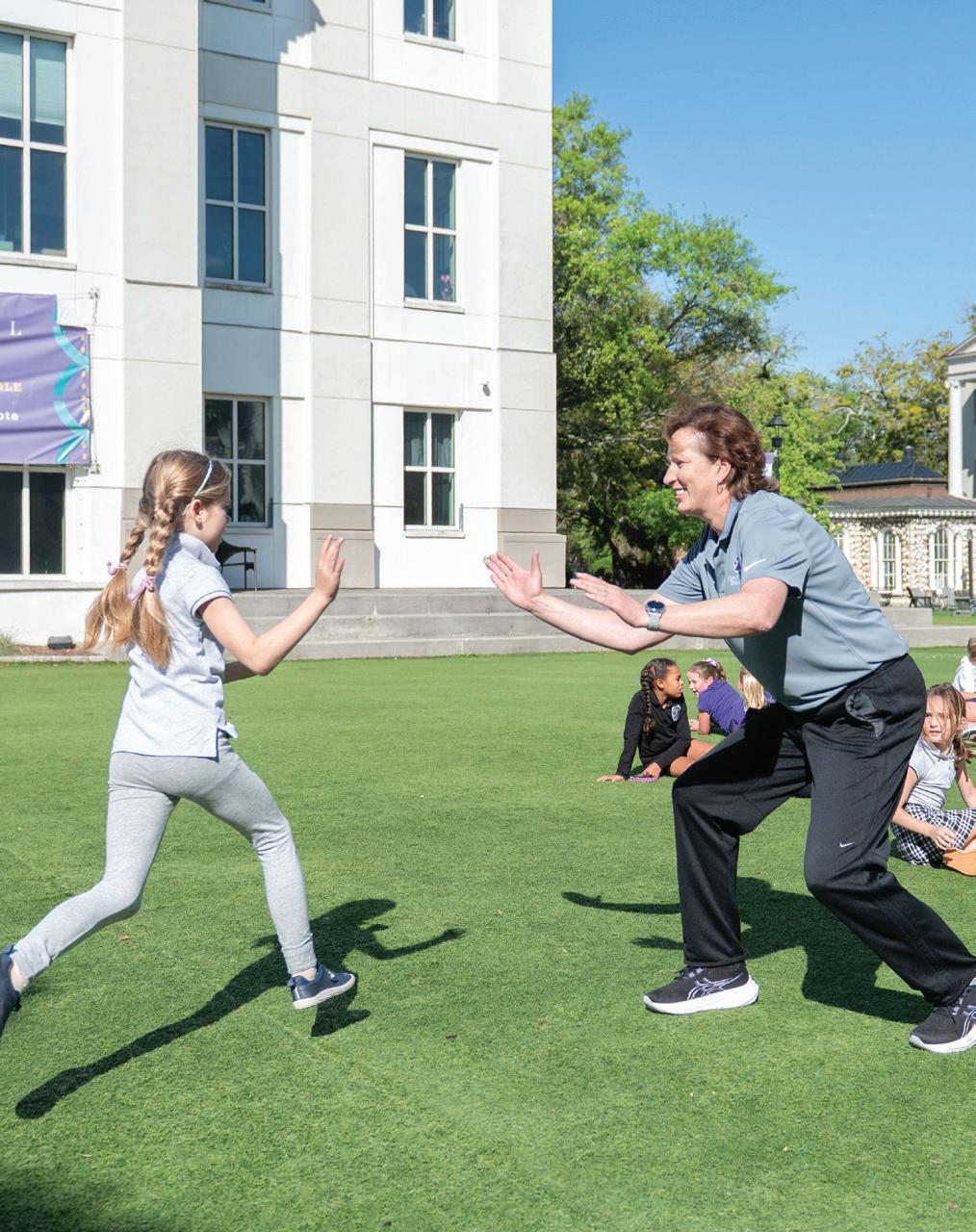
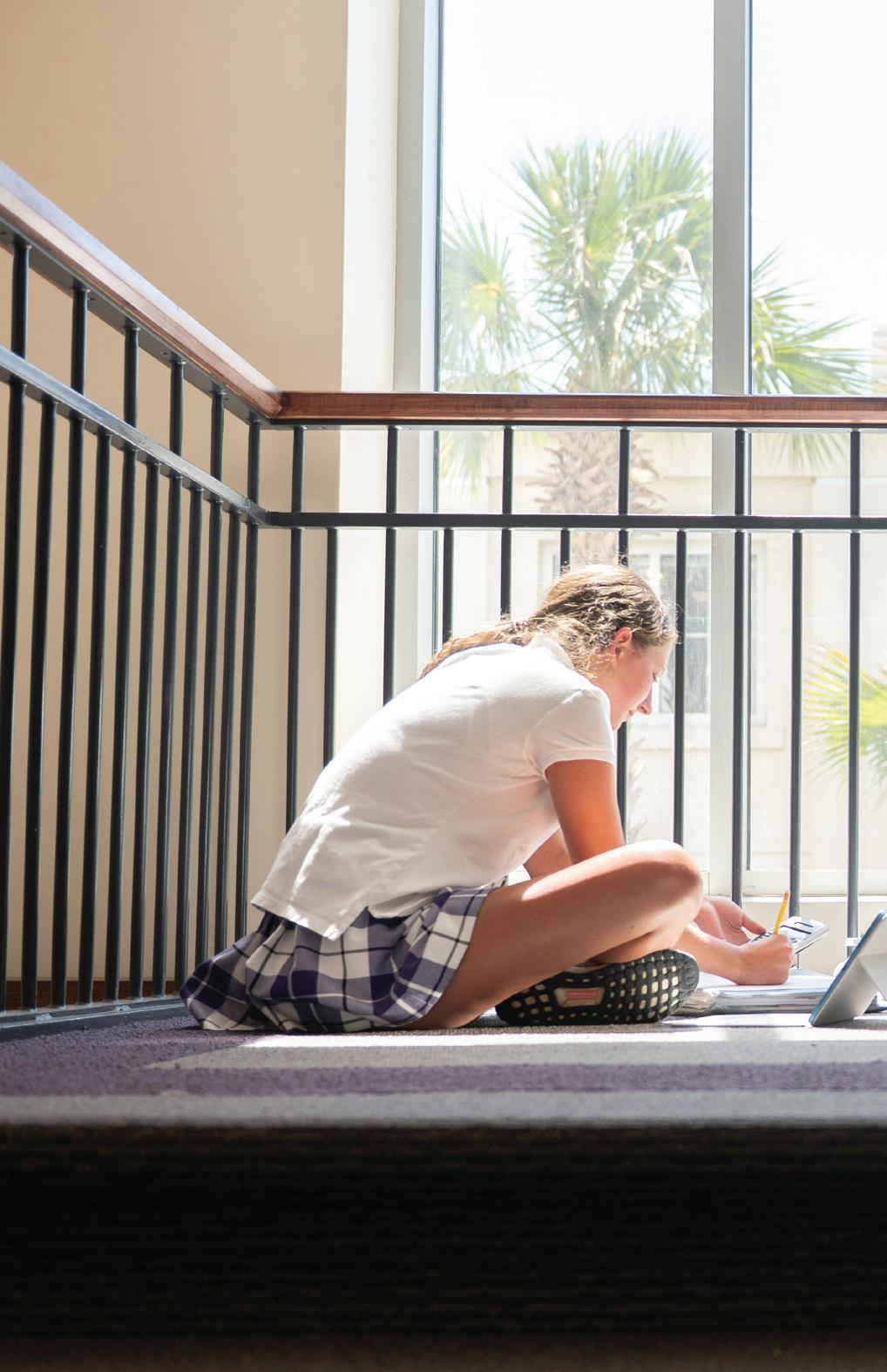
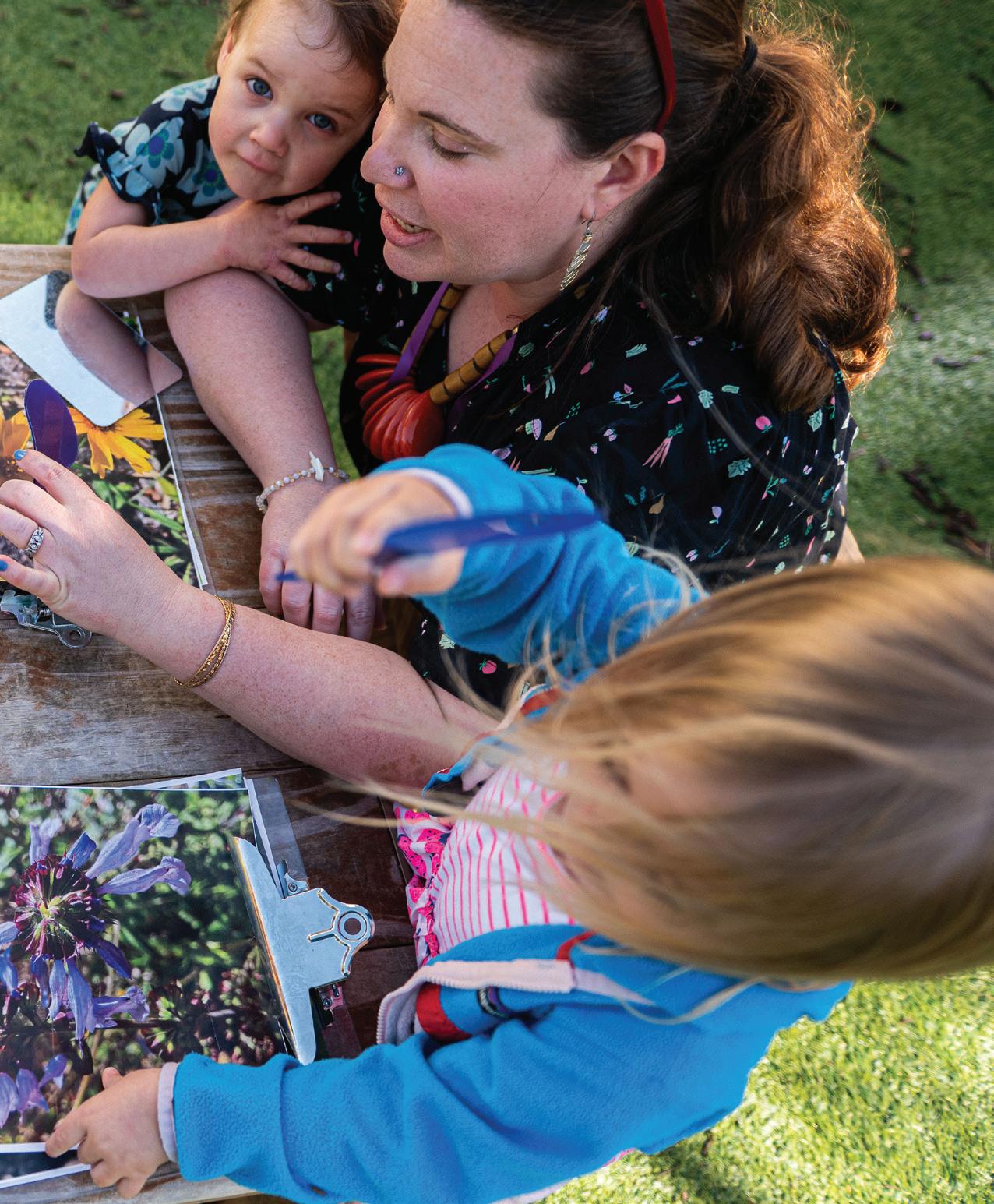
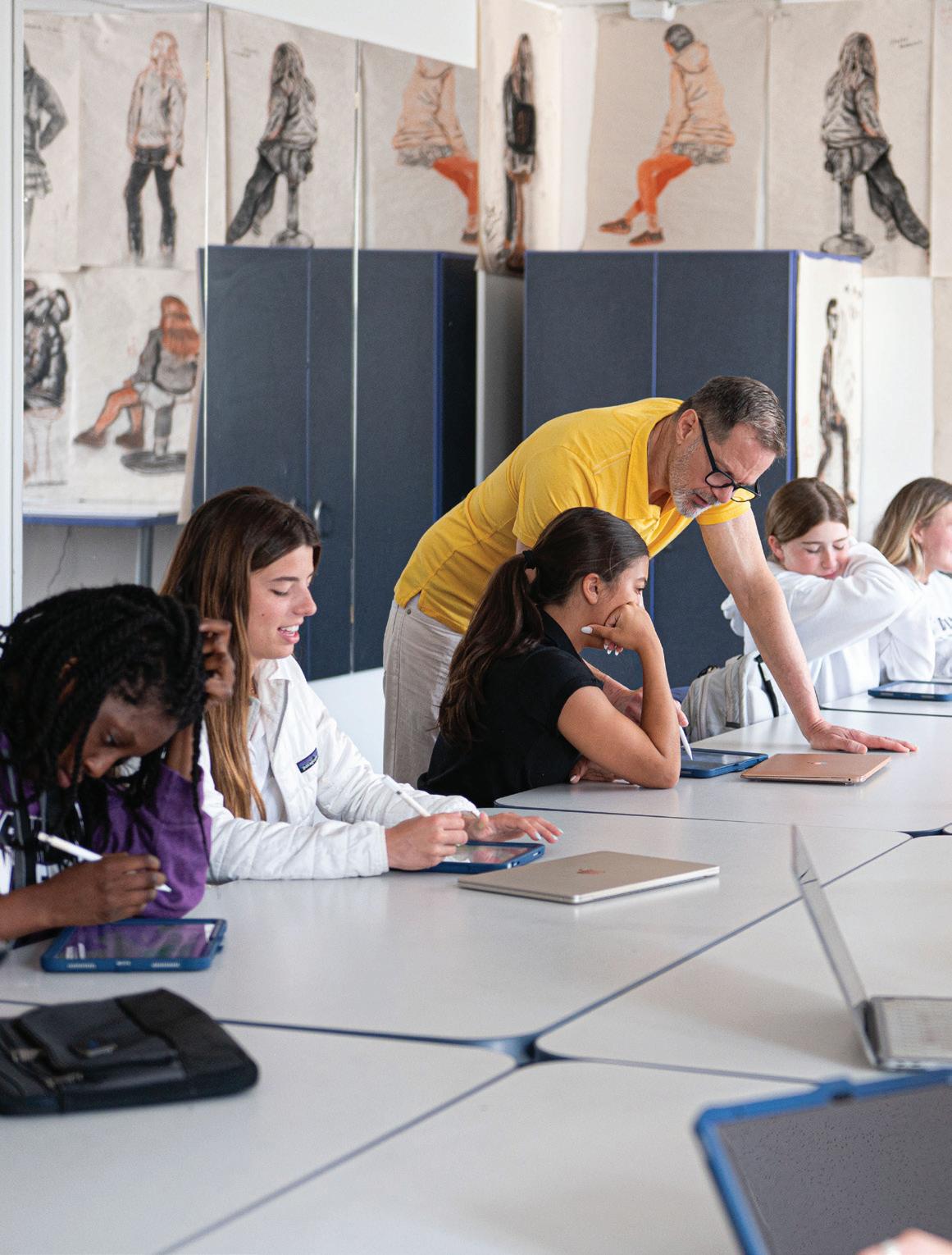

AROUND THE SHELL HOUSE
A collection of snapshots and short stories that give a glimpse into life at Ashley Hall.
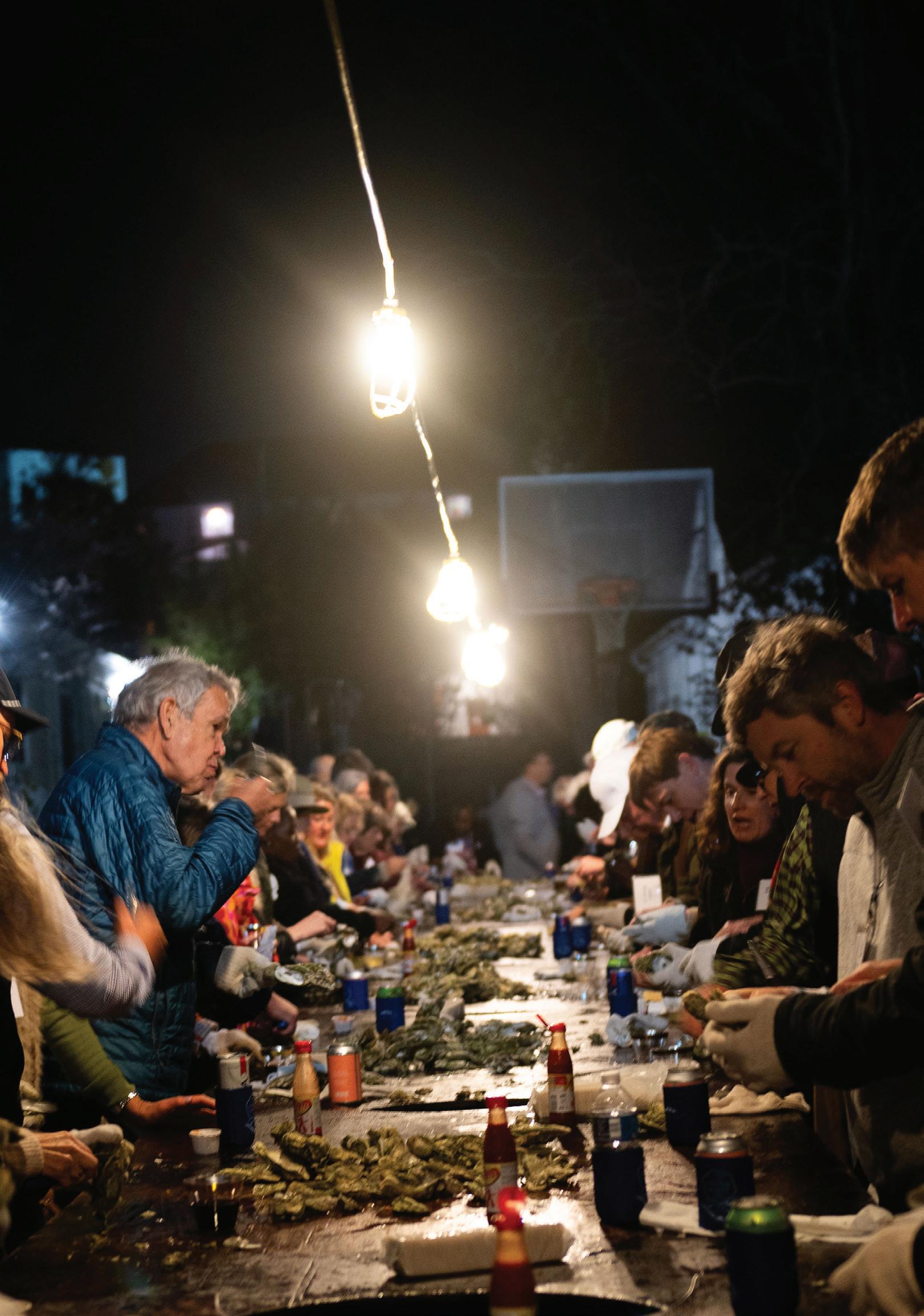
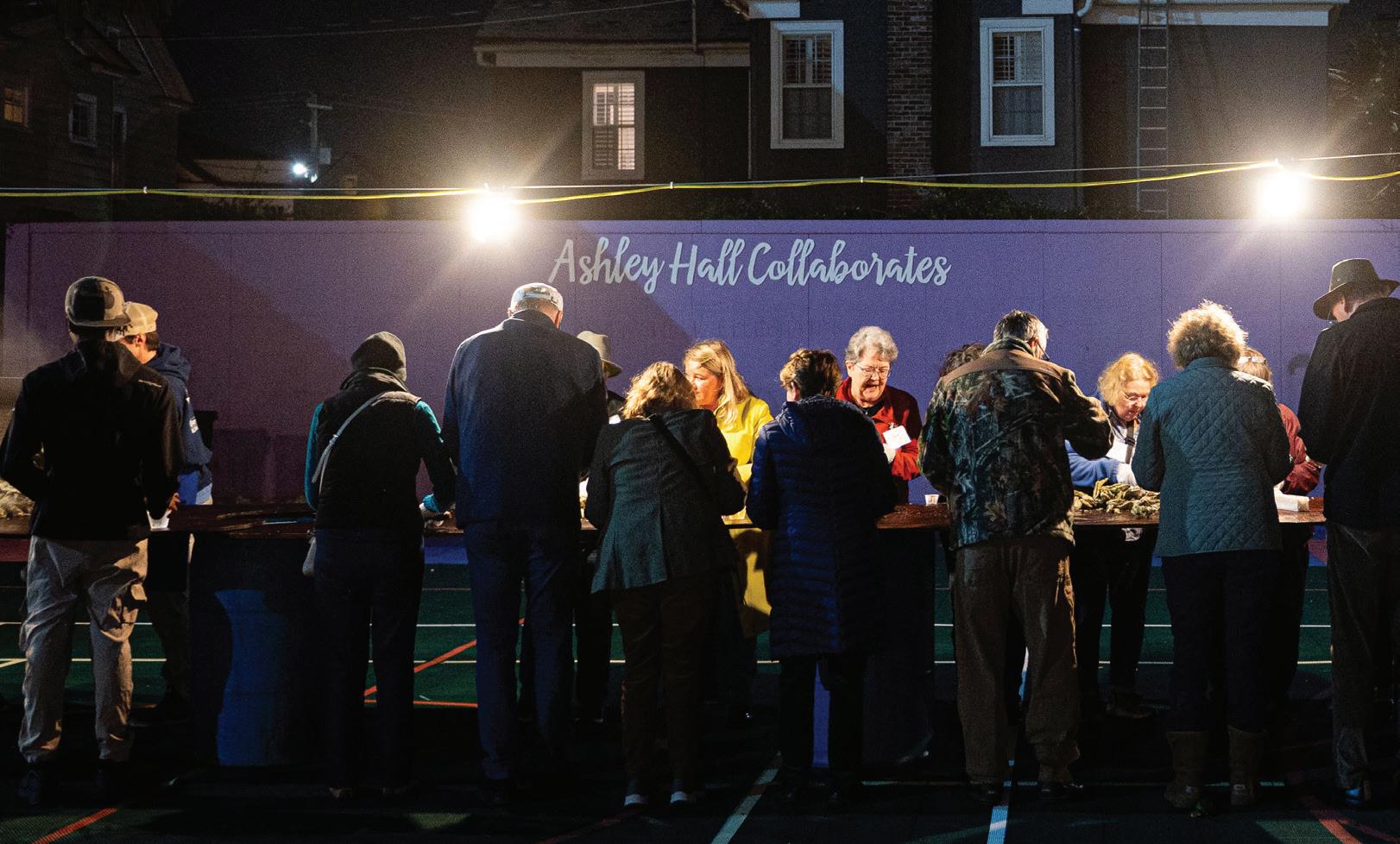
OYSTER ROAST ASHLEY HA LL 2025 ANNUAL
On a blustery January evening, the Ashley Hall community gathered under twinkling string lights for one of the most beloved traditions of the year—the annual Oyster Roast! With over 250 guests in attendance, including parents, alumnae, faculty, staff, and friends, it was a night filled with laughter, music, and plenty of good eats.
As the Bluestone Ramblers filled the air with their lively tunes, guests cozied up around steaming oyster tables, cracking shells and sharing stories. The cool breeze added a crisp, cozy feel to the night, making it the perfect setting for an oyster roast.
With 30 bushels of oysters and a whole hog on the menu, no one left hungry! It was a feast fit for a true Ashley Hall gathering—warm, and welcoming.
What started in the 1996-97 school year under Head of School Margaret McDonald as a way to bring alumnae and current families together has grown into a time-honored Ashley Hall tradition.
by Charlotte Deupree
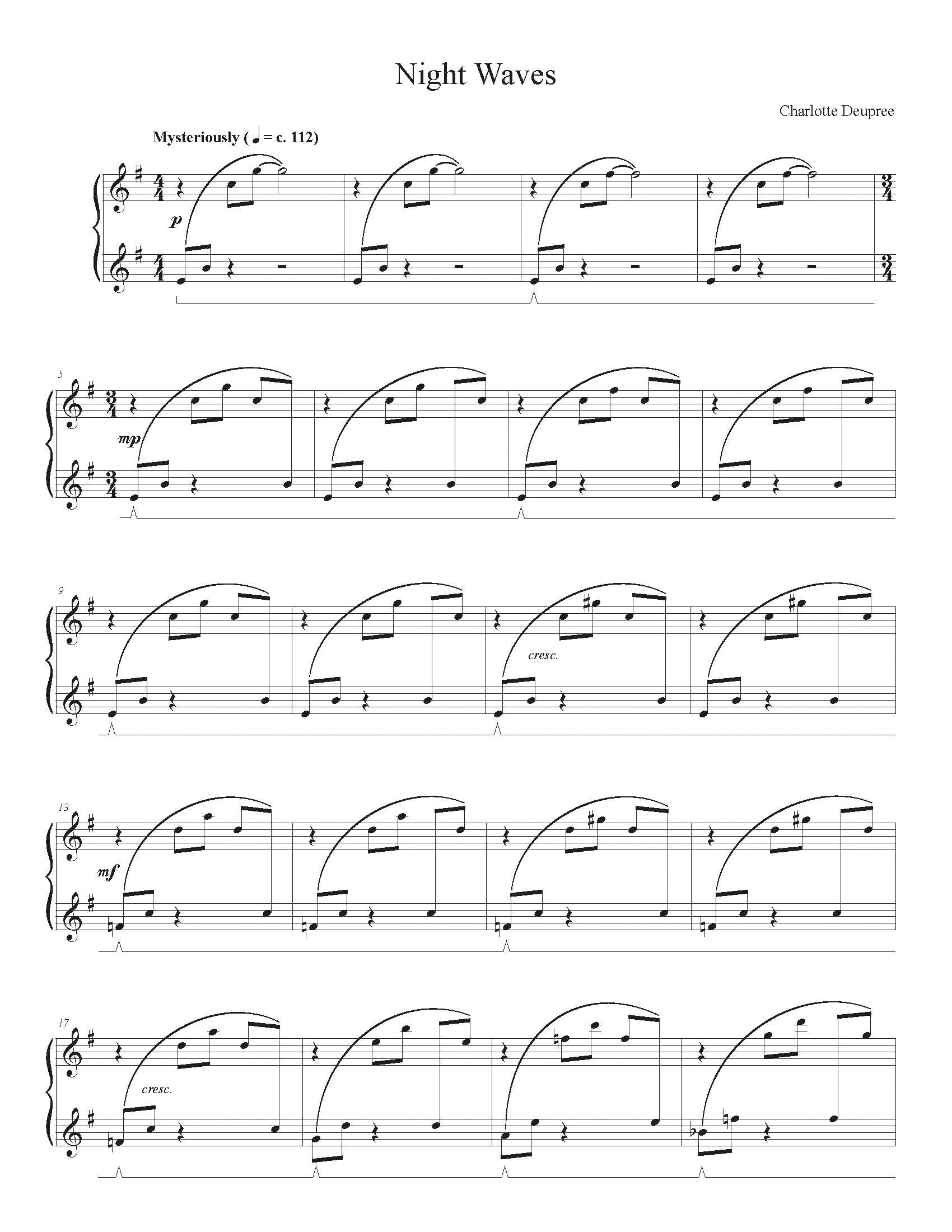
Student Composers:
FINDING THEIR VOICE, ONE NOTE AT A TIME
At Ashley Hall, music lessons aren’t just about playing the notes—they’re about composing them, too. Under the guidance of Dan McCurry, the School’s dynamic Piano & Music Composition instructor, students are discovering the magic of composition and finding their own musical voices in the process, during extracurricular lessons.
Whether a student absentmindedly noodles on the piano or arrives with a halfformed melody, McCurry is always ready to help shape those musical ideas into something bigger. For him, composition isn’t just about music—it’s about problemsolving, critical thinking, and selfexpression. “It’s a confidence builder,” McCurry says. “Helping students put their ideas into music shows them that they can
create something from nothing, and that’s a powerful skill, and one that can translate to many different areas of their lives, far beyond the music room.”
Students have started entering composition competitions and guess what? They’re winning! We invite you to scan the QR code below for a full list of our student composer accolades, as well as some incredible performance highlights from the 2024-25 school year.

Remembrance in Bloom: The Daffodil Project
Each winter at Ashley Hall, students press daffodil bulbs into the soil—an act both simple and deeply meaningful. These golden blooms are part of the Daffodil Project; they serve as a tribute to the 1.5 million children lost in the Holocaust and a promise to stand in solidarity with children facing humanitarian crises today.
The Daffodil Project was introduced to Ashley Hall in 2020 when Logan Tunick ’21 was in her senior year. She was involved as a Student Ambassador with the Remember Project* and felt that this initiative would be a nice way to connect her school community with something she was passionate about. Tunick brought the idea to the Student Council Philanthropy Board, and funding was secured for the bulbs and a commemorative plaque, which officially marked the School’s participation.
Kelly Sumner, Director of Counseling and Upper School Student Life, reflects on the project’s impact: “I love the Daffodil Project for many reasons, one being that it’s a perfect example of the philanthropic process we invite our students to be a part of. A student found a cause she was passionate about, shared it with the Student Council Philanthropy Board, and was able to create a brand-new tradition of giving back together with her classmates. What a beautiful legacy for a student of Ashley Hall and for our culture of philanthropy.”
The first bloom in spring 2021 was a poignant moment, made even more meaningful by a Covidera Zoom assembly address from Anita Zucker, daughter of a Holocaust survivor and parent of an Ashley Hall alumna. Her words underscored the importance of remembrance and the role young people play in shaping a more compassionate future. Since then, more than 1,000 daffodils have been planted across campus, with the gardens migrating to find the most successful long-term location.
Before planting each winter, students engage in discussions about the impact of the Holocaust and the project’s mission, ensuring that every bulb is planted with intention. As faculty steward of the project, Sumner emphasizes the significance of this ritual: “The Daffodil Project allows us to raise awareness around the heaviness of what the planting represents, but also to not leave it there—it allows us to make something beautiful to honor it, year after year; taking that sadness and turning it into something we can all enjoy.”
Rebecca Somsky ’27 is currently involved with the Charleston Jewish Federation and is glad to see projects like this one at Ashley Hall. She feels a special connection to the Daffodil Project, and shared the following on her experience planting bulbs this year: “It almost made me feel closer to my ancestors, not only planting something in memory of them but by sharing a symbol of persistence and prevalence through hardships in life.”
With every bloom, these daffodils stand as a quiet yet powerful tribute—honoring the past, educating the present, and inspiring the future. We invite you to visit the Ashley Hall Daffodil Garden our students planted this year on Rutledge Avenue, just outside the Dining Commons doors.
*The Remember Project is an educational initiative affiliated with the Charleston Jewish Federation dedicated to fostering Holocaust awareness and remembrance, and empowers young people to engage in meaningful acts of memory and advocacy.
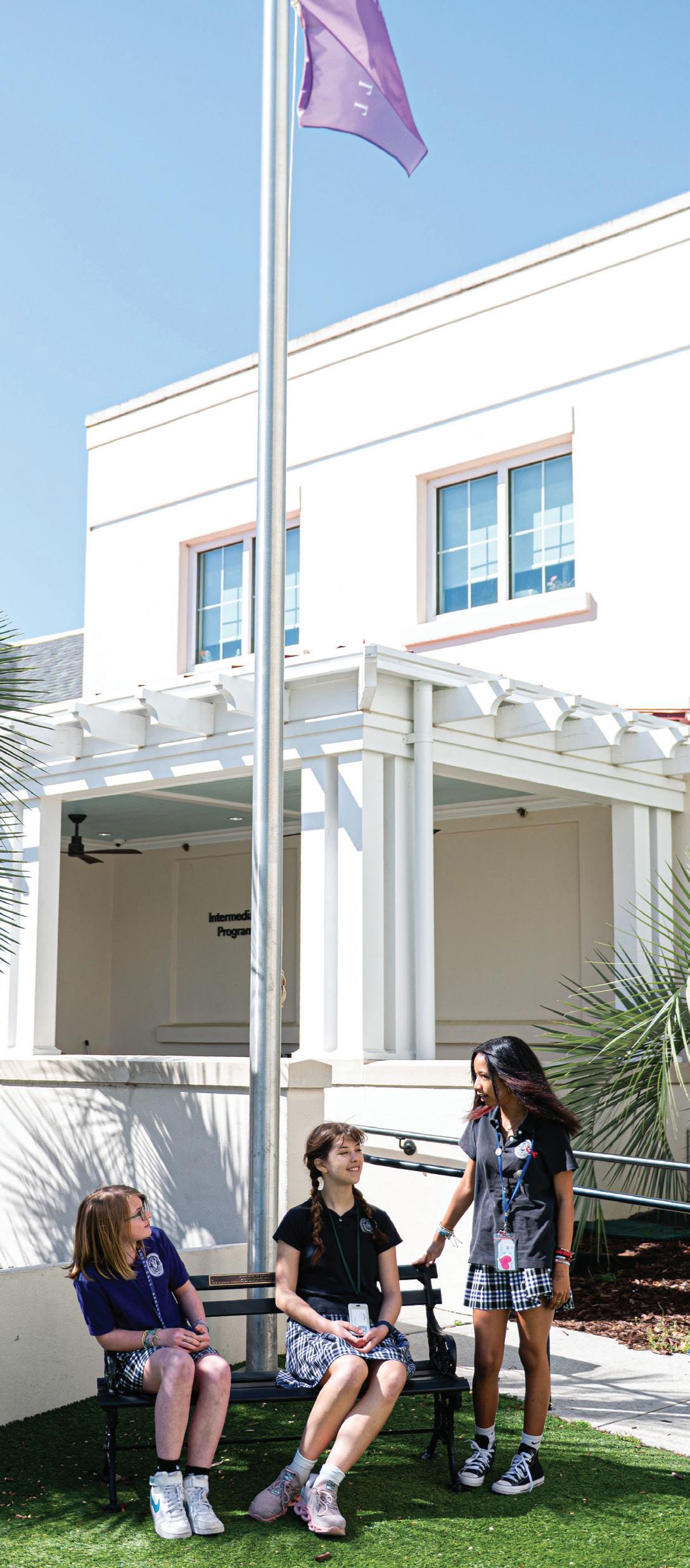
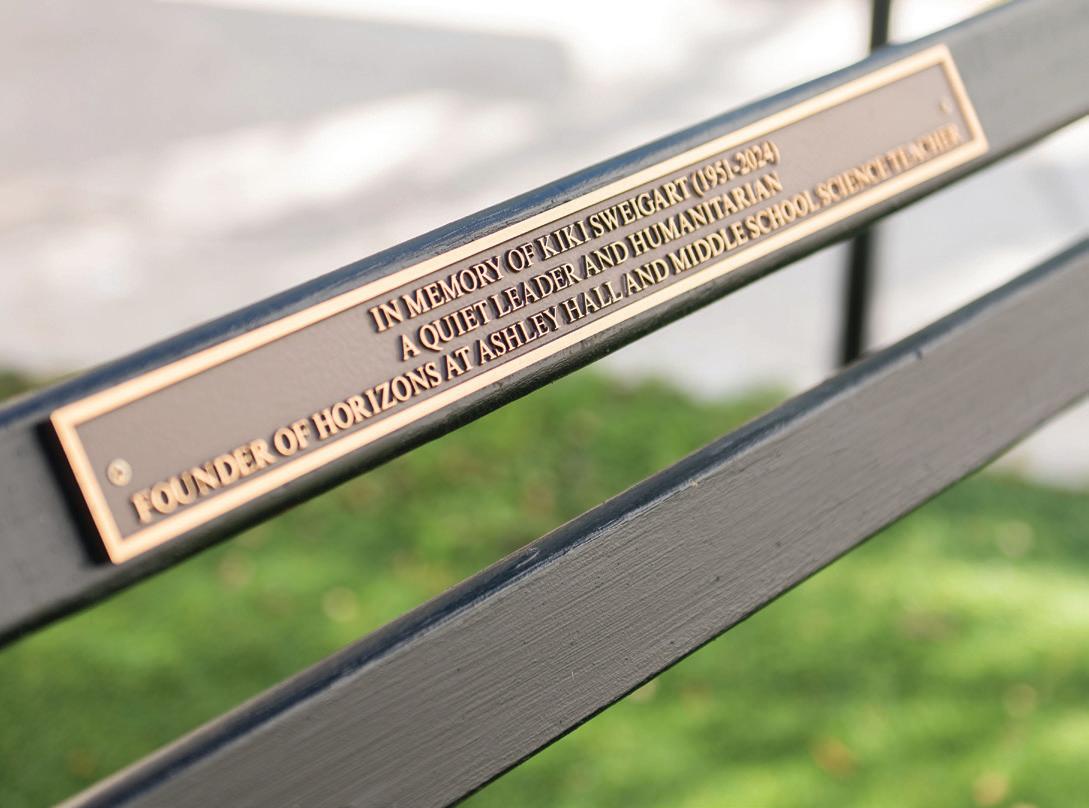
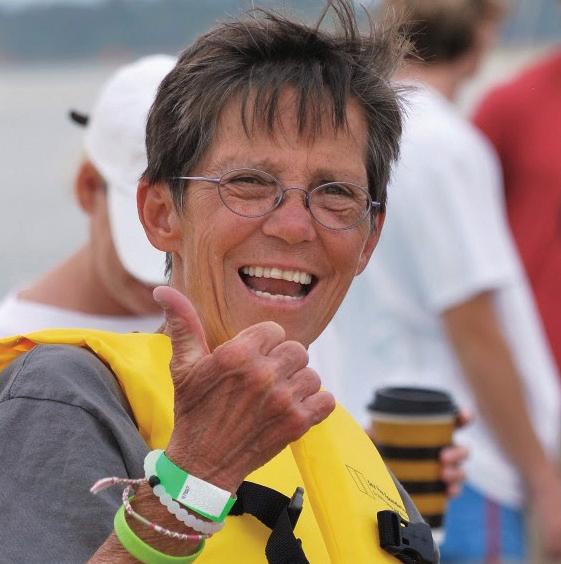
Remembering Kiki Sweigart: A BELOVED TEACHER AND COMMUNITY LEADER
Ashley Hall recently honored the life and legacy of beloved faculty member Kiki Sweigart, a remarkable, life-long educator who passed away in 2024 after an ongoing illness. She was one of the founders of Horizons at Ashley Hall, a passionate advocate for the program, and an engaged community leader. In her memory, a special bench now stands as a tribute to her profound impact on students and the Ashley Hall community.
During a sixth grade wellness class last fall, students reflected on the significance of dedicating benches to honor individuals who have made a lasting impression. Their heartfelt responses captured the essence of Sweigart’s spirit and the deep connection she fostered with her students:
"Just like a bench lifts people up off the ground, this bench represents someone who lifted people up."
"It's a reminder that their spirit is still with us."
"It reminds us that we are not alone."
"Mrs. Sweigart had fun playing with us there, and it helps us remember our time together."
These reflections highlight the love and admiration Sweigart’s students held for her and showcase the ways in which they are processing their sadness. For students, the journey of grief is not bound by urgency but is a natural process that unfolds over time. The School has embraced this understanding, creating spaces for remembrance and healing, while finding meaningful ways to honor Sweigart’s memory.
Kiki Sweigart’s presence lives on through the lessons she imparted, the joy she shared, and now, through the bench that symbolizes the warmth and support she gave to all who knew her. Her legacy continues to inspire and uplift, reminding us that those we love never truly leave us.

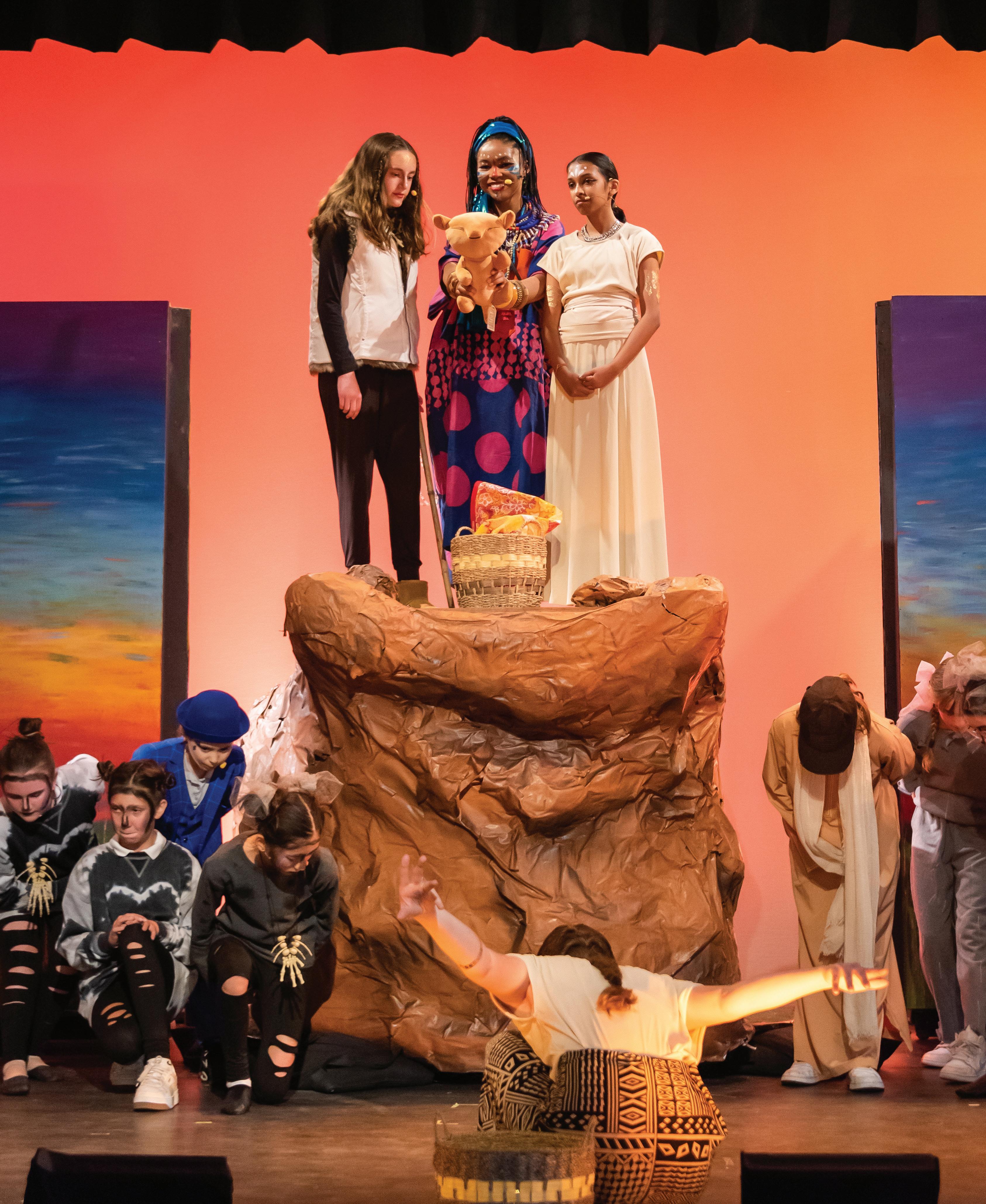
LION KING
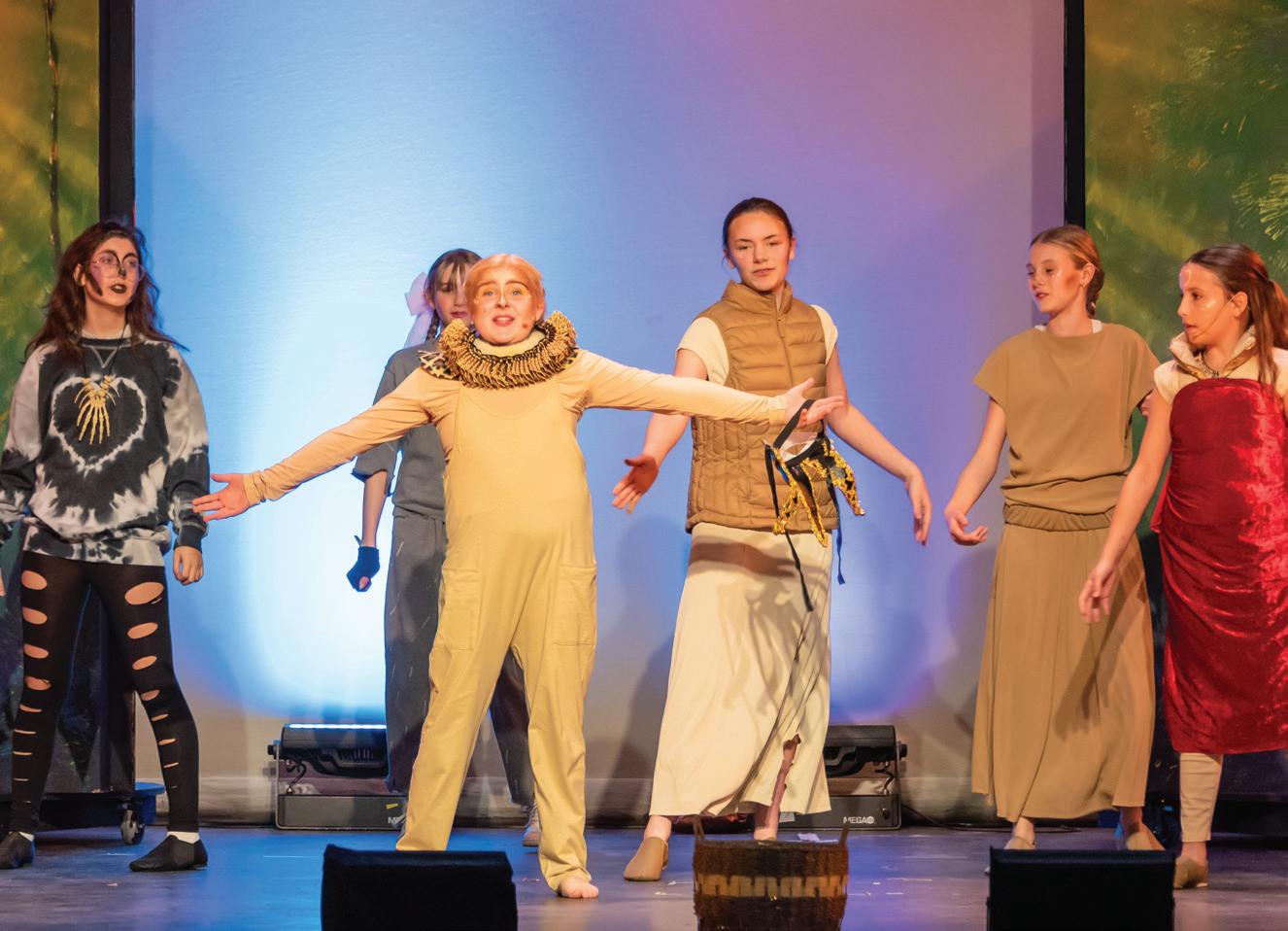
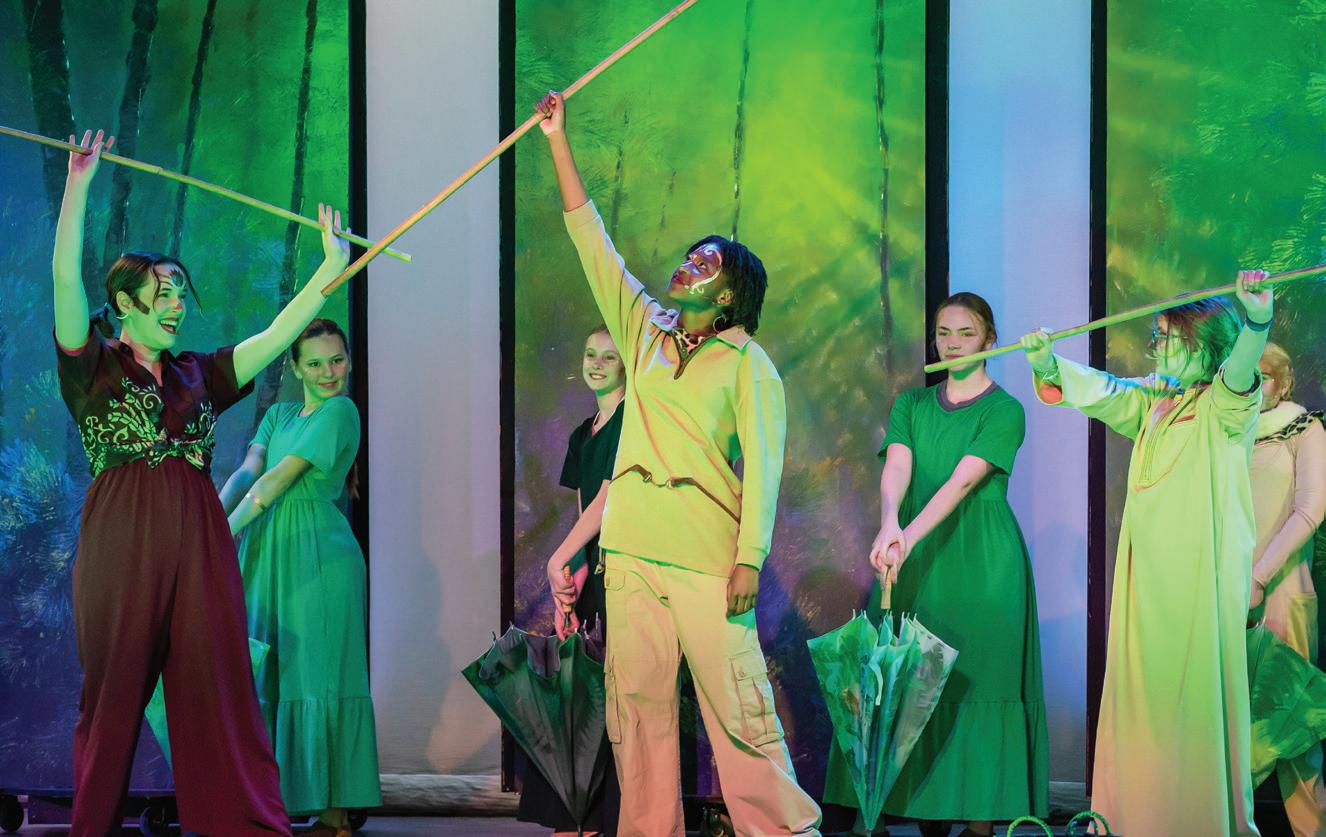
MORE Than a Musical
In March, something truly special happened inside Davies Auditorium. While the program read The Lion King Jr., what unfolded on and off stage was much more than a school play. It was a celebration of courage, creativity, and leadership, brought to life by Ashley Hall students in grades five through twelve.
The production was an overwhelming hit! Three sold out audiences were treated to stunning vocals, expressive storytelling, and highenergy choreography. But the real magic was in the process.
Under the guidance of director and Ashley Hall Performing Arts Production Director Aimee Phelan-Deconinck, with the dedicated production team including Music Director Loretta Haskell, Technical Director Thomas Smith, Stage Manager Alexandra Key ’19, and guest musical artist Eric Amoquandoh, the story truly came to life.
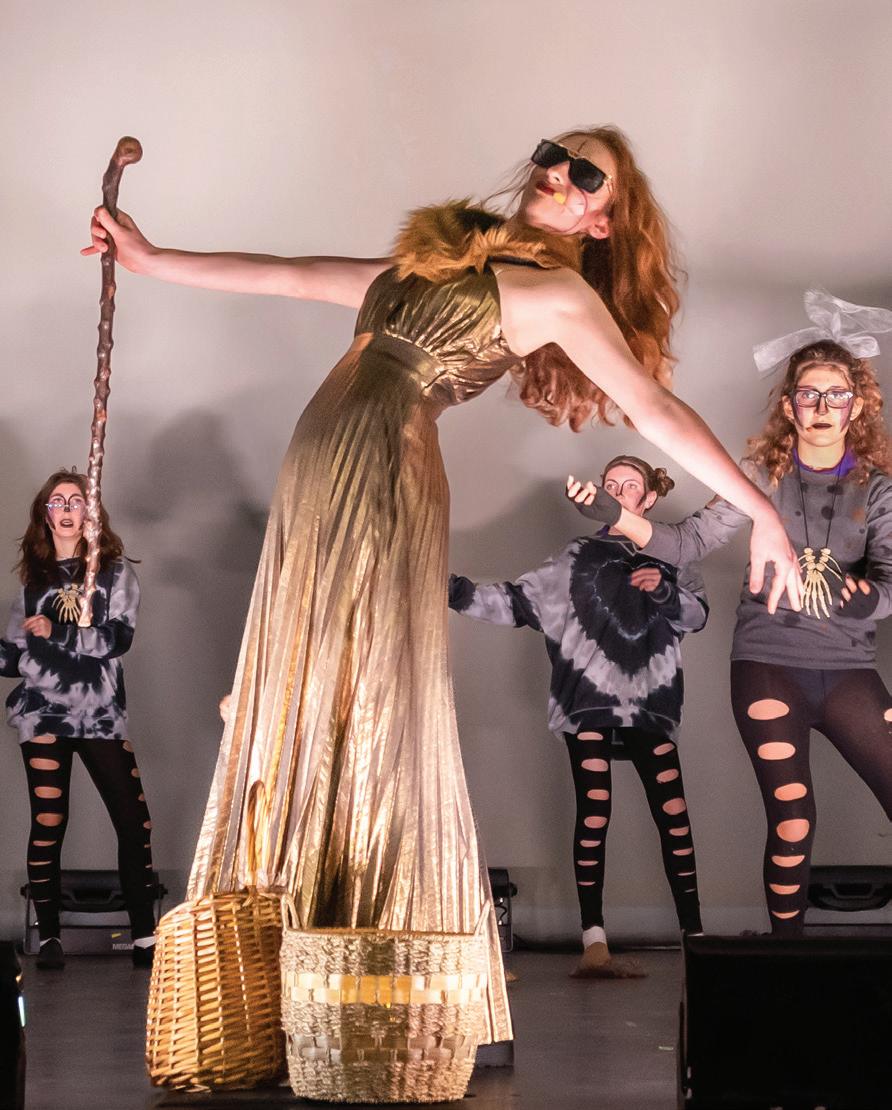
"From the first rehearsal to the final bow, this production became something more than a performance. Thanks to the dedication of the cast, crew, production team, and the supportive presence of our audience, it became a shared experience to remember— a true celebration of what we can create together.
– AIMEE PHELAN-DECONINCK, DIRECTOR
Students didn’t just sing and dance; they communicated, collaborated, solved problems, and supported one another when the pressure was on. Upper School students mentored younger castmates while tech crew members ran scene changes and cues with impressive precision. Everyone played a vital part in bringing the production to life. The Lion King is, at its core, a story about identity, courage, and stepping into leadership. It’s only fitting that this experience allowed students to do just that.
What audiences saw on stage was remarkable. But what they didn’t see—the growth, grit, and grace behind the scenes—defines the Ashley Hall experience. These students found their voices, and in doing so, reminded us that leadership doesn’t always come with a title or a trophy. Sometimes, it simply takes the stage.
OPPOSITE: Emma Antonucci ’30 as Mufasa, Aziel Reed ’28 as Rafiki, Sriya Banik ’30 as Sarabi, stand atop Pride Rock with ensemble cast members. ABOVE, CLOCKWISE FROM TOP LEFT: Emma Ellet ’32 as Young Simba, anticipates being King with ensemble cast members. Dagny Mauro ’25 interpreted Scar in a unique and effective way. Helen Kourtidis ’26 as Pumbaa, London Edwards ’31 as Simba, and Eliza Brown ’31 as Timon, sing Hakuna Matata with ensemble cast members. Photos by Kelly Grace Photography.

WIDENING THE LENS:
EXPANDING ASHLEY HALL’S COMMITMENT TO GLOBAL SUSTAINABILITY
During the 2024-25 school year, Ashley Hall focused on United Nations Sustainable Development Goal (UNSDG) #3: Good Health and Well-Being. Students engaged in meaningful discussions and initiatives around physical and mental health, access to health care, and global well-being. This emphasis allowed our community to explore health from multiple angles, incorporating science, humanities, service, and wellness into a broader understanding of living a healthy life. We are excited to expand our approach as we look ahead to the 202526 school year and the program’s fifth anniversary at Ashley Hall. Rather than centering on a single goal, the School will take a holistic approach to the UNSDGs, integrating multiple goals into school programming to deepen connections and opportunities for student engagement.
A BROADER APPROACH TO THE UNSDGs
The United Nations Sustainable Development Goals consist of 17 interconnected objectives designed to address global challenges such as poverty, climate change, gender equality, and quality education. By introducing the complete framework in a broad and integrated way, Ashley Hall will provide students with a more comprehensive view of global sustainability and the many ways they can contribute to meaningful change. Through this expanded approach, we will encourage students to explore connections between different goals, understanding how progress in one area—such as health (Goal #3)—is deeply linked to others, like clean water and sanitation (Goal #6) or responsible consumption (Goal #12), continuing our trend of deepening
connections across studies and areas of learning and building on the Ashley Hall global perspective. Ashley Hall Community Partnerships and Global Education Coordinator Tyler Moseley is looking forward to the wider angle: “I’m excited for students to have access to more connection-making opportunities as they explore the goals as a whole program. I think shifting our approach to open up conversations about all UNSDGs will allow us to dig deeper into our adoption of the program and make it more accessible. The opportunities are endless; I can’t wait to see where the girls decide to take this project in the coming years and where they focus their energies.”

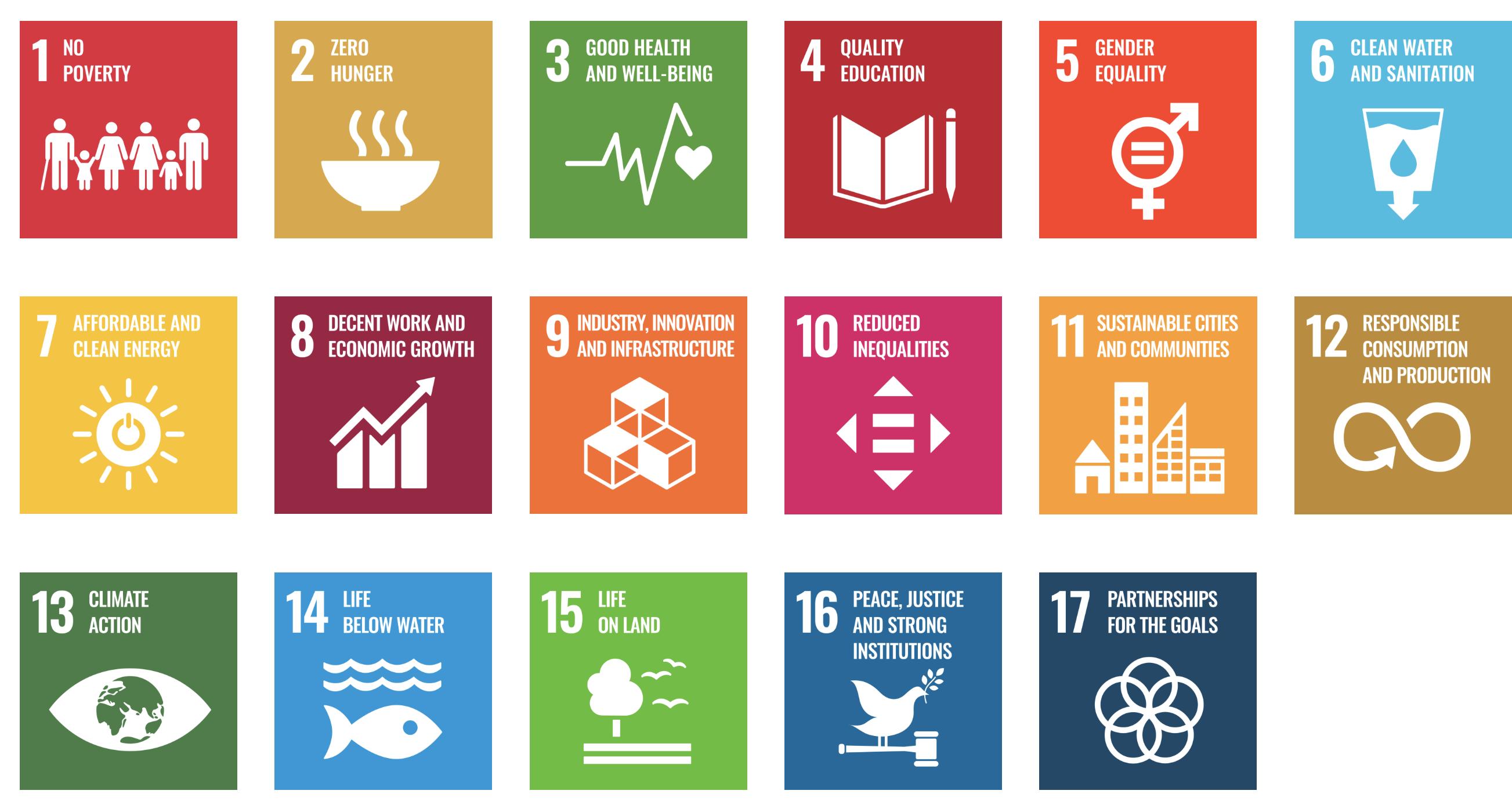
EXPANDING OPPORTUNITIES FOR ENGAGEMENT
With this shift, Ashley Hall will work to incorporate multiple UNSDGs into a wide range of programs, ensuring that more students, faculty, and community members can engage with sustainability efforts in diverse ways. This could include:
• Academic Integration: Encouraging cross-disciplinary learning that ties curriculum topics to different UNSDGs.
• Service Learning & Community Partnerships: Expanding local community outreach efforts to align with a broader range of sustainability goals.
• Student-Led Initiatives: Providing opportunities for students to take ownership of projects that align with their interests and specific UNSDGs.
• School-Wide Events & Conversations: Hosting discussions, workshops, and activities introducing all 17 goals and their relevance to our daily lives across all school divisions.
• New Leadership Opportunities: providing leadership roles for students of all ages to engage with each other through the UNSDG initiative.
LOOKING AHEAD
By broadening the focus beyond a single goal, the School’s aim is to deepen the community’s understanding of global sustainability and foster a greater sense of responsibility and action. The UNSDGs are not just abstract concepts but a roadmap for shaping a better world. By embracing them as a collective framework, Ashley Hall students will be empowered to explore, innovate, and lead with purpose. As we embark on this new approach, we look forward to seeing how students, faculty, and families engage with these global challenges in ways that are meaningful, inspiring, and impactful.
LEARN MORE ABOUT THE HISTORY OF THE UNSDGs AT ASHLEY HALL

Exploring
COSTA RICA
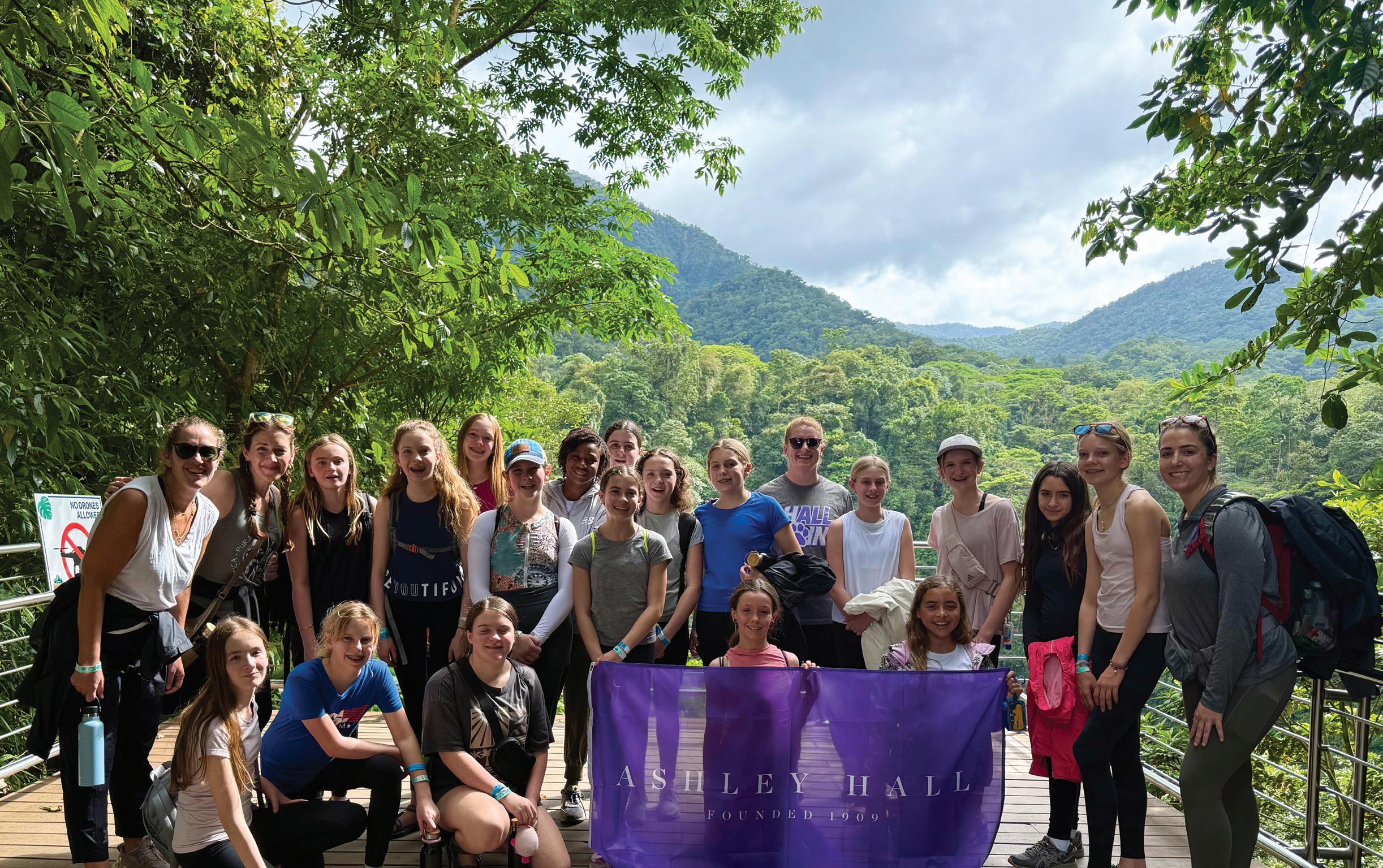
This spring, sixteen Ashley Hall Spanish language students from grades six through eight ventured to Costa Rica with four academic chaperones for a five-day immersive educational experience centered on environmental exploration, cultural exchange, and personal growth. The trip offered students opportunities to learn about the country’s ecological richness and culture. It also gave them a chance to navigate new experiences, growing in independence and confidence, all while practicing their Spanish language skills.
From ziplining through rainforests to hiking near volcanoes and spotting native wildlife, students embraced every moment with enthusiasm and a sense of adventure.
“One of the highlights of the trip was searching for sloths in the treetops,” shared Marisol Castro-Calzada, trip leader and Middle School faculty member. “They cheered with excitement each time they spotted one nestled among the branches.”
Another special thing to witness, according to Castro-Calzada, was how the students “supported one another with kindness and encouragement. Whether adjusting to the heat, navigating challenges on hikes, or tasting unfamiliar foods, they showed remarkable resilience and teamwork.”
The trip fostered meaningful interactions and self-reliance, as students stepped outside their comfort zones and took the lead in engaging with the world around them. At a local wildlife rehabilitation center, they created toys for animals, blending hands-on learning with a meaningful contribution to conservation efforts.
Ashley Hall faculty member and chaperone, Cassidy Rindge, recalled a moment that captured the students’ spirit of independence and their willingness to take risks. “One of my favorite parts of the trip was visiting a local farmers market,” she said. “Watching our students practice their Spanish while chatting with vendors, trying unfamiliar fruits, and laughing together over their discoveries was a highlight. They took initiative, asked questions, and truly immersed themselves in the experience.”
Student Erin Brennan ’31 echoed this sentiment: “My trip to Costa Rica taught me so much about an important culture behind the Spanish language, and brought me closer to my classmates. I loved the experience and am so happy I went on the trip!”
The Costa Rican adventure reflects Ashley Hall’s commitment to experiential learning
and nurturing leadership and independence in its students. Adventures like these empower students to see the world—and their place in it—with a new perspective and a sense of purpose.
– CAITLIN OLIVER ’31 "
I loved going to Costa Rica with my peers and teachers. I got to experience an open air market with authentic foods I had never tried before! There were so many species of plants and animals such as a red-eyed tree frog and a whitefaced monkey! Overall, it was an unforgettable learning experience that I will cherish forever.
the world is our classroom
It’s been a vibrant and exciting year for the Ashley Hall Travel Program, with students exploring a wide range of destinations, both near and far. This dynamic map captures the scope of their journeys this year—each thoughtfully connected to the curriculum and designed to bring learning to life. From historic cities to remote natural wonders, these experiences have offered students meaningful opportunities to engage with new cultures, languages, ideas, and global perspectives. Beyond just trips, they are stepping stones to shaping confident, compassionate, and curious global citizens.
As the travel program continues to evolve, we're energized by the incredible momentum and the meaningful impact these experiences have on our students. Each journey is an extension of Ashley Hall's mission, rooted in the power of an all-girls' education and designed to deepen understanding, spark curiosity, and build the confidence to navigate and lead in an interconnected world.
– TYLER MOSELEY COMMUNITY PARTNERSHIPS AND GLOBAL EDUCATION COORDINATOR
2024-25 TRIPS
GREECE
ITALY
LOUISIANA
COSTA RICA
2025-26 TRIPS
CANADA
ITALY
GERMANY & CZECH REPUBLIC
MOROCCO
SWITZERLAND
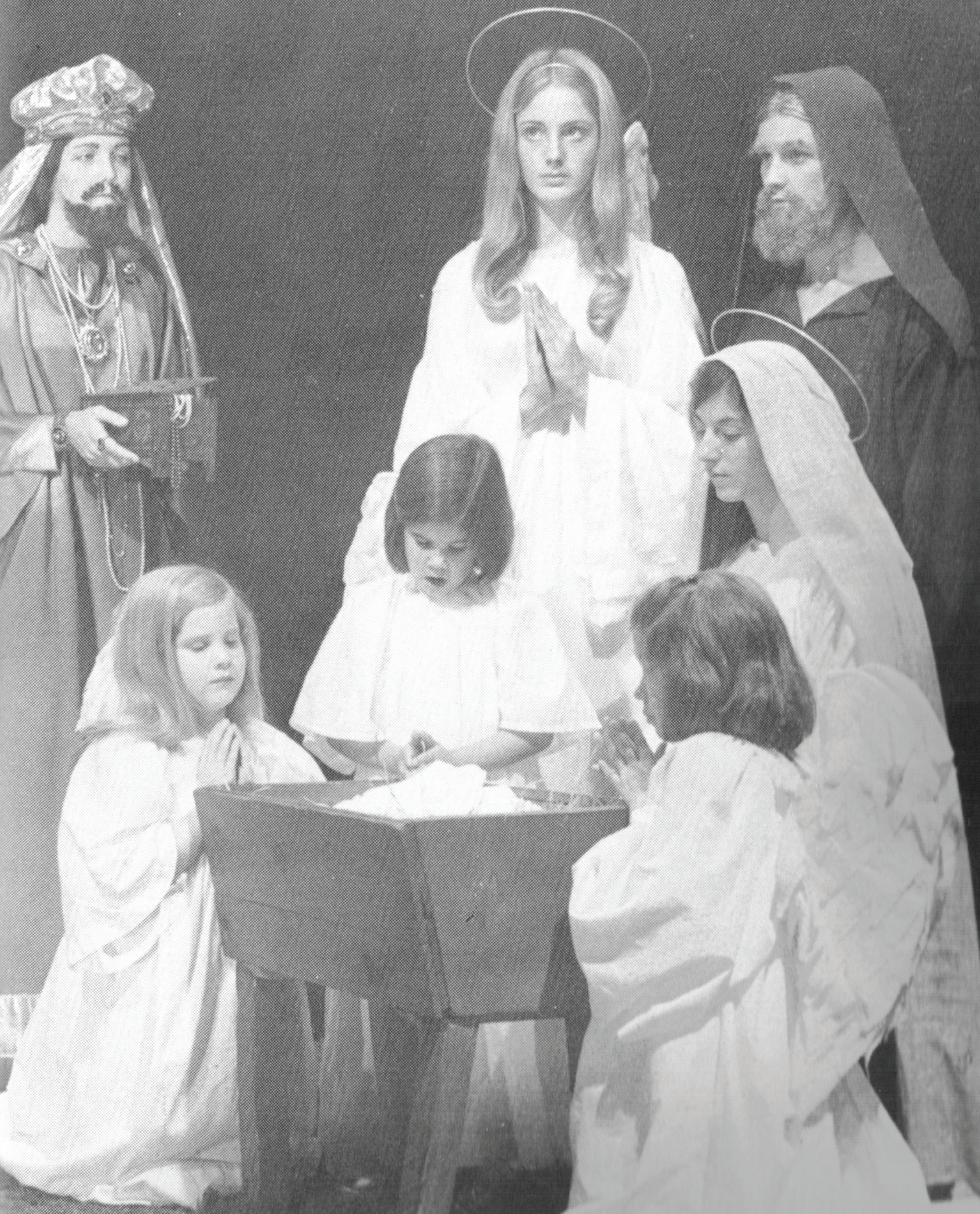
A CENTURY OF TRADITION:
For generations, the Christmas season at Ashley Hall has been ushered in with the pageantry, reverence, and joy of The Christmas Play. This tradition has shaped the School’s identity and connected our community across time and place. Having celebrated its 100th anniversary last December, the beloved play remains a touchstone of memory, community, and artistry for current students, families, alumnae, and the greater Charleston community.
In this special and very personal reflection, Maura Hogan ’82 takes us behind the scenes of the centennial performance, weaving together history, her own memories, and the voices of fellow graduates who once stood in the same roles. From the echo of Middle English verses to the flutter of angel wings down sacred aisles, The Christmas Play continues to unite generations in a shared story—one of faith, tradition, and the magic of a performance that never grows old.
& now
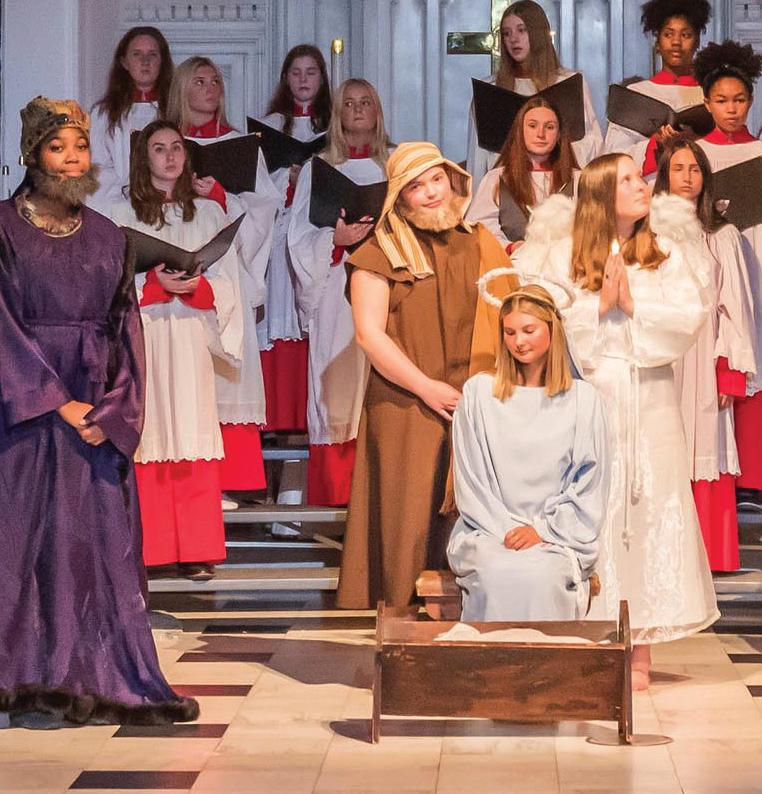
100 YEARS
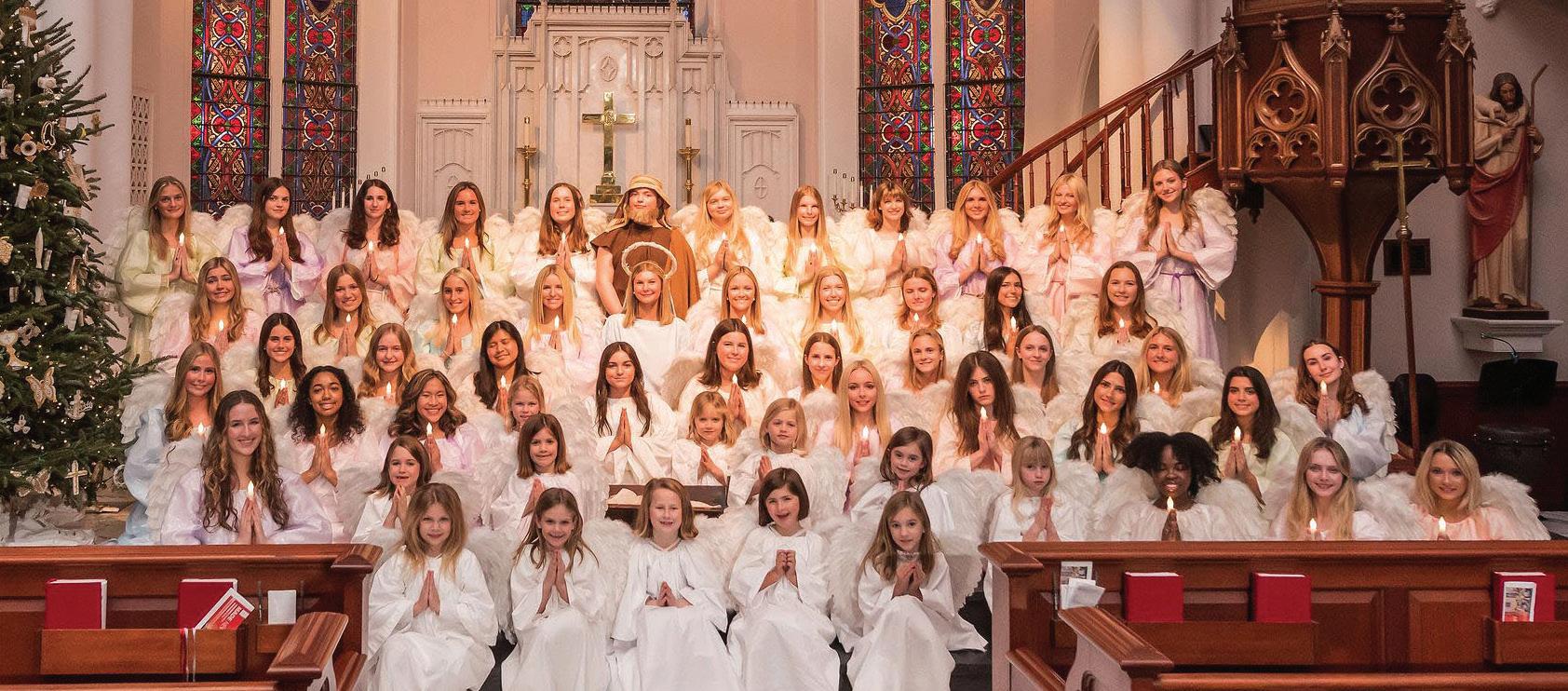
LOOKING BACK, FORGING FUTURES
It is the burlap-swathed shepherds striking gruff poses and fidgeting with freshly affixed beards. It is the jesters jingling as they flip, the resplendent congregation, and the ethereal Red Choir trills. It is the regal kings advancing with their treasures and the soft pastel parade of feathered angel wings gracing the shoulders of seniors flowing a final time down sacred aisles.
It is the annual Ashley Hall Christmas Play. Cherished for its enduring hold on the School’s collective heart, it has launched a thousand memories and helped forge as many futures, too. December 13, 2024, marked its centennial performance. For a hundred years, this time-honored tradition drawn from the 14th century in Chester, England, has revived a scriptural, or mystery, play centered on the Nativity story, one of 25 in the cycle. Spoken in Middle English, the work resonates with sacred music while captivating all with its Medieval pageantry.
Year after year, the play rallies dozens of students who zip from rehearsals to basketball tournaments, slipping in sufficient prep for exams. All are keen to get in on the act, which is always free and standing-room-only. Ask
WRITTEN BY MAURA HOGAN ’82
any proud alumna; spanning both centuries in its origins and decades on campus, somehow, The Christmas Play never gets old. Instead, it forever gains new luster, connecting those in the cast and crew with one another, and with their ever-expanding Ashley Hall community across time and space.
At a final rehearsal at St. Matthew’s Lutheran Church in downtown Charleston, the energy is electric. Jesters fly lithely toward the altar. Last-minute notes are given. Upperclassmen in pews coo and fawn over wide-eyed little angels. Leslie Rowland, an Upper School faculty member who teaches English and directs the play, said the play attracts many non-actors, drawn by the depth of the tradition. “Each student brings their own nuance to the character. Each year, I learn something new about the words from the students themselves,” she said.
Changes are sometimes made, such as refreshed costumes or a different venue. Recent years have seen the addition of an orchestra, a helper shepherd, and more big angels, with any tweak made with an eye trained steadily on tradition.
As a former student and current faculty, Franny Slay ’80 has witnessed more than half a century of this arc. Ashley Hall’s Athletic Director and Volleyball Coach first experienced the play as a little angel before later playing a jester, a congregant and the mother angel. “What I remember so vividly is that we had to try out. We had to walk across the sports court, the whole first grade, one at a time.” For her big moment at what is now the Charleston Gaillard Center, she muses, “I remember having a loose tooth,” demonstrating how she wiggled it while walking.
Over the past 40 years at the school, Slay has rarely missed a production, enthralled by the joy, the pride, the unity and the sisterhood she observes. When she sees the big angels, many of whom she has known since their early days on campus, she said, “I just dissolve.”
Well before her current role as Head of School, Anne Thornhill Weston ’73 got her wings, too. As a big angel, the senior shared the stage with her younger sister Ama Thornhill Couch ’84, who was a little angel. Today, Weston sees great educational value for students in performing The Christmas Play. “Tradition and ritual are very grounding and centering and something
you can depend on. For many students, their holiday season may be unpredictable for a number of reasons, and this sits in a really nice space.”
I have a few fond recollections of my own experience. During my sophomore year portraying Trowle, the plucky upstart shepherd, I flopped down with his signature impudence to declare, “Here sit down I will.” Later, when the shepherds proffered humble gifts—a bell; a cup and spoon; a cap; and from Trowle, his own good heart and prayers— instead we found a curveball. In the manger, a note fixed on the prop baby doll’s face, asked, “What would I need with a bell, cup and cap?” This senior prank threw us all a bit off kilter, while also giving me a lifetime memory and smile. When in my senior year I was given a rare opportunity to direct the play, doing so bolstered my confidence for a career championing the arts.
What a joy and privilege for me to witness as, for the hundredth year, the mystery unfolded anew. Today The Christmas Play remains resoundingly relevant, hewing to the school’s abiding aim to shepherd educated women who are independent, ethically responsible, and prepared to meet the challenges of their world confidently.
In her program letter, Weston elaborated. “Ashley Hall offers this thoughtful and beautiful respite in our current world, often characterized as emphasizing personal achievement, individualism, and material acquisition. The Christmas Play connects performers and the audience in a simple celebration of the season and reminds us of the power of love and sacrifice.”
At the play, I sat in a pew with my daughter, Beatrice Watson ’31, a former little angel who is now in sixth grade. When the familiar Middle English magically resurfaced, it echoed in my mind, line for line. I was wholly transported to a time in my life when anything and everything seemed possible, and when, in centuries-old words reborn, the miracle of life was palpably, divinely nigh.
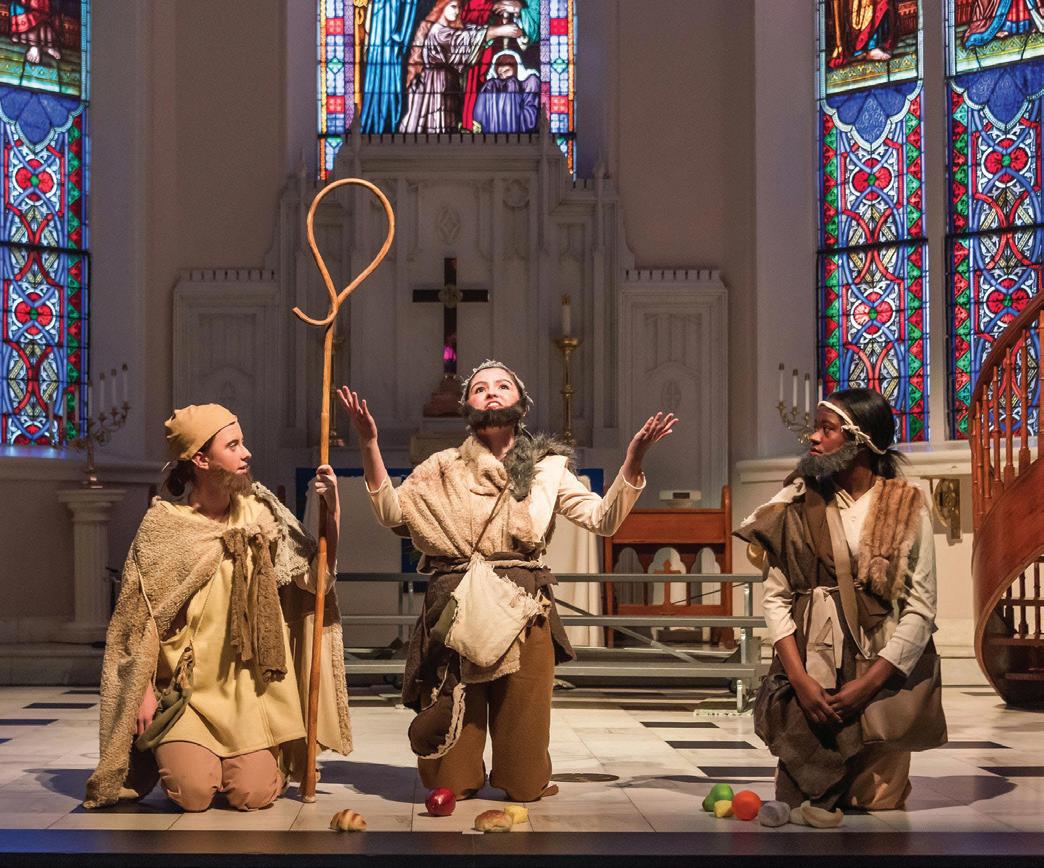
“Tradition and ritual are very grounding and centering and something you can depend on. For many students, their holiday season may be unpredictable for a number of reasons, and this sits in a really nice space ”
- ANNE WESTON ’ 73 HEAD OF SCHOOL
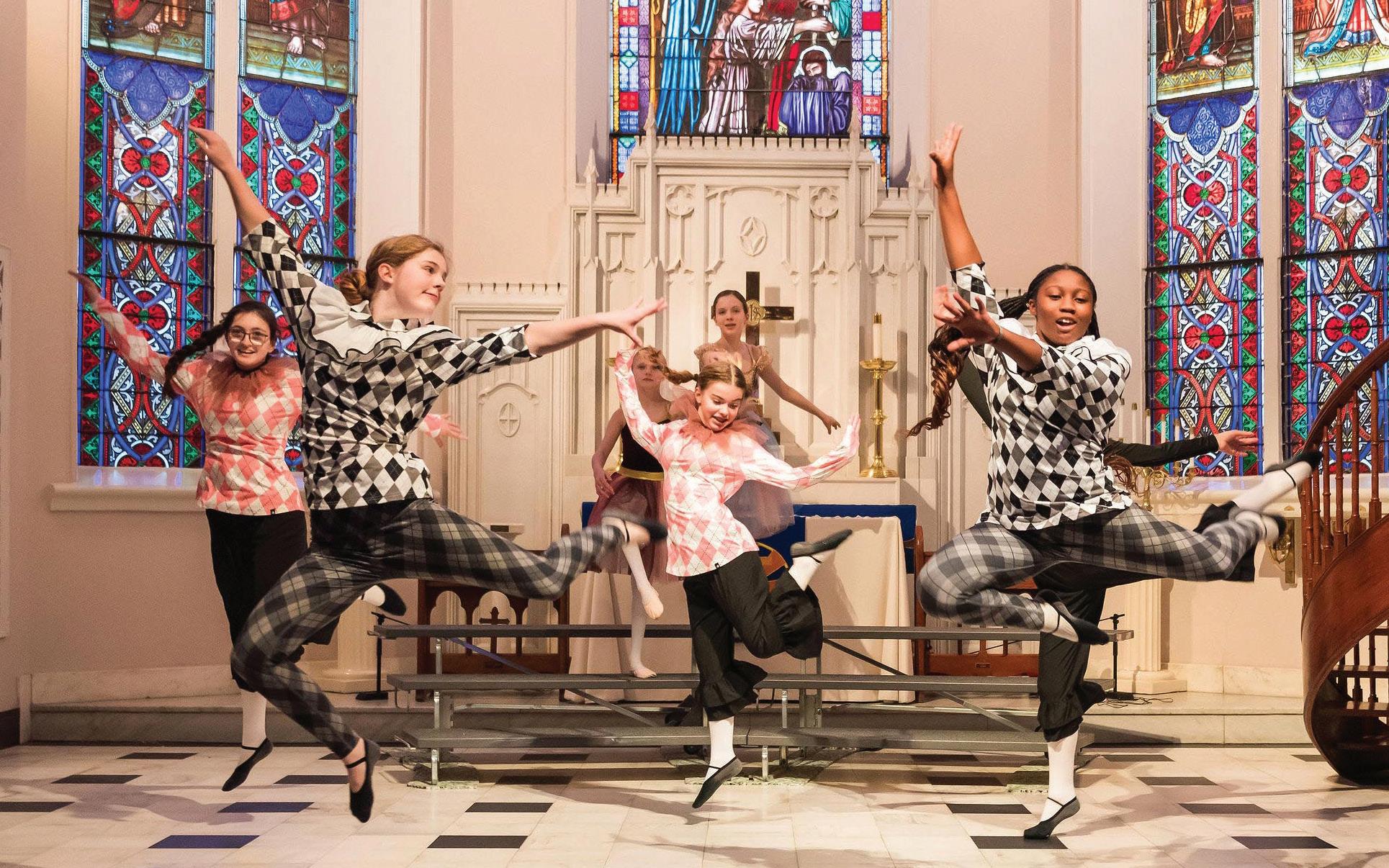
Into the Looking Glass:
AProgression ofEarlySchoo l fleS stiartroP
Watching young children create self-portraits is a window into their emerging sense of self. As their motor skills sharpen, their drawings become more intentional, highlighting what they value most, whether it’s a favorite sparkly hair clip, a beloved sibling, or strong arms they’re proud of. Each mark is a joyful declaration of identity.
– KATIE PAULSON EARLY SCHOOL FACULTY MEMBER
What do you notice when you look in the mirror? Is it your hair, the shape of your nose, or the curves of your face? Or maybe you think about abstract traits and connections first—your kind smile or the way your eyes remind you of someone you love. Self-perception is something so personal and is informed by so many experiences and filters; it never stops evolving…but when does it start?
When preschool-aged children look in the mirror, they’re just beginning to learn about the concept of self and what that means—noticing what their features look like, yes, but also how different emotions change their faces and those of others; how their actions fit into and affect the larger world around them. In the Early School, a hallmark exercise for each child beginning in Pre-Primary is the self-portrait project. A glance at the drawings included here reveals how their self-image evolves over the years, including what they notice about themselves and how they communicate it from year to year. This artwork is a deeply personal reflection of their developing introspection and growth, and it is vital to the development of children who value and respect their differences and celebrate individuality, as well as young learners who can make connections between themselves and their environment.
Each self-portrait is more than just a drawing—it is a milestone, a reflection of cognitive and emotional growth at each stage of Early School development, and a window into their ever-evolving identities.
For the youngest learners, the self-portrait (left) is an introduction to the very concept of representation. At this stage, children are just beginning to experiment with mark-making, learning how to hold a writing tool, and discovering that their movements can leave a lasting trace on paper. Their portraits may look like a collection of dots, circles, and squiggles, but these marks hold meaning. Even before they can form recognizable images, children are engaging in the fundamental practice of self-expression.
Using a permanent marker for this project encourages the children to make intentional marks, as they understand that what they create cannot simply be erased or redone. The focus at this stage is not on
They are building vocabulary as they work; they are learning to intuitively follow steps in a sequence and even more skills crucial to early childhood development.
– DIANE FLETCHER, DIRECTOR OF THE EARLY SCHOOL
Pre-Primary (2-3 years old): Discovery Through Mark-Making Primary (3-4 years old): A Growing Awareness of Self
By the time children reach Primary, their control over their writing tools has improved significantly, allowing them to create more intentional and recognizable images. Their grip on their markers and pencils shifts from a full-handed grasp to a more controlled hold, and their ability to create purposeful lines and shapes becomes evident. At this stage, their self-portraits begin to take on more structure. While the figures they draw may still be simplistic, there is a noticeable shift in detail and intent. A child may draw a circle and confidently declare it to be their face, then carefully add lines for arms and legs. Some may begin with facial features—two dots for eyes, a curved line for a smile, or even details like hair, ears, or a belly button. Each addition represents a new level of self-awareness and observation.
When asked to describe their work, Primary children often offer imaginative and deeply personal explanations. “This is me with my big happy smile,” or “That’s my mommy next to me because she makes me feel good.” These descriptions provide insight into what aspects of their identity feel most important to them. Their self-portraits are no longer just about what they see in the mirror but about how they feel and connect with others. At this stage, their sense of self is still fluid, shaped by their emotions, experiences, and the world around them. Encouraging them to reflect on their work helps them develop confidence in their unique perspective, fostering a sense of pride in both their individuality and their growing artistic abilities.
accuracy but on exploration. When they look in the mirror, they are not yet analyzing the finer details of their features; instead, they are beginning to recognize that they are a person with a face, a body, and an identity separate from others.
Though their fine motor skills are still developing, they take great pride in their creations. They may eagerly describe their work with statements like, “That’s me!” even if the image appears abstract to an adult. Their self-portraits are the first steps in learning how to communicate their ideas visually, an essential skill that will continue to evolve in the years ahead.
Pre-Kindergarten (4 & 5 years old): A Deeper Understanding of Identity
By pre-kindergarten, children’s drawings evolve into more detailed and expressive self-representations. Their fine motor skills now support a tripod pencil grip, enabling them to add features like eyelashes, freckles, or missing teeth. Some begin including clothing, accessories, or cherished items such as a favorite toy. Their self-portraits go beyond mere reflections, becoming expressions of how they view themselves in the world.
Notably, they can explain their artistic choices—“I made my eyes big because I like to see everything,” or “I added my soccer ball because I love to play.” These insights reveal how children define themselves not just physically, but through their interests and relationships. They also become more aware of how they compare and connect with others. The self-portrait activity sparks conversations about individuality and diversity, nurturing empathy and respect for differences.
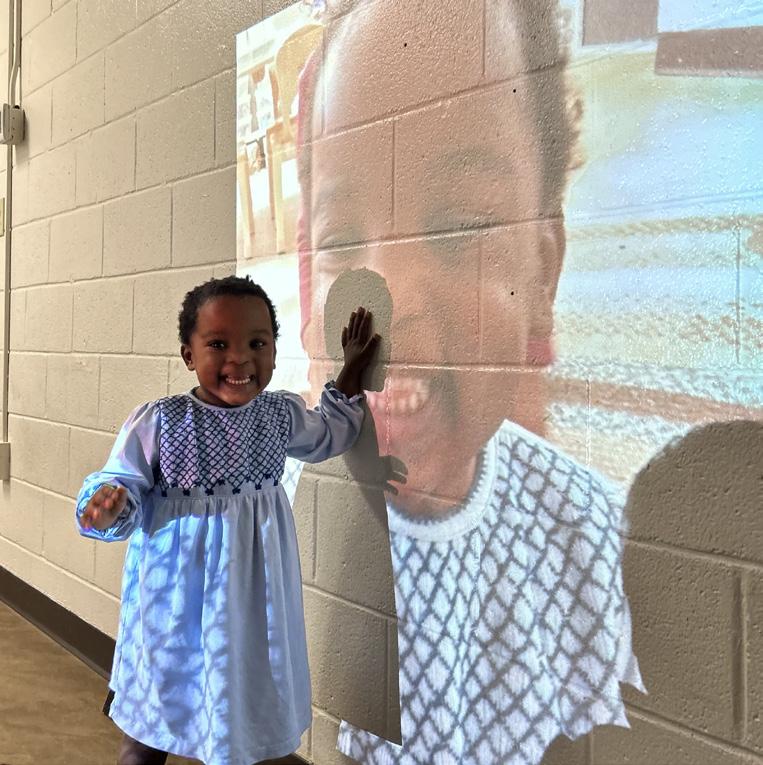
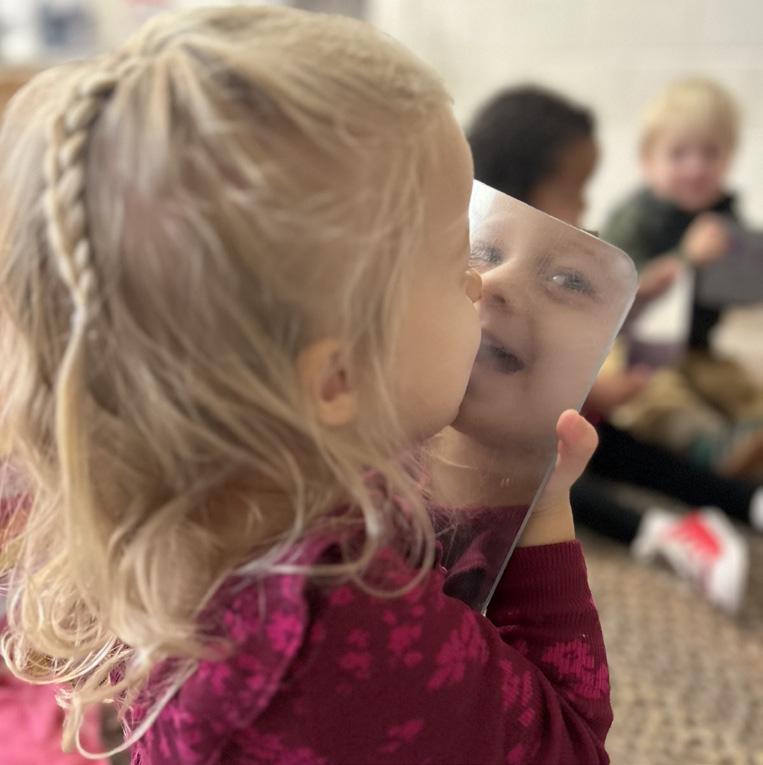
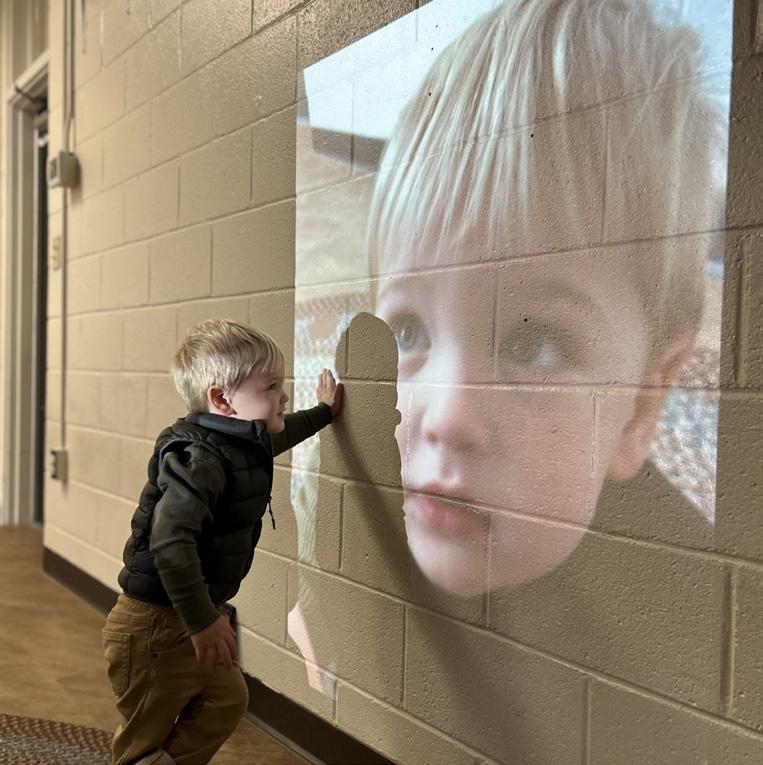
More Than Just a Portrait: A Reflection of Growth
What may seem like a simple classroom activity is, in reality, a profound exercise in identity formation. From the abstract marks of Pre-Primary to the detailed and intentional drawings of pre-kindergarten, selfportrait work serves as a tangible record of each child’s journey of selfdiscovery. It highlights the incredible growth that takes place during these formative years—not just in artistic skill but also in confidence, self-awareness, and emotional intelligence.
These drawings tell the story of children learning to see themselves with curiosity, kindness, and appreciation. They are building the foundation for a lifetime of self-expression, creativity, and a deep understanding of their identity. As they continue to grow, these early portraits serve as a reminder of where their journey began—a first glimpse into the everevolving masterpiece of self.
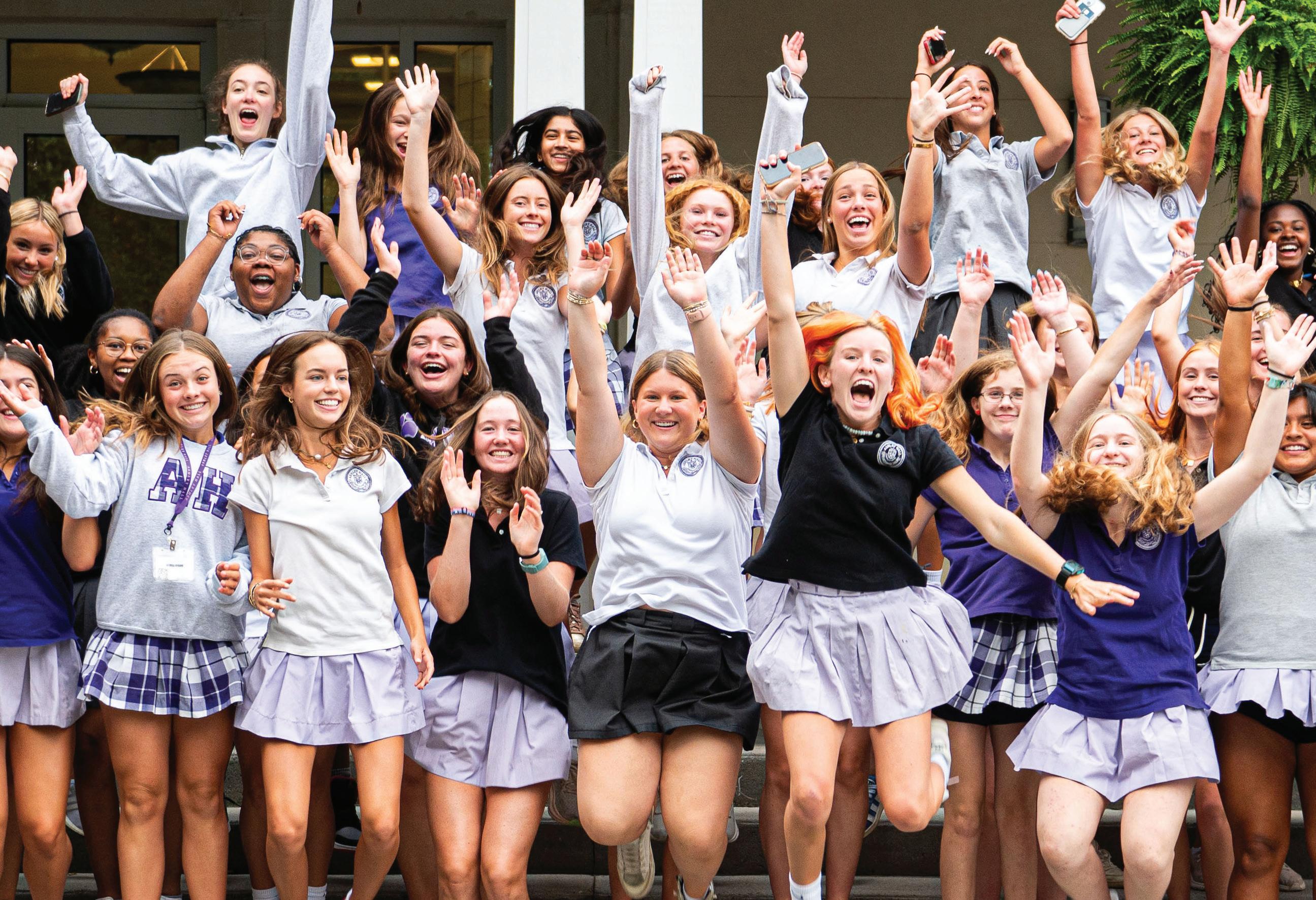
THANK YOU Wonderful Year! FOR A
Philanthropy thrives at Ashley Hall, and thanks to your generosity, 2024–25 was one of our most successful fundraising years yet!
A gift to the Loyalty Fund helps bridge the gap between tuition and the true cost of an Ashley Hall education—fueling signature programs and unforgettable experiences that shape our students into bold leaders, creative doers, and global citizens.

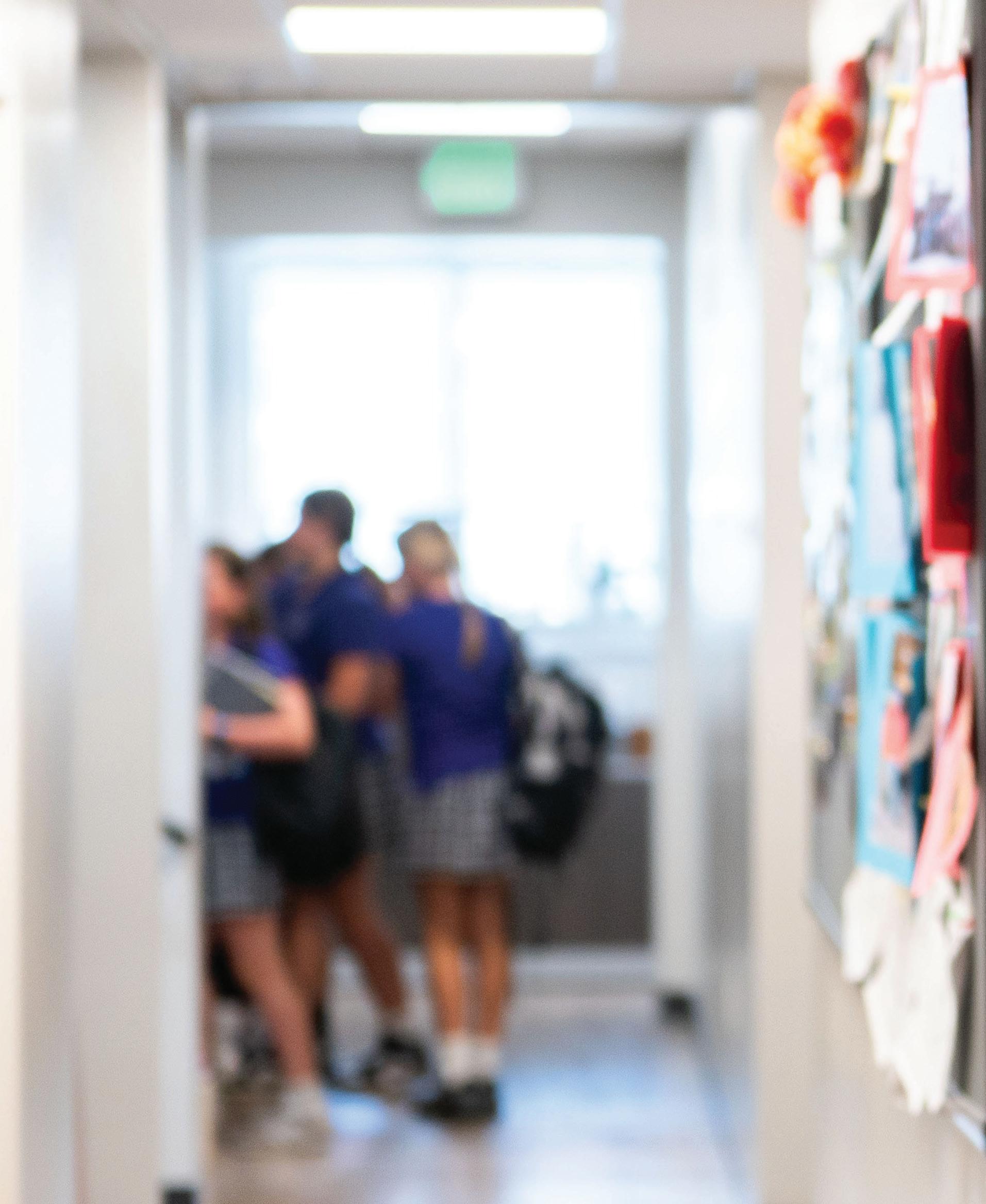
The Middle SchoolSpark
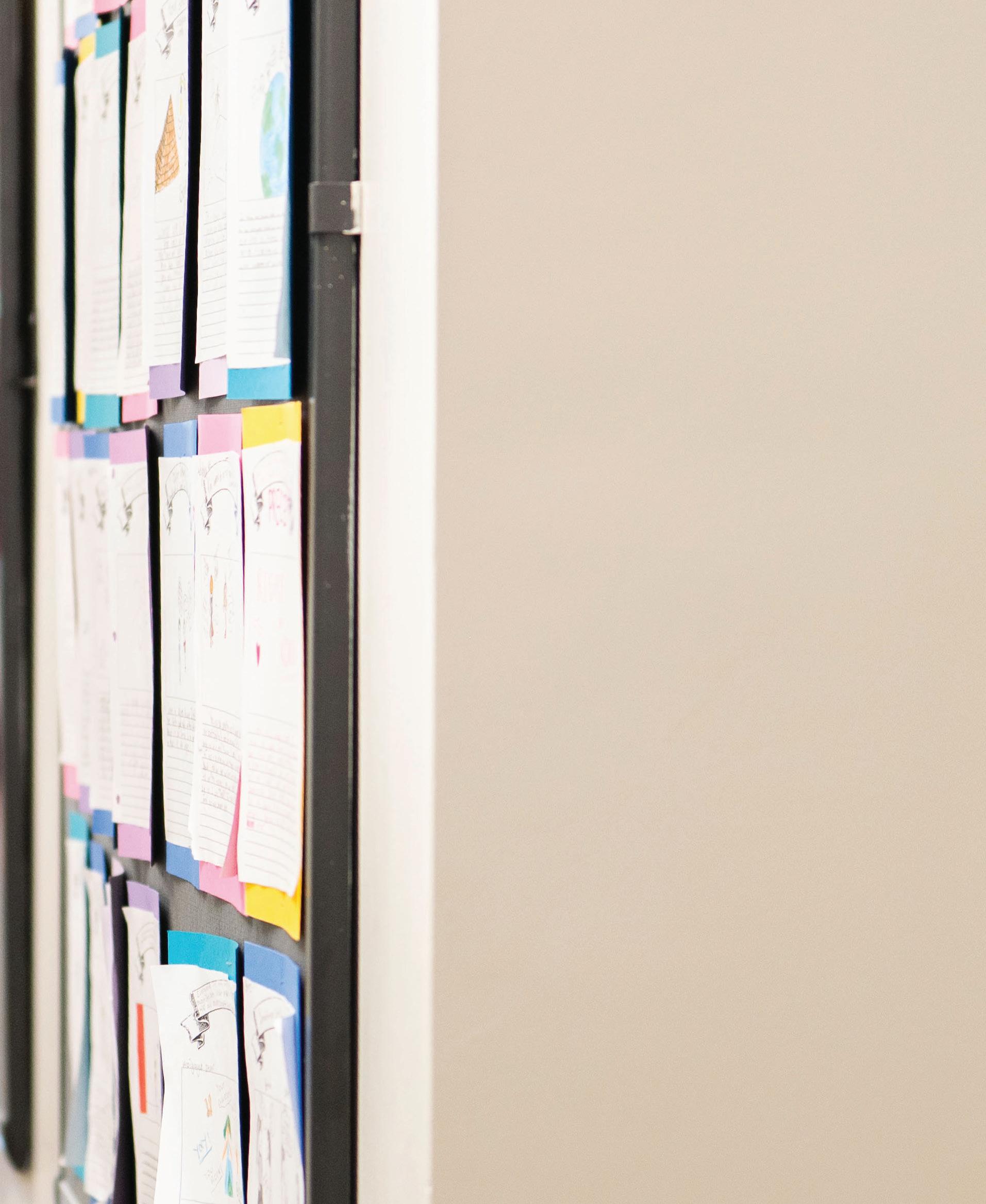
Middle School at Ashley Hall is a dynamic, bright, and purpose-driven environment where curiosity and connection fuel each day. Walk through the halls, and you will sense it immediately: an undercurrent of energy that reflects the activity of middle schoolers and the deep intention behind how these years are shaped. This spirit of momentum is no accident—it stems from a thoughtfully reimagined approach to grades five through eight, one that honors both the academic and emotional complexity of early adolescence.
This year’s return to a unified Middle School structure represents more than a logistical change; it’s a reflection of Ashley Hall’s evolving philosophy—one that prioritizes growth, relationships, and the development of the whole child. Grounded in research and guided by a shared vision, the division now operates with increased clarity, cohesion, and creativity.
With that foundation set, Middle School faculty member Christina Trimarco picks up the story.
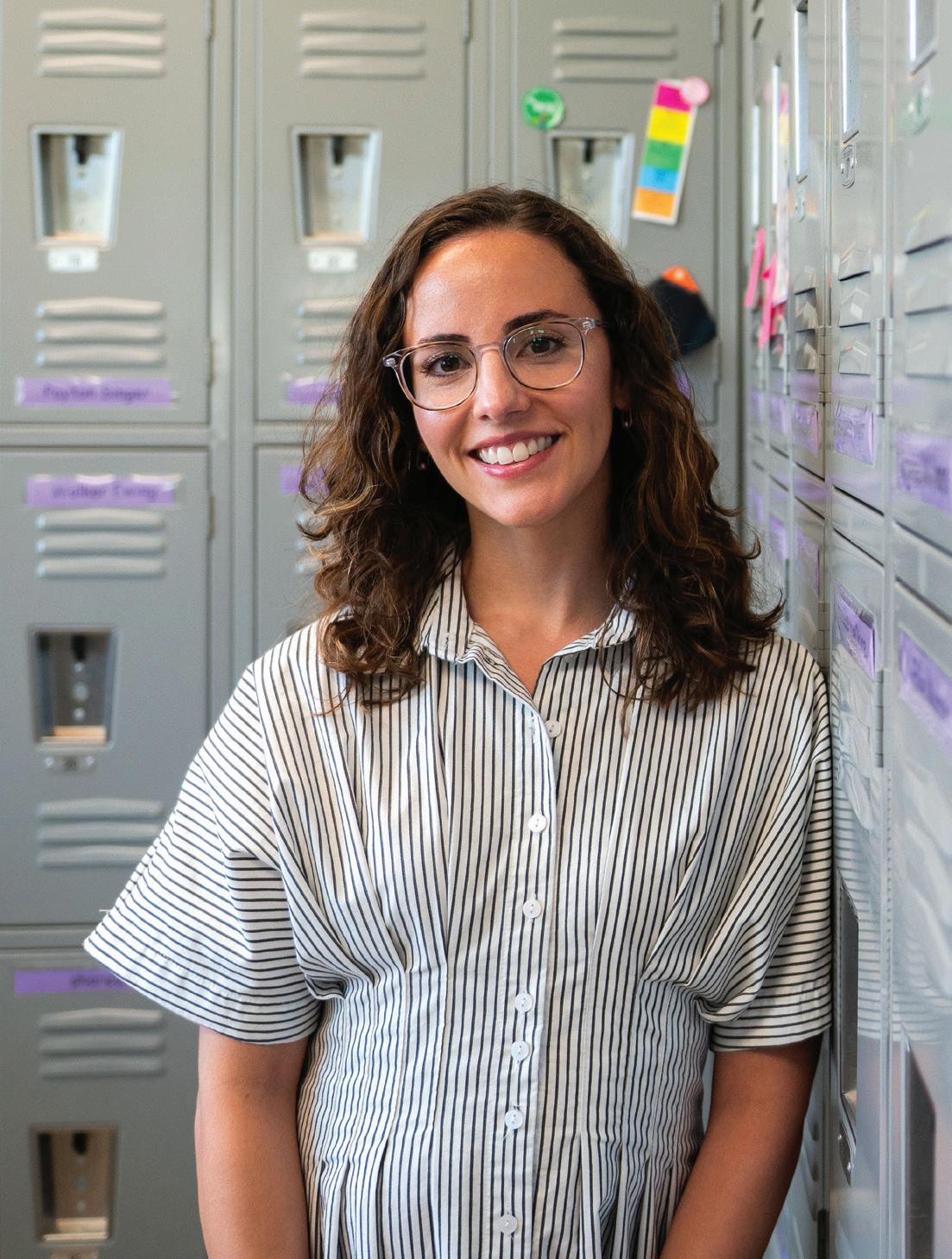
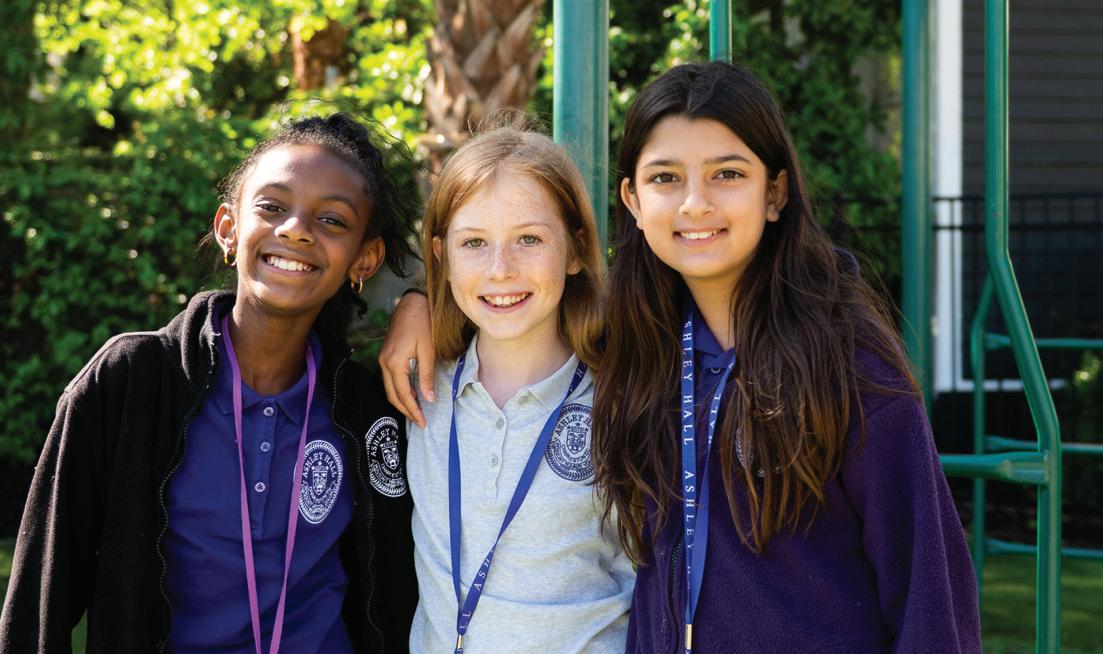
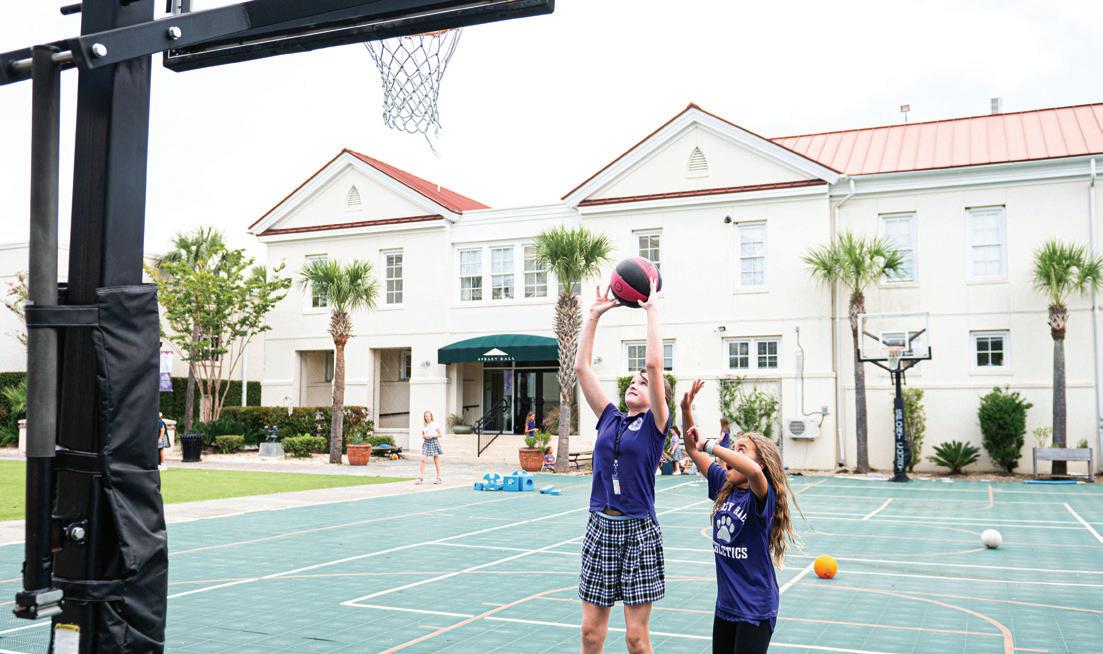
WHERE GROWTH AND CURIOSITY MEET
WRITTEN BY CHRISTINA TRIMARCO
Middle School at Ashley Hall is the sound of an intense, but giggly, four square game on the turf. It’s a chorus of myriad eager questions about, really, anything and everything in class. It’s the whine of a mic as a fifth grader passes it to an eighth grader at Morning Meeting. It’s the sound of hammers hitting hulls during fifth grade boatbuilding. In short, Middle School at Ashley Hall is joyful, consequential, and buoyant; there’s a verve running through the halls.
The enthusiasm may not be new, but underneath exists an evolution in how we intentionally organize grades five through eight. This year, under the leadership of Director Alison Parks, Ashley Hall transitioned to a unified Middle School. Yoking grades five through eight involved extensive research, planning, and groundwork. Last year, six faculty members conducted research and development visits to independent schools in Ohio, New York City, and Maryland with one mission: “investigate other Middle School structures in order to inform Ashley Hall’s work in providing definition and structure to grades five through eight as a cohesive middle grades division.” These observations reaffirmed the current relevance and efficacy behind Ashley Hall’s Middle School mission and curriculum; simultaneously, the visits also inspired conversations around policy and programming. As a result, faculty designed a philosophy which outlines core foundational principles that define everything Middle School at Ashley Hall: relationships, reflection, learning, growth, and refinement. Thus, backed by ample research and discussion, the
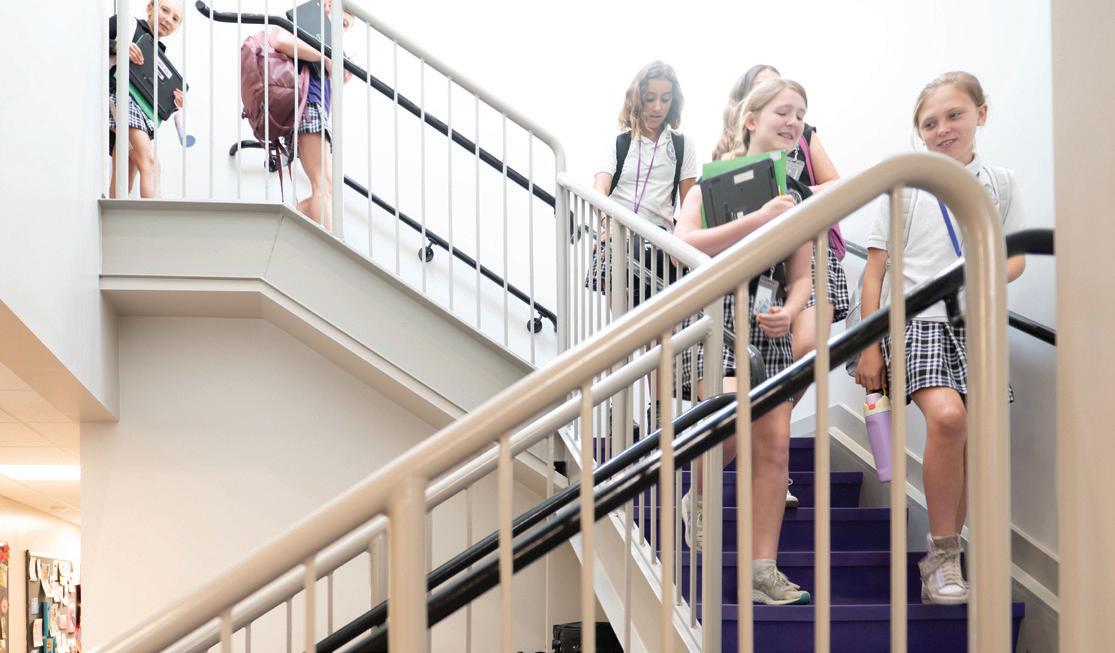
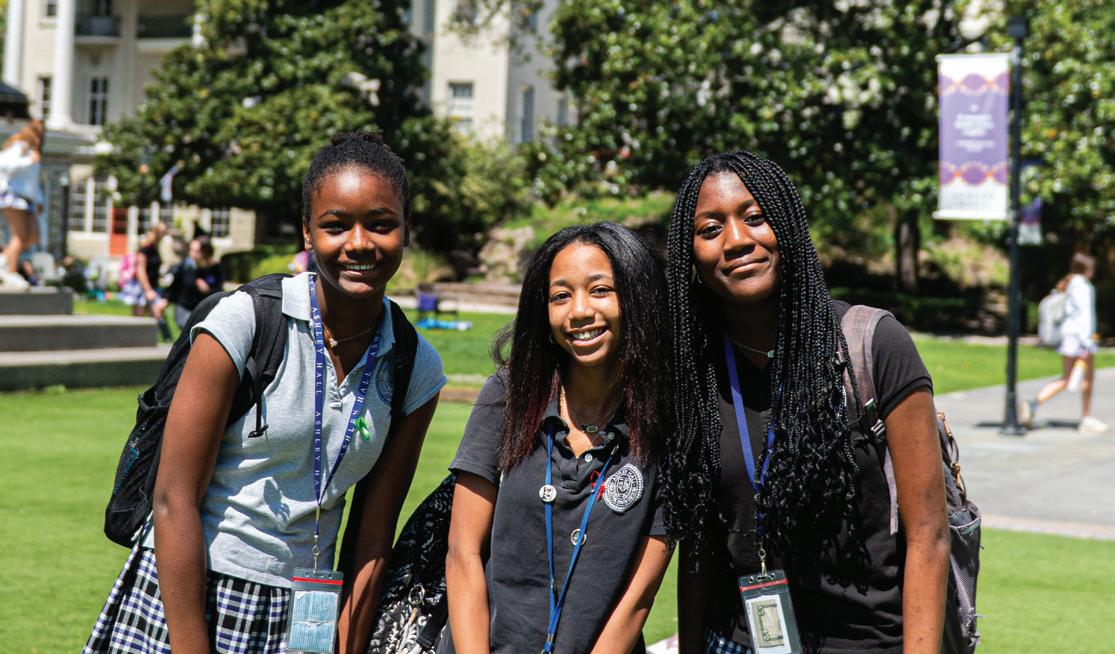
grades merged under a framework designed for students to learn and thrive in a creative and intentional environment that promotes student investment and student progress.
Significantly, the division’s mission orbits around the “whole child” approach to education, which acknowledges the bonds between social-emotional development and learning. Being mindful that the ages between ten and fourteen are inherently dynamic—some might affectionately say “messy”—means that every grade level reinforces habits of mind, like accountability and organization. Students learn how to be efficient learners, so they experiment and troubleshoot processes to locate individual best practices; in turn, students learn more about themselves: their resilience, passions, strengths, and goals. When asked to reflect on the structure of learning this year, Aliyah Fludd ’30 recently shared, “It’s easier to take responsibility. It helps build responsibility because you have support and accountability.”
Gaining knowledge through consistent and timely feedback, from both students and teachers, is a cultural norm at Ashley Hall. As Dr. Luc Bonhomme, beloved Middle School French teacher, explains, “Ashley Hall fosters a student-centered learning environment that encourages creativity, collaboration, discernment, purpose, compassion, intelligence, and global awareness. One of my greatest challenges and satisfaction is helping students understand the value of learning with purpose. All in all, the Middle School challenges students to embrace the constructive struggle of learning. This is important in their formative years because it helps them grow and prepare to be successful–both academically and beyond.”
Although already ingrained within the mission, incorporating conspicuous reflection and self-management techniques also represents the influence of the International Baccalaureate (IB) framework. This
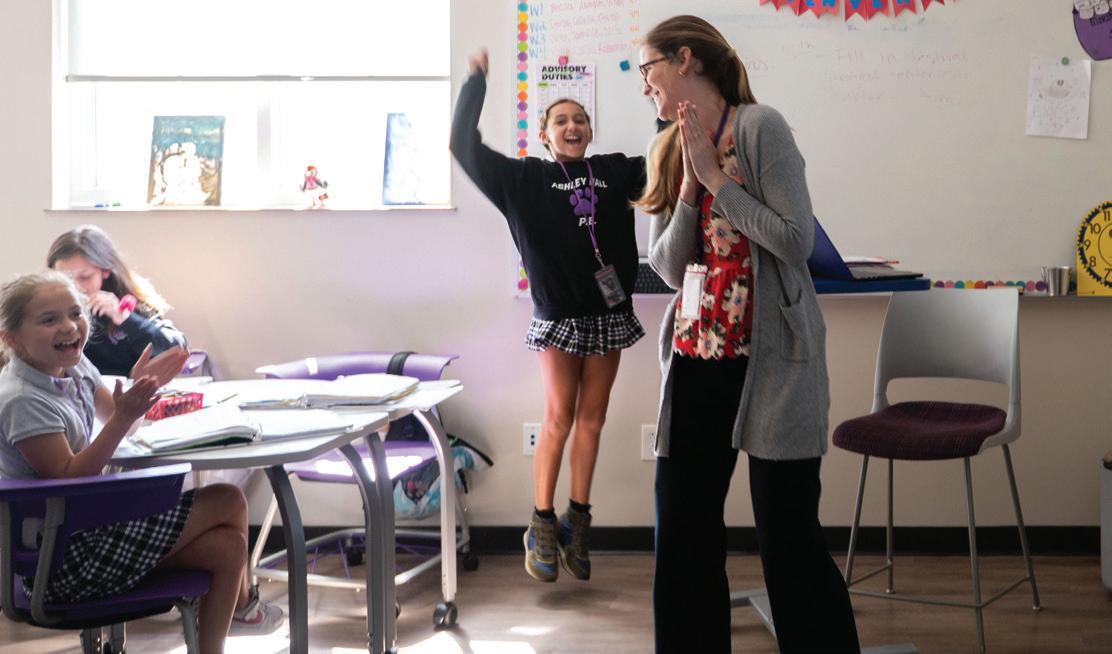
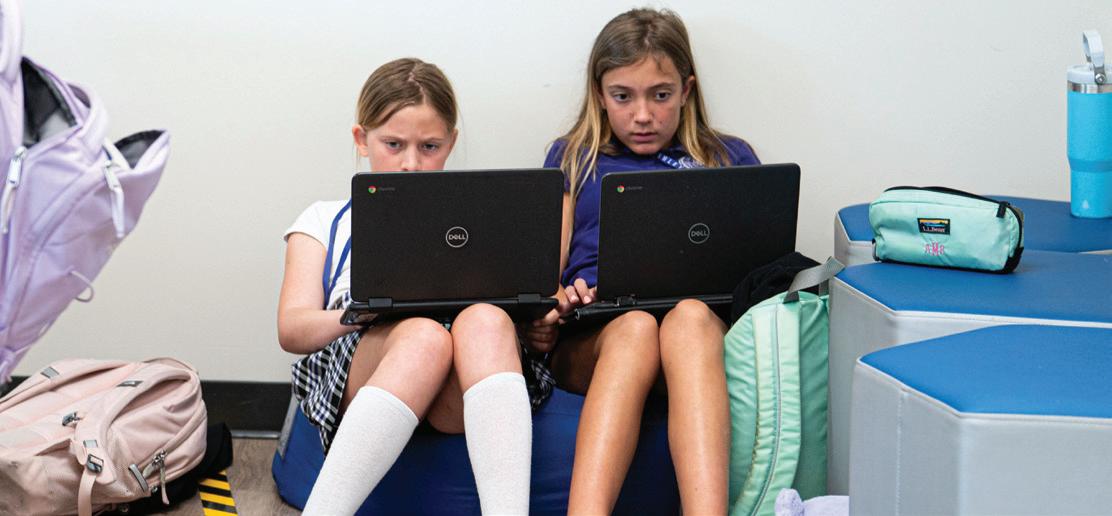
year marked Ashley Hall’s first year as a Candidate School for the Middle Years Programme, and under IB Coordinator Sara Lyle’s leadership, faculty started integrating IB language and concepts within the Middle School structure. As a result, learner attribute-fueled morning meetings and collaborative faculty half-day intensives have become key in steeping students and faculty aligned with IB culture. With the recent authorization of the Primary Years Programme in Lower School, the evolution is natural. Moving to IB provides the opportunity for enhanced global and interdisciplinary connections in the middle years.
Invitations for discovery, in all its forms, can be found throughout the Middle School years. Beginning with a team-building visit to Green River Preserve, the fifth grade students spend the year immersed in STEAM, which culminates in building and launching studentcrafted boats. Sixth graders become stewards of sustainability through gardening as they generate inquiry-based solutions for future global issues. After studying mentor texts as “windows and mirrors” for developing perspective, identity, and empathy, seventh graders end the year serving as docents at the Gibbes Museum of Art for the “Docent Project.” Finally, eighth graders grow communication and collaboration skills while learning about Physics and Ecology at the annual Disney STEM trip; the trip punctuates a year already saturated with bonding and leadership. These crucial years build abstract thinkers, self-assured leaders in dialogue with themselves and with the world.
An Ashley Hall classroom provides a learning environment where students have a safe space to try, fail, and reflect—an iterative process that underpins the Middle School curriculum and methodology. Students question. Students problem-solve. Students build grit.
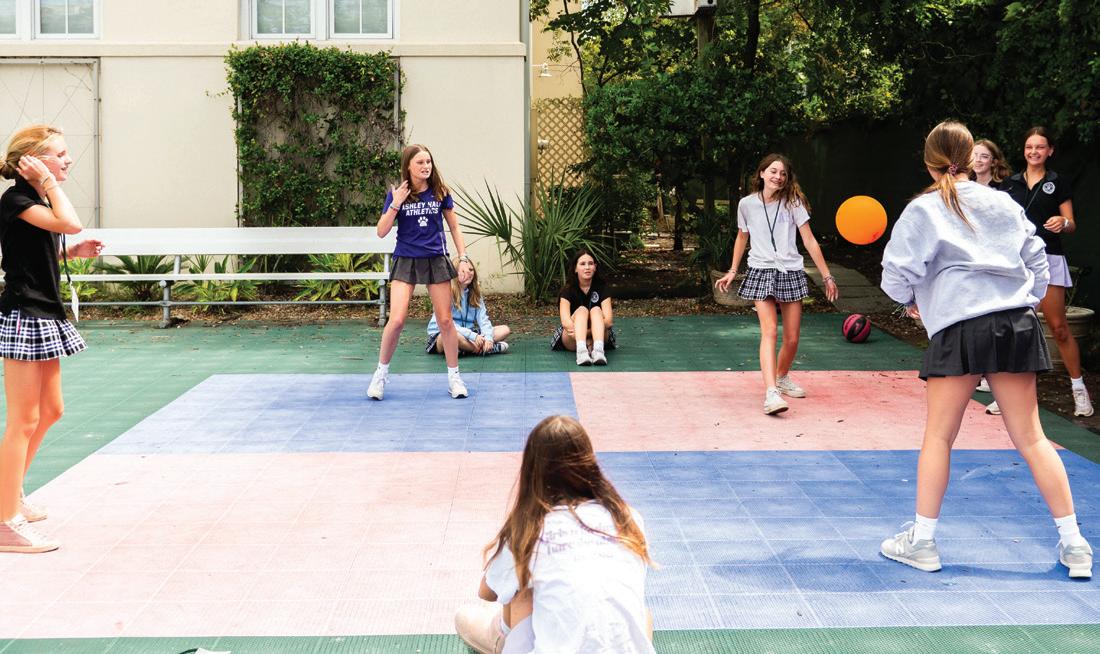
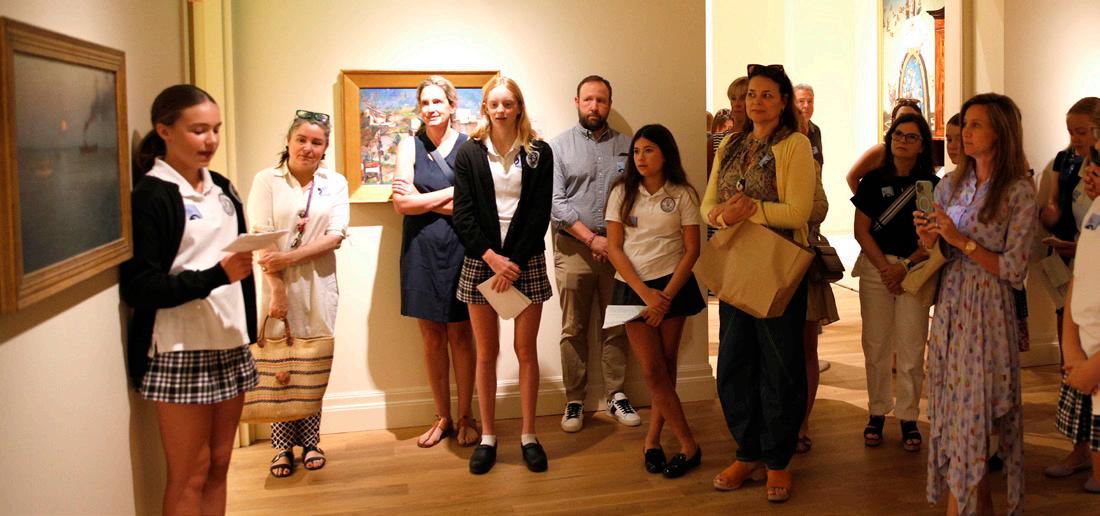







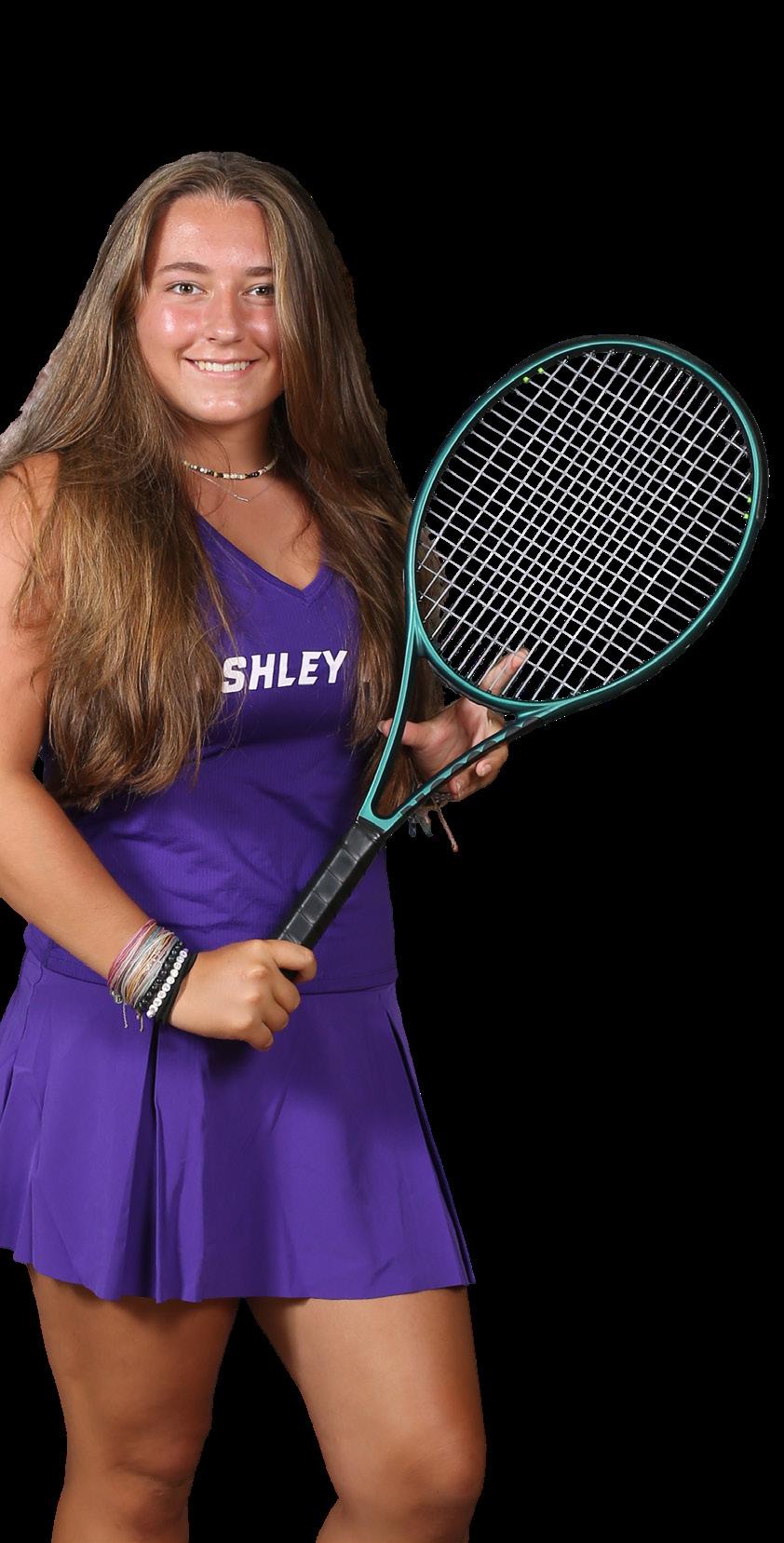
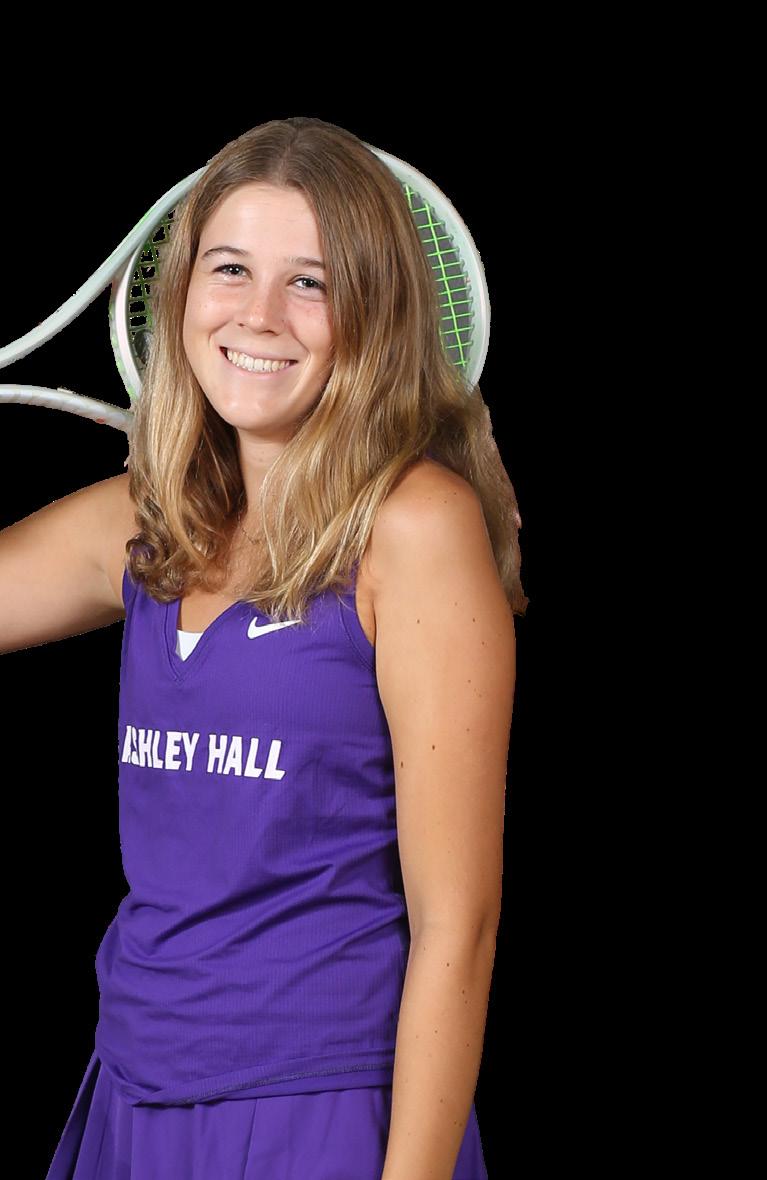
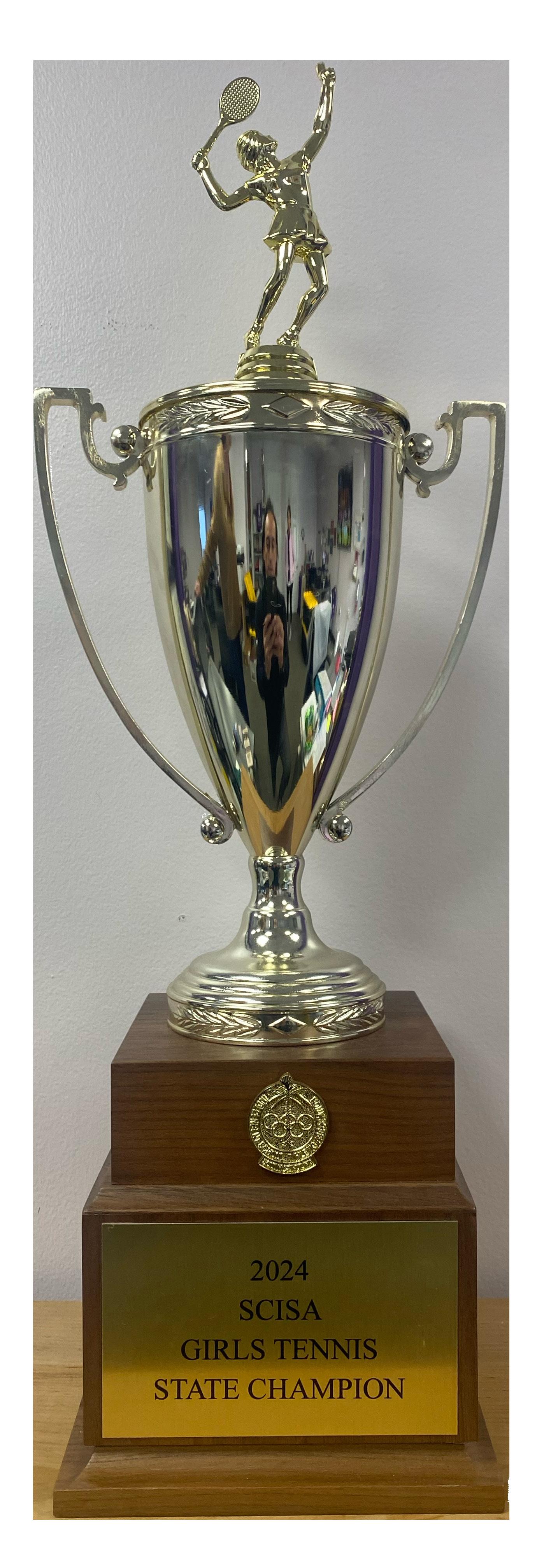







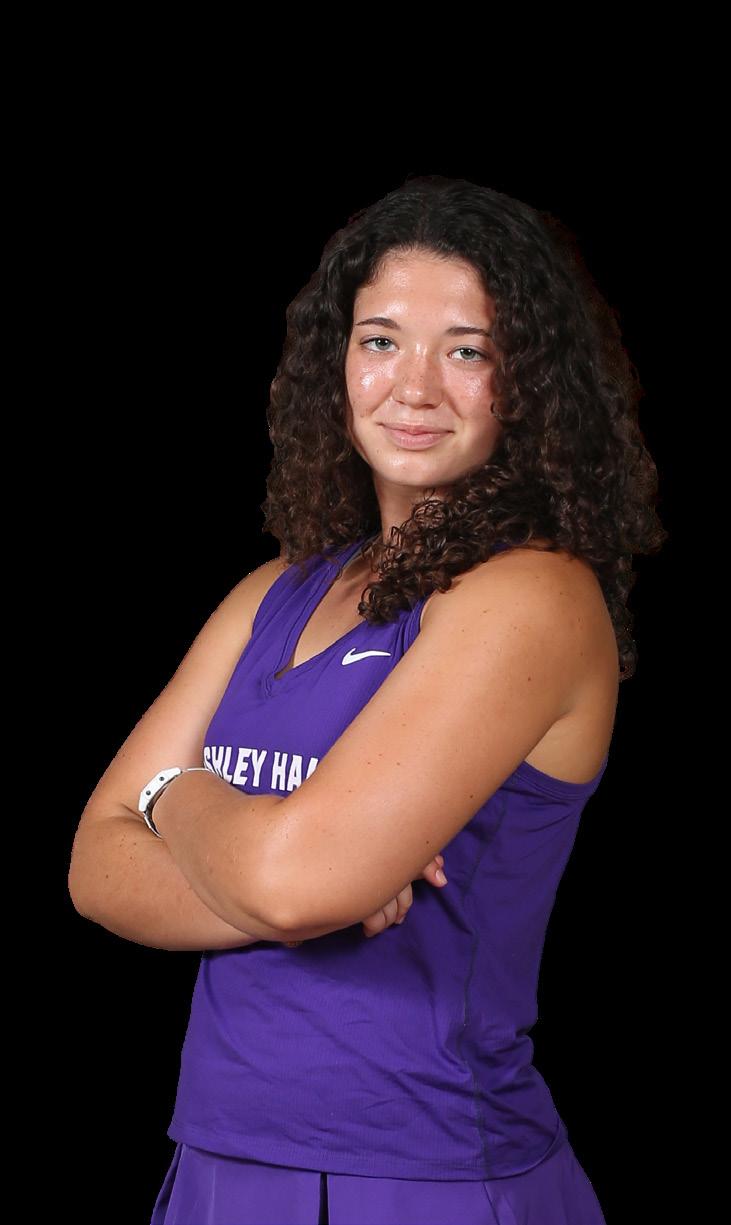
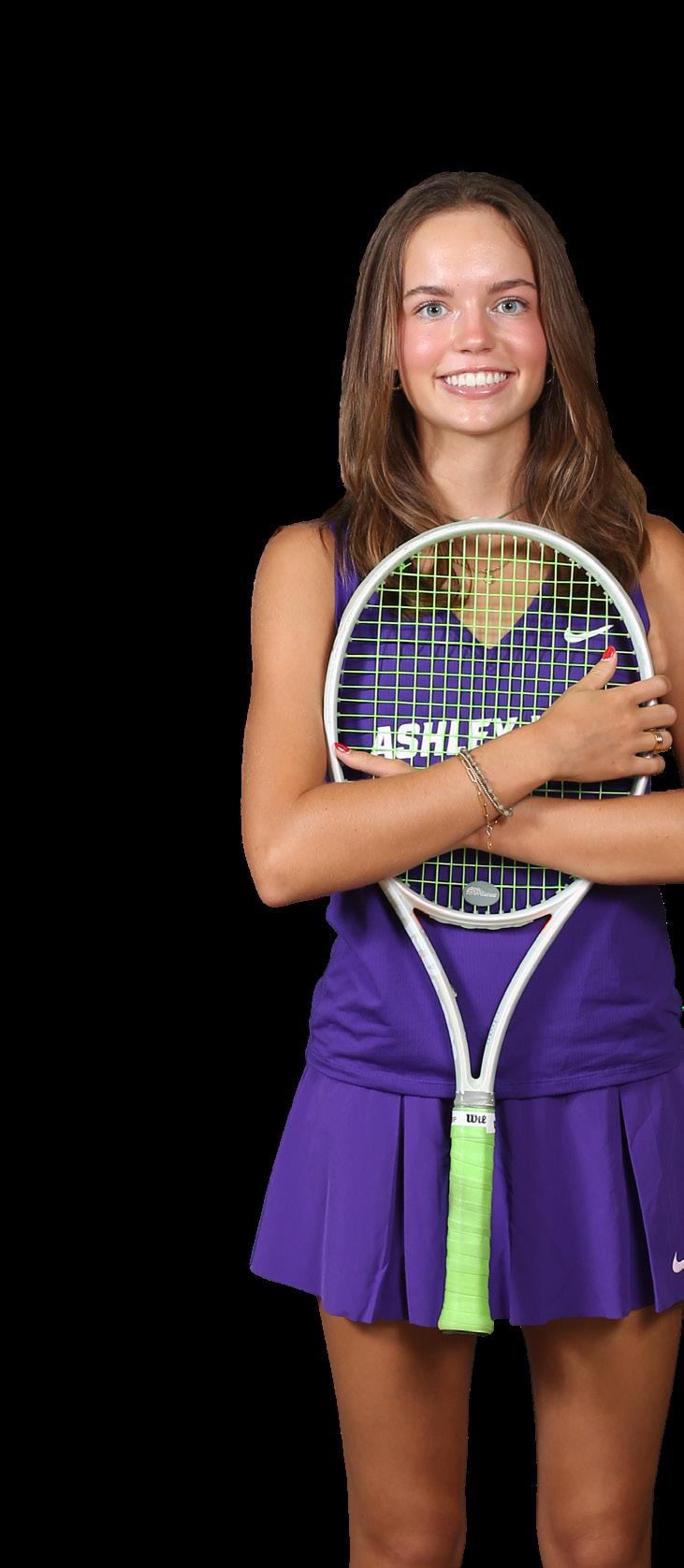
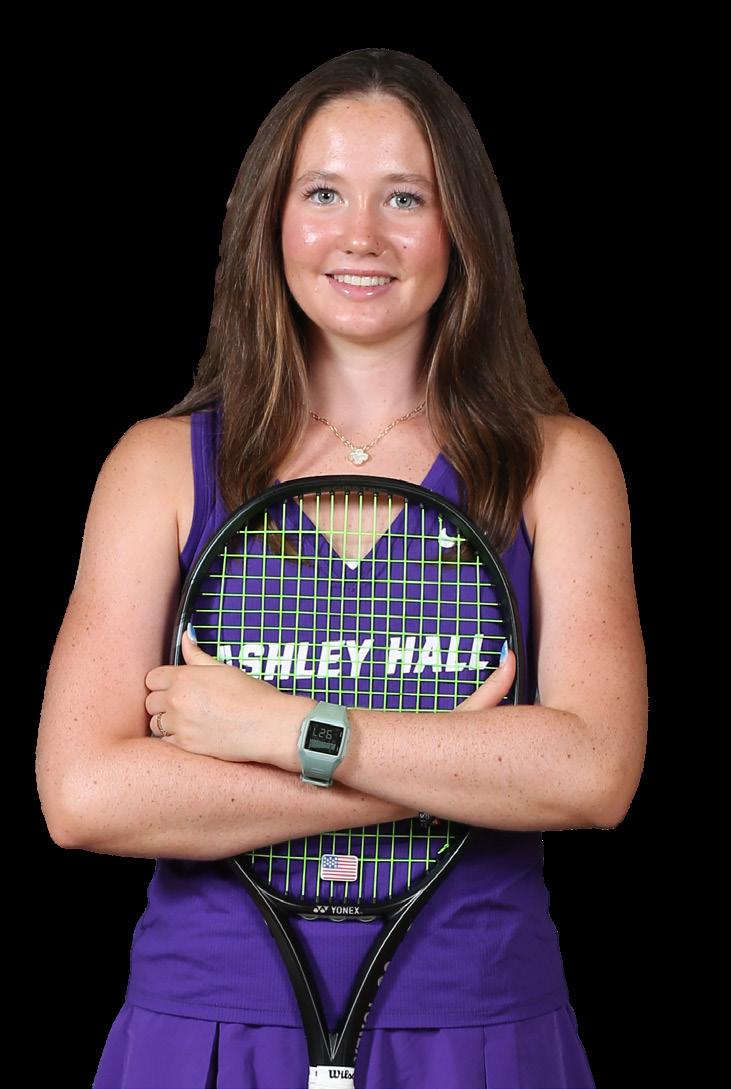
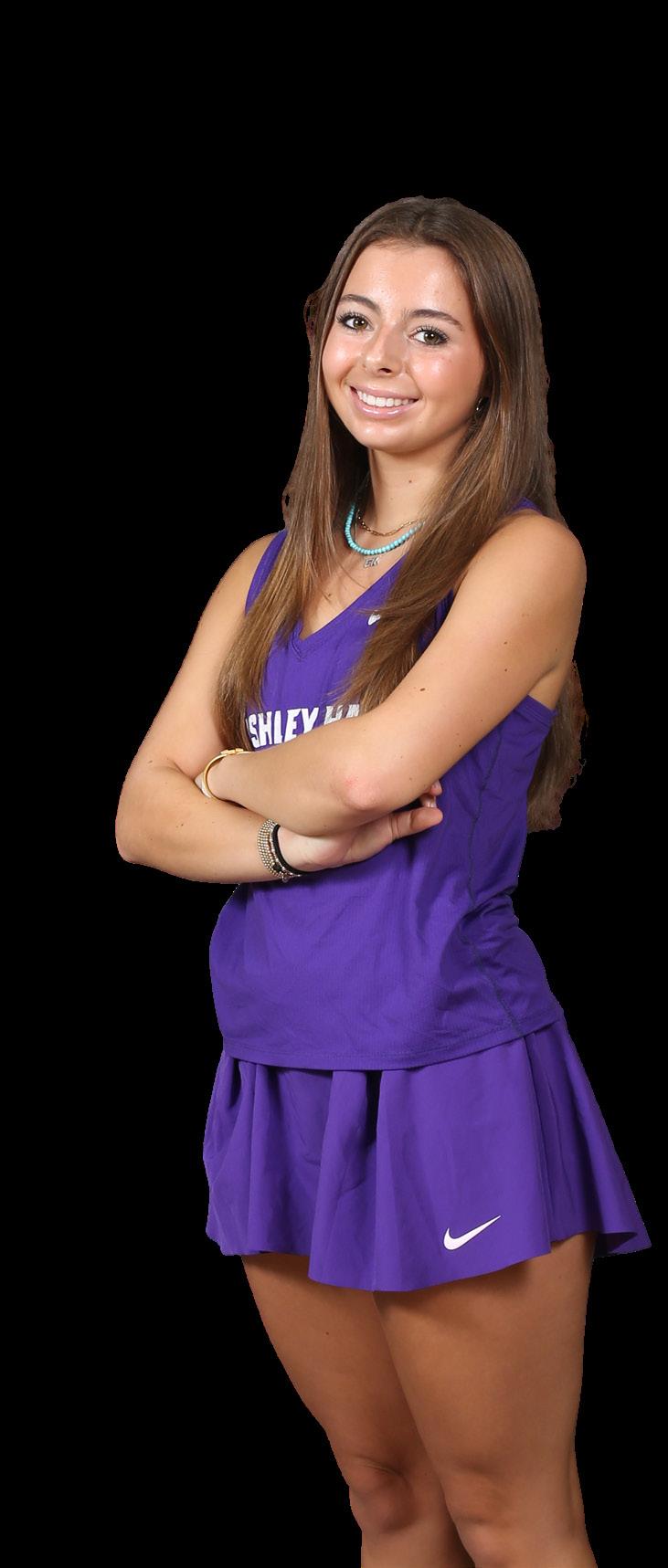
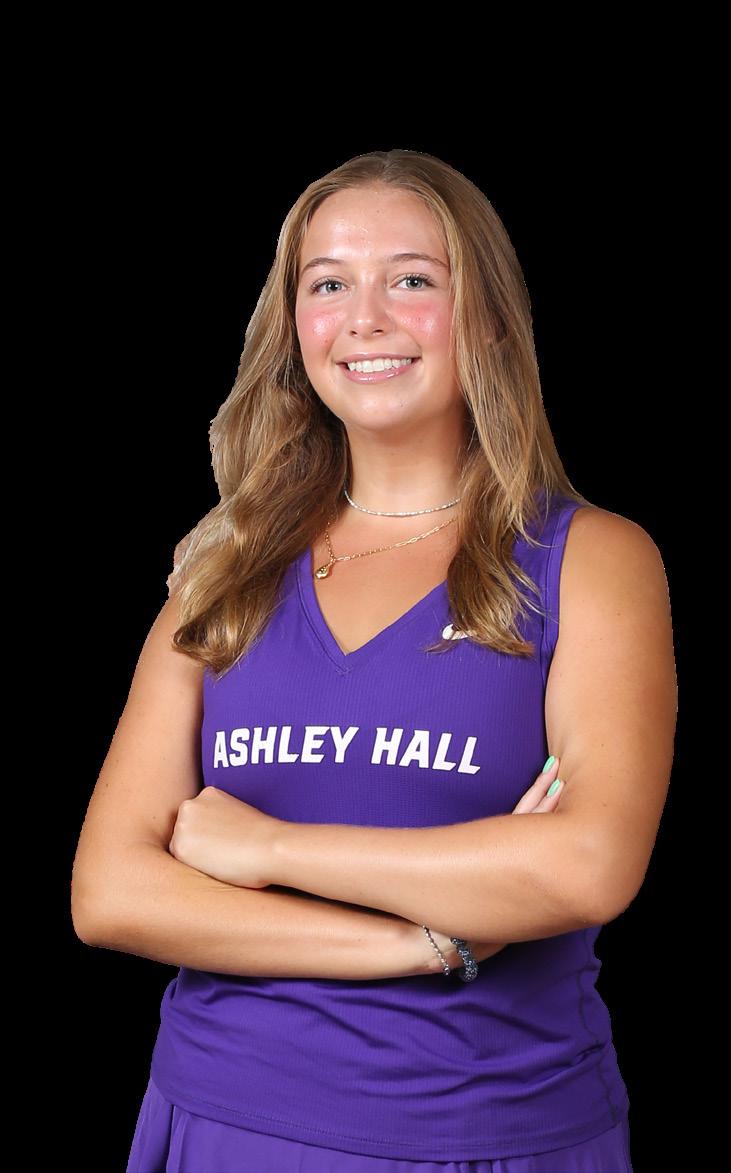

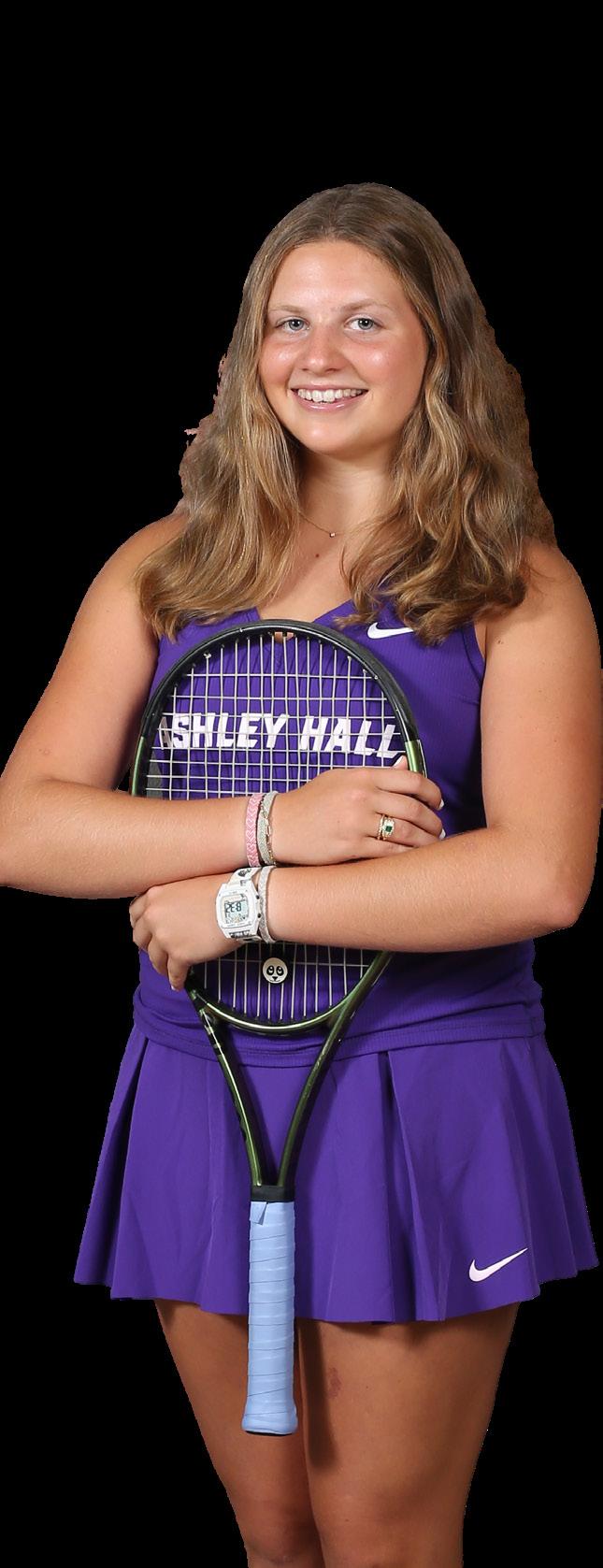
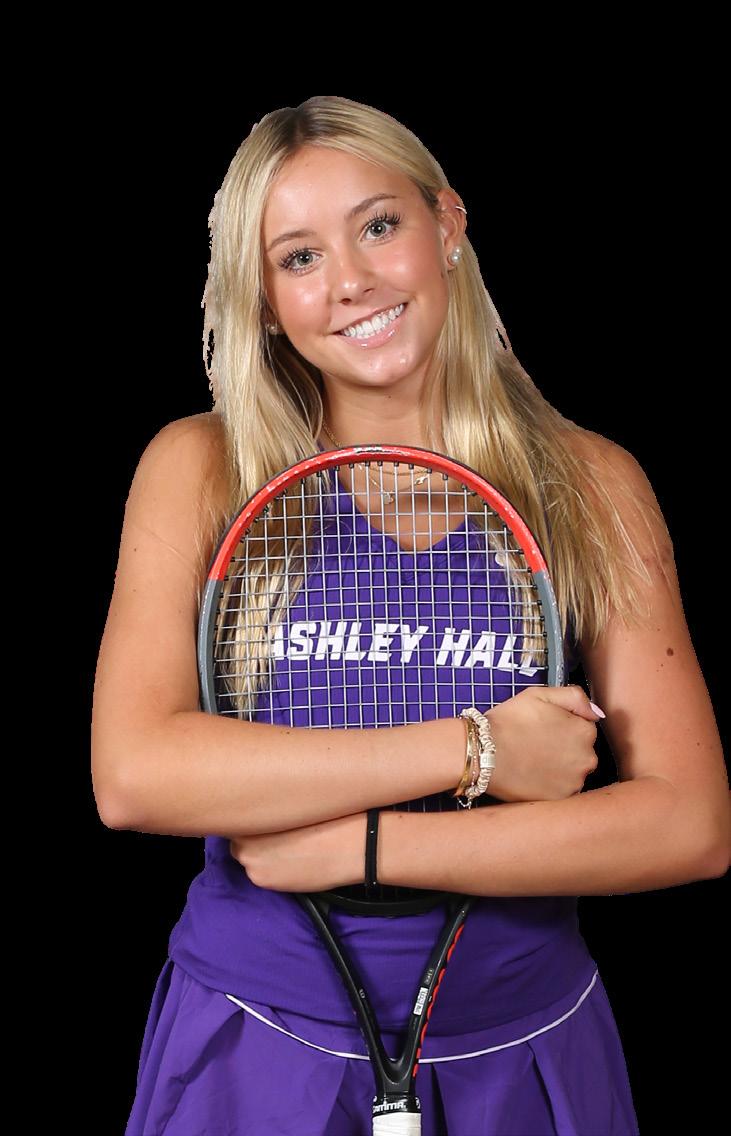

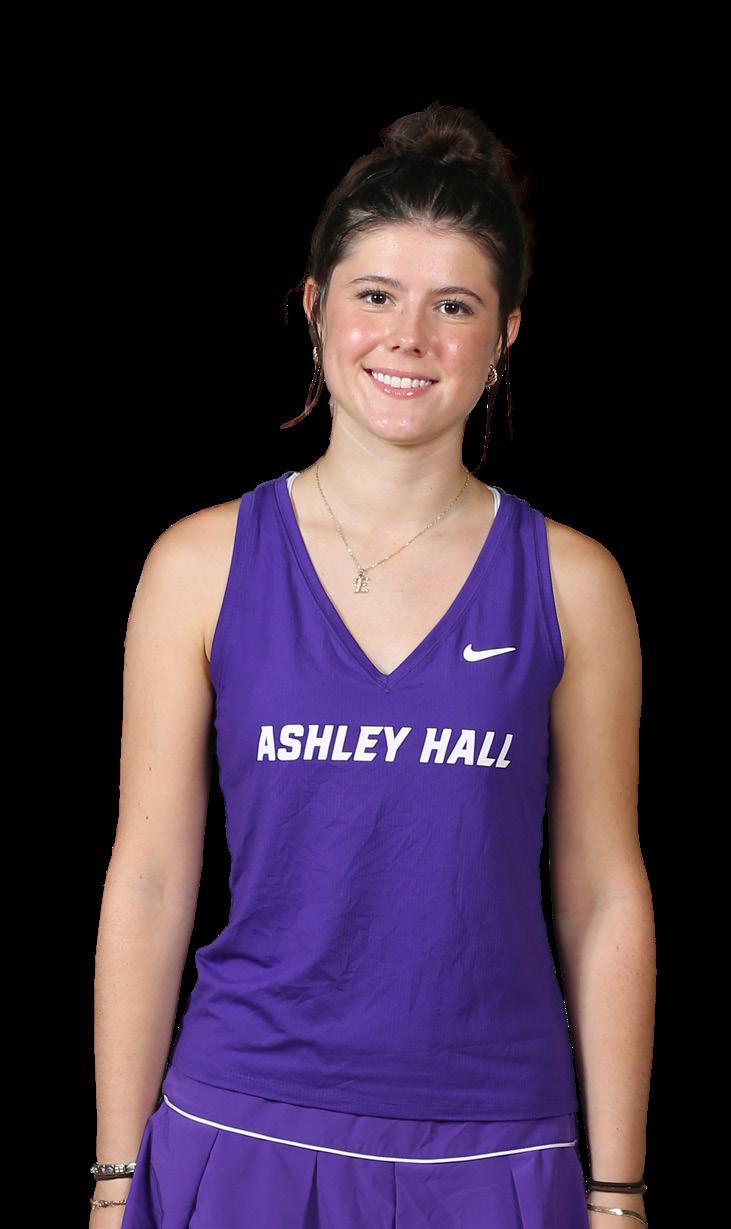
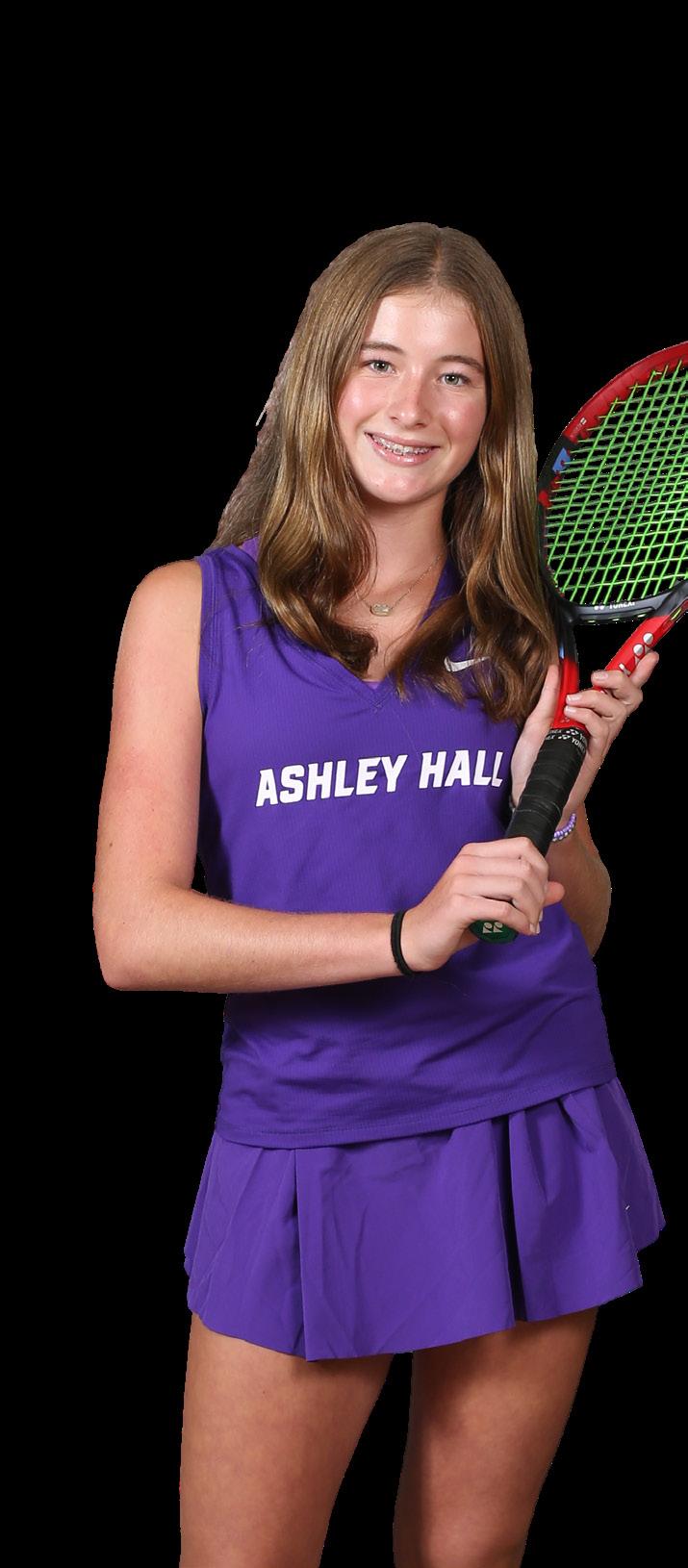
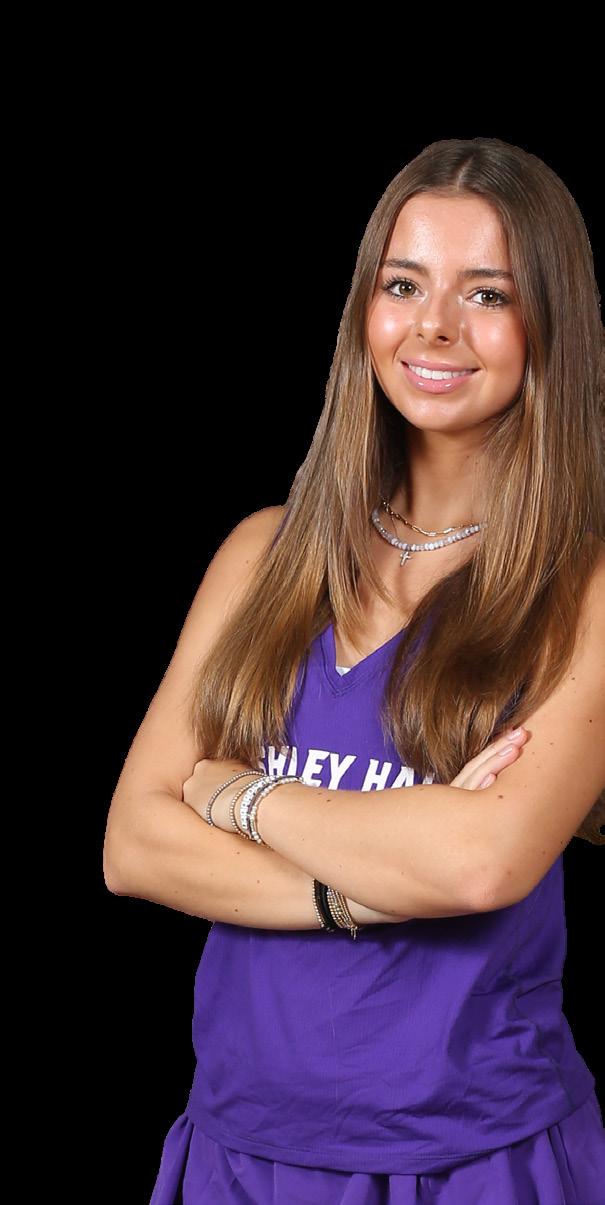
The Making of CHAMPIONS
From long preseason drills under the Charleston sun to lateafternoon matches that stretched minds and muscles alike, the Ashley Hall Varsity Tennis team carved out a season for the books. Behind their commanding 5–2 victory over Trinity Collegiate School in the SCISA 4A State Championship stood months—and in some cases, years—of preparation, resilience, and unity. The Panthers closed the season with a 16–5 overall record and were undefeated in conference play, going 9–0 against SCISA opponents. But the numbers only tell part of the story.
Led by Head Coach Charlotte Hartsock, Assistant Coach Catherine Owen and co-Captains Kate Strenck ’26 and Emma Tedford ’26, this group of 14 athletes transformed what is often seen as an individual sport into a showcase of team spirit. Day after day, they showed up— not just for themselves, but for each other. Whether running drills after school, competing in weekend tournaments, or cheering one another through long, back-to-back matches, the players cultivated a culture rooted in trust, focus, and joy.
“It was truly unforgettable!” reflected co-Captain Strenck. “Every day, we pushed each other to play our best and show true
PRESEASON FOUNDATIONS & PRACTICE ROUTINES
Success didn’t come overnight. In the weeks leading up to the season, the team clocked 8 to 10 hours of practice weekly, setting a tone of discipline and consistency. During the season, their schedule remained demanding—two days of practice combined with up to three matches a week, many lasting over four hours. This intense routine helped build stamina, sharpen skills, and strengthen mental toughness for every player.
sportsmanship, both in practice and during matches.” That attitude—competitive yet compassionate—was at the heart of the Panthers’ identity.
What set this team apart wasn’t just their skill—it was their complete commitment to a shared purpose. Each player invested in the team’s success with full heart and effort. They came early, stayed late, and played hard. “Winning the state championship was an incredible highlight to the season,” Strenck added, “but the real victory was the bonds we built—with each other, the coaches, and with the families who supported us every step of the way. I'm so proud of how we stayed strong through every challenge, lifted each other up, and made every moment count.”
In every match and every moment, they represented Ashley Hall with pride. And when it came down to the championship match, they didn’t just rise to the occasion, they owned it. This is the story of a team that believed in the work, in each other, and in the legacy they would leave behind.
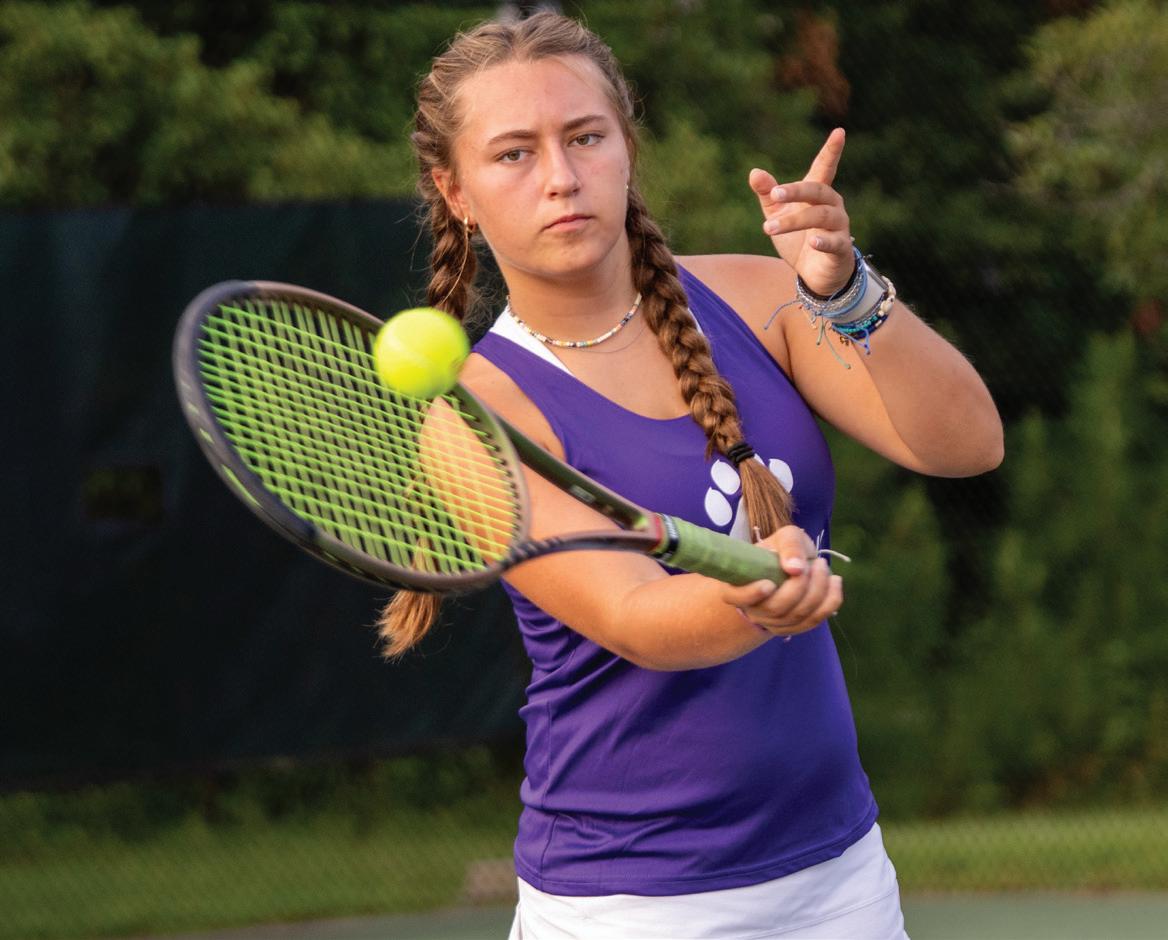
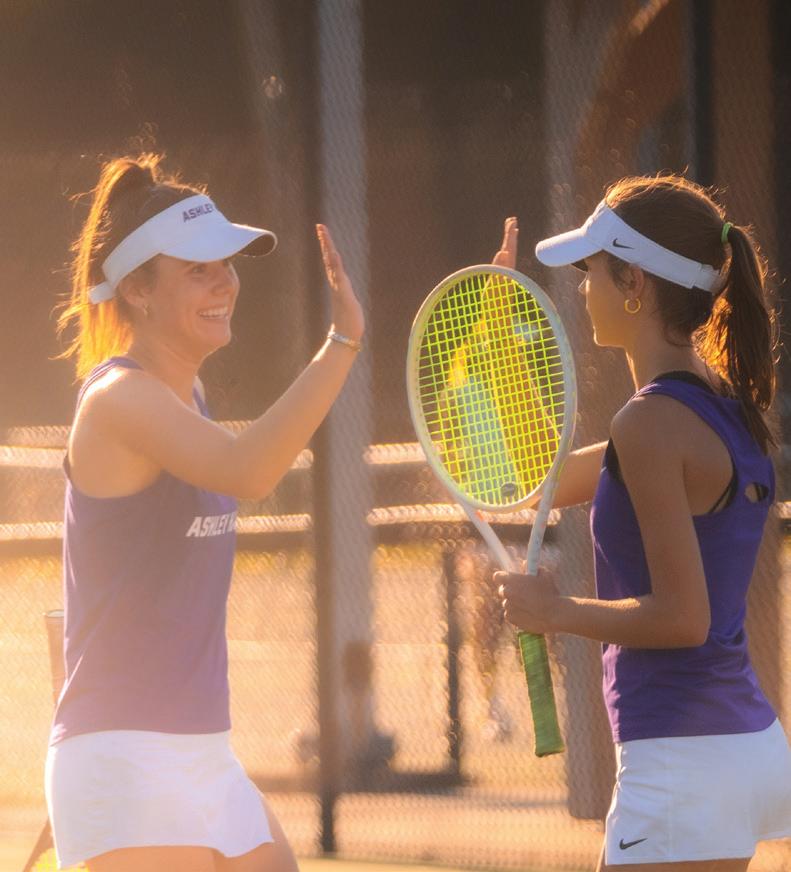
TOURNAMENTS THAT BOND AND BUILD
The Panthers took part in two pivotal tournaments—the Florence High School Tournament and the Bishop England Tournament. These events offered match play experience and allowed the team to face diverse competition, while spending meaningful time together. The off-court camaraderie during these weekends became a critical component of team chemistry, translating into tighter doubles partnerships and unwavering support courtside.
YEAR-ROUND DEDICATION
Every player on the Ashley Hall team is committed to tennis yearround, training privately with coaches and participating in USTA tournaments across the South. Their choice to prioritize tennis as their primary sport ensured constant improvement. Many players squeezed in early morning or post-practice lessons, demonstrating remarkable personal initiative and an elite athletic mindset that elevated the entire team.
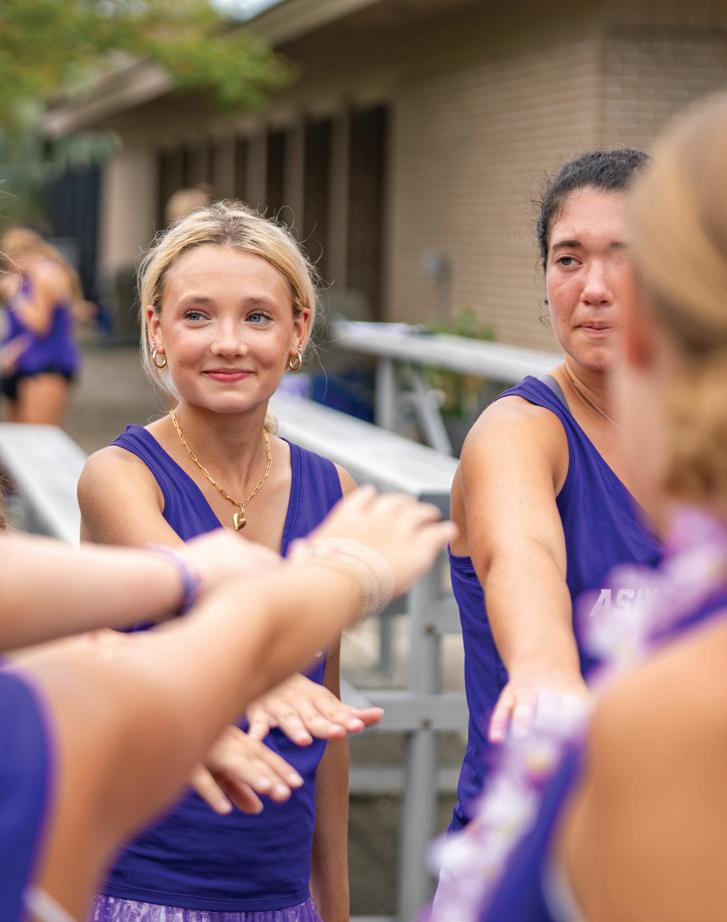
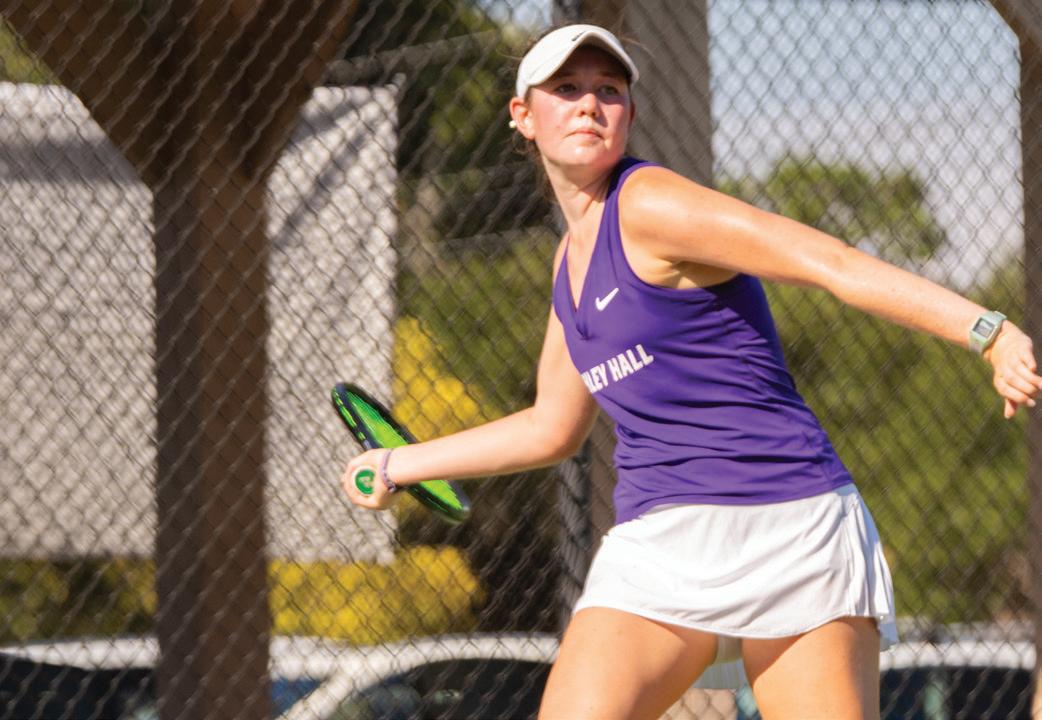
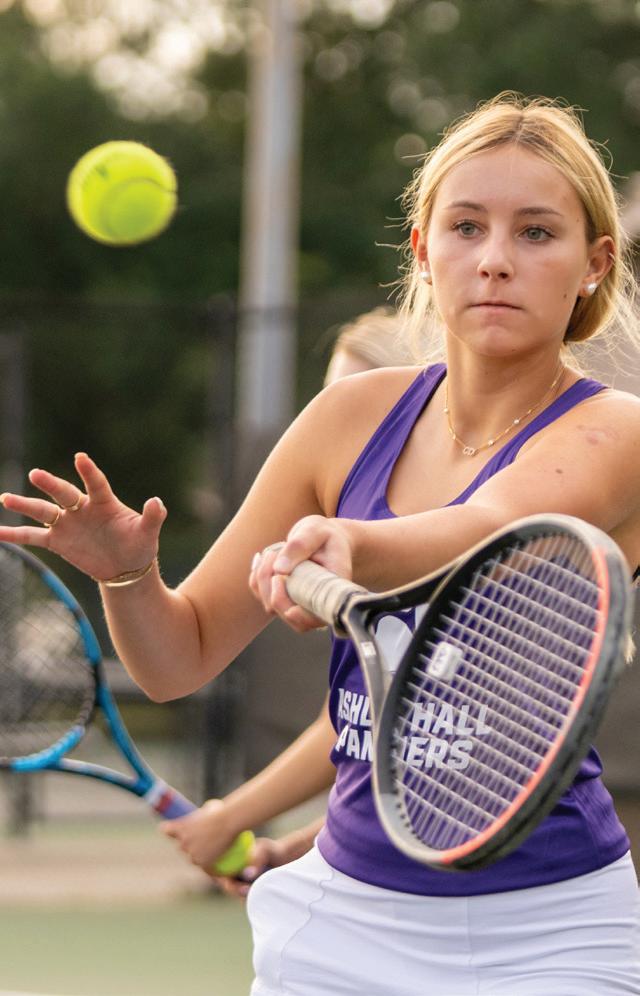
TEAM CULTURE
While tennis can be solitary, Ashley Hall's team cultivated a culture rooted in unity. Players often arrived early to practice and were reluctant to leave, extending sessions with spirited games like “touch the fence.” The team showed up for each other, built each other up, and created an environment where everyone felt valued. This collective energy became the secret sauce to their winning state championship run.
"The moment we won the State Championship was amazing—we all ran onto the court, jumping around and cheering in one big hug with huge smiles on our faces. I’ll never forget it! Our bond made the team so incredibly special, especially combined with the strength, guidance, and kindness of Coach Hartsock. We’re definitely more than a group of individual players. I think that’s what differentiates us from other teams and what led us to bringing home the trophy this year!
– Lily Sloan ’26
A SEASON IN NUMBERS
This season stands as a powerful testament to the resilience, unity, and passion of the Ashley Hall tennis team. Every hour spent on the court this season reflected the players’ deep dedication and the coaches’ unwavering support. “I am so incredibly proud of this team,” said Emma Tedford ’26. “We showed up to win and our hard work and determination certainly paid off.”
Beyond the final scores, the Panthers built a season filled with high energy, enduring friendships, and moments of real growth. “The energy on and off the court was so high throughout the entire season, and it was a privilege to be a captain and help lead the team to win a state championship,” added Tedford. Her words underscore what made this team extraordinary—not just the titles, but the relationships and spirit they nurtured along the way.
The numbers (and championship trophy!) tell a story of hard work, but behind them are countless moments of laughter, challenge, and triumph. Congratulations to every player and coach for building something truly special—your effort, spirit, and camaraderie have made this season one to remember. Go Panthers!
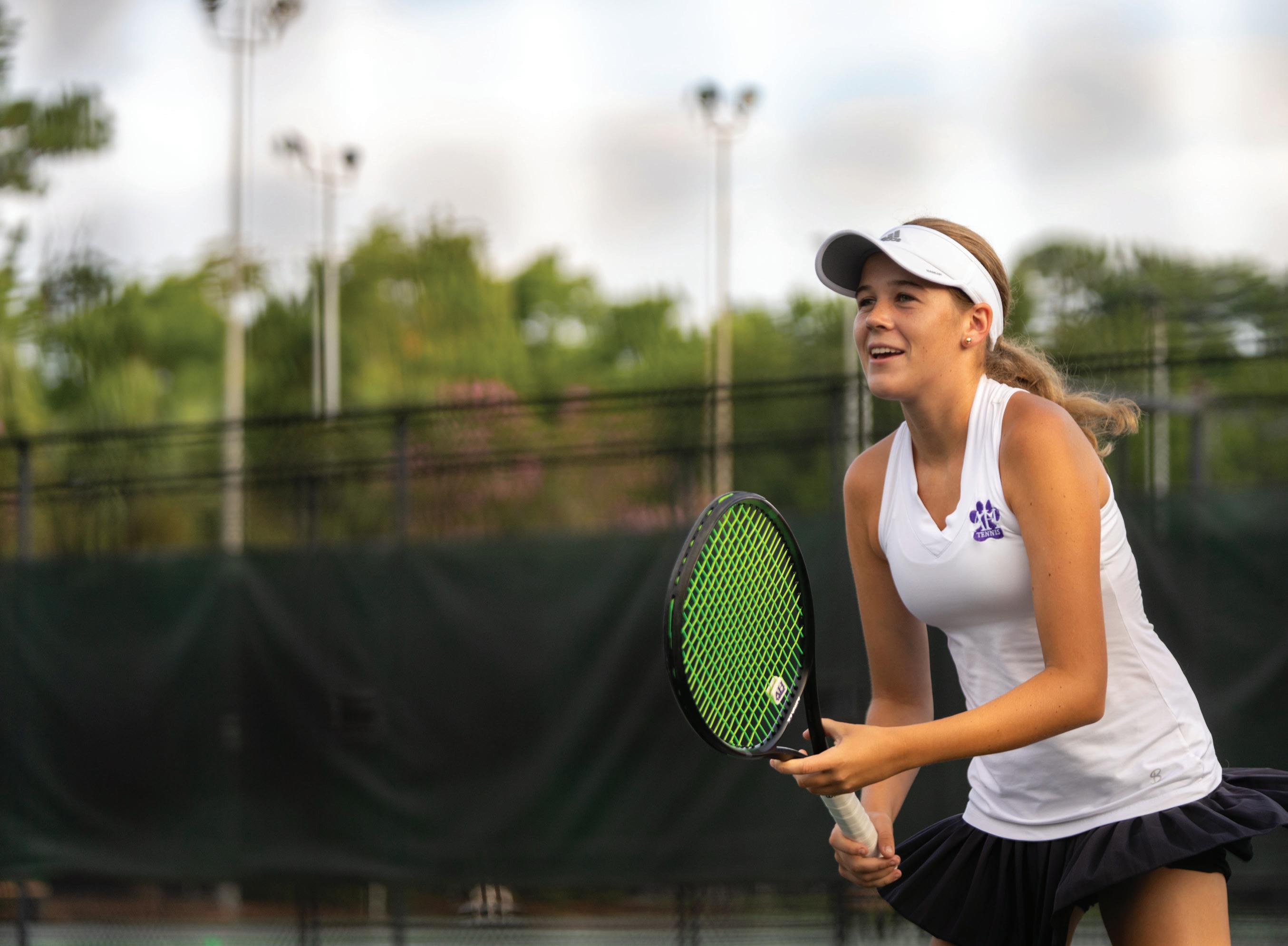
80–100 hours of pre-season training
350+ hours on court 21 official matches
2 major tournaments
14 teammates
90+ hours of competitive play
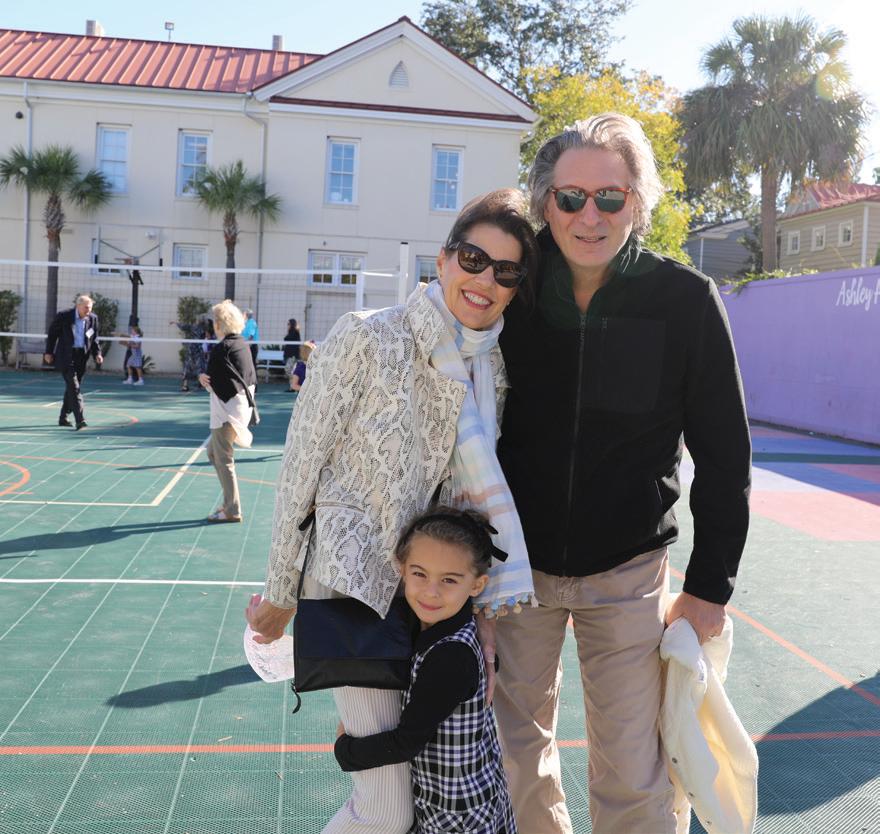
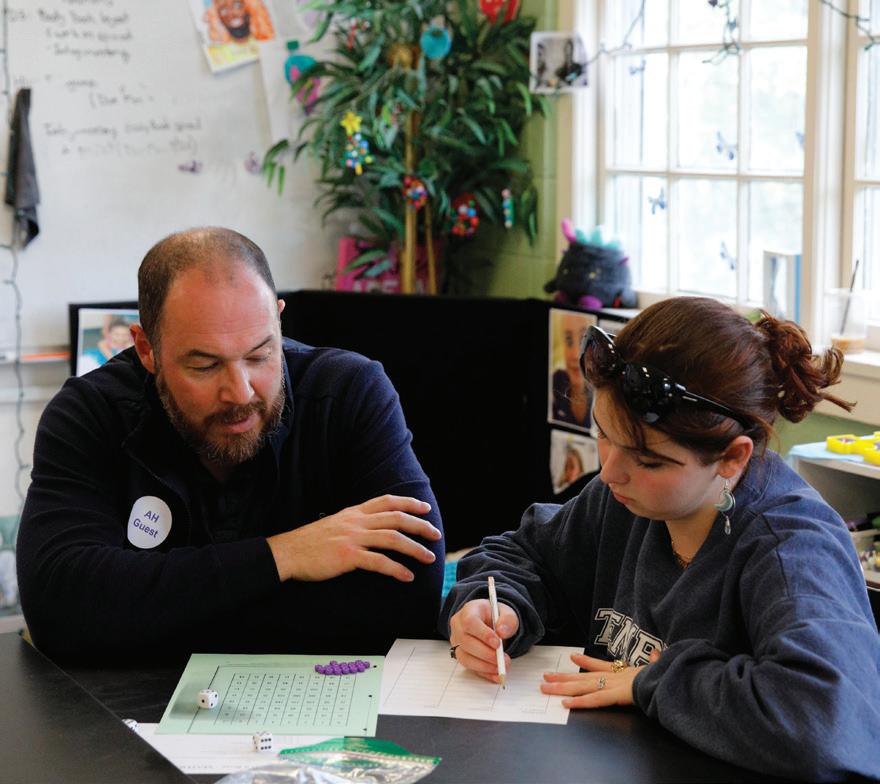
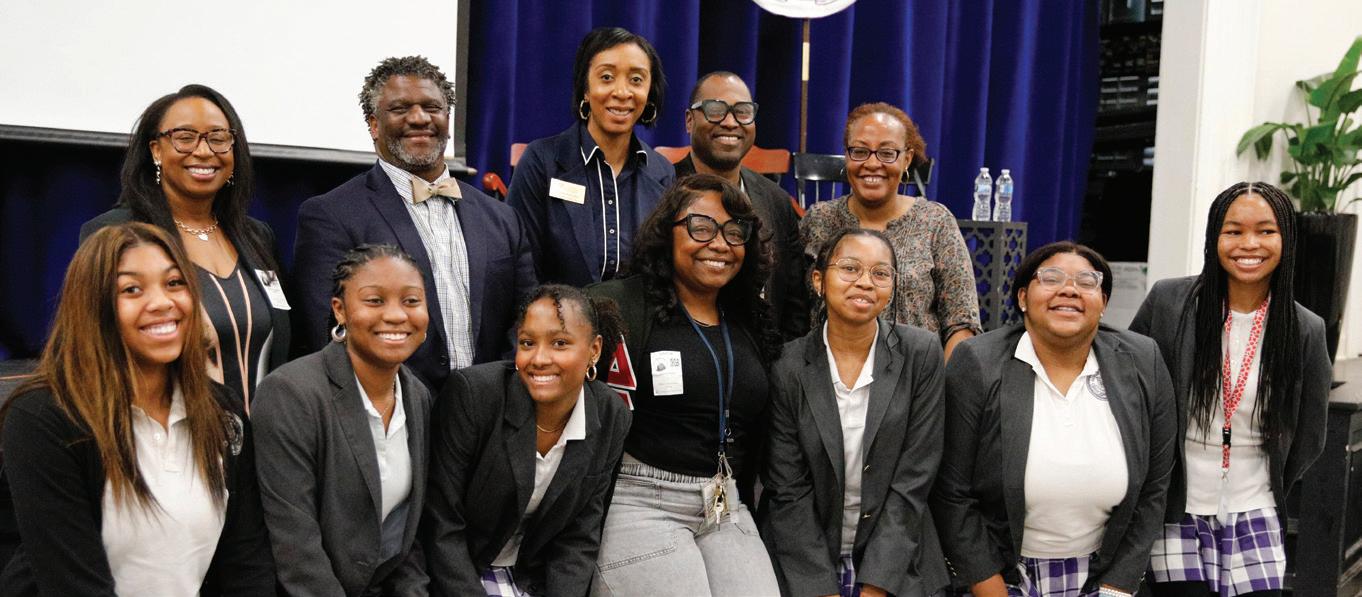
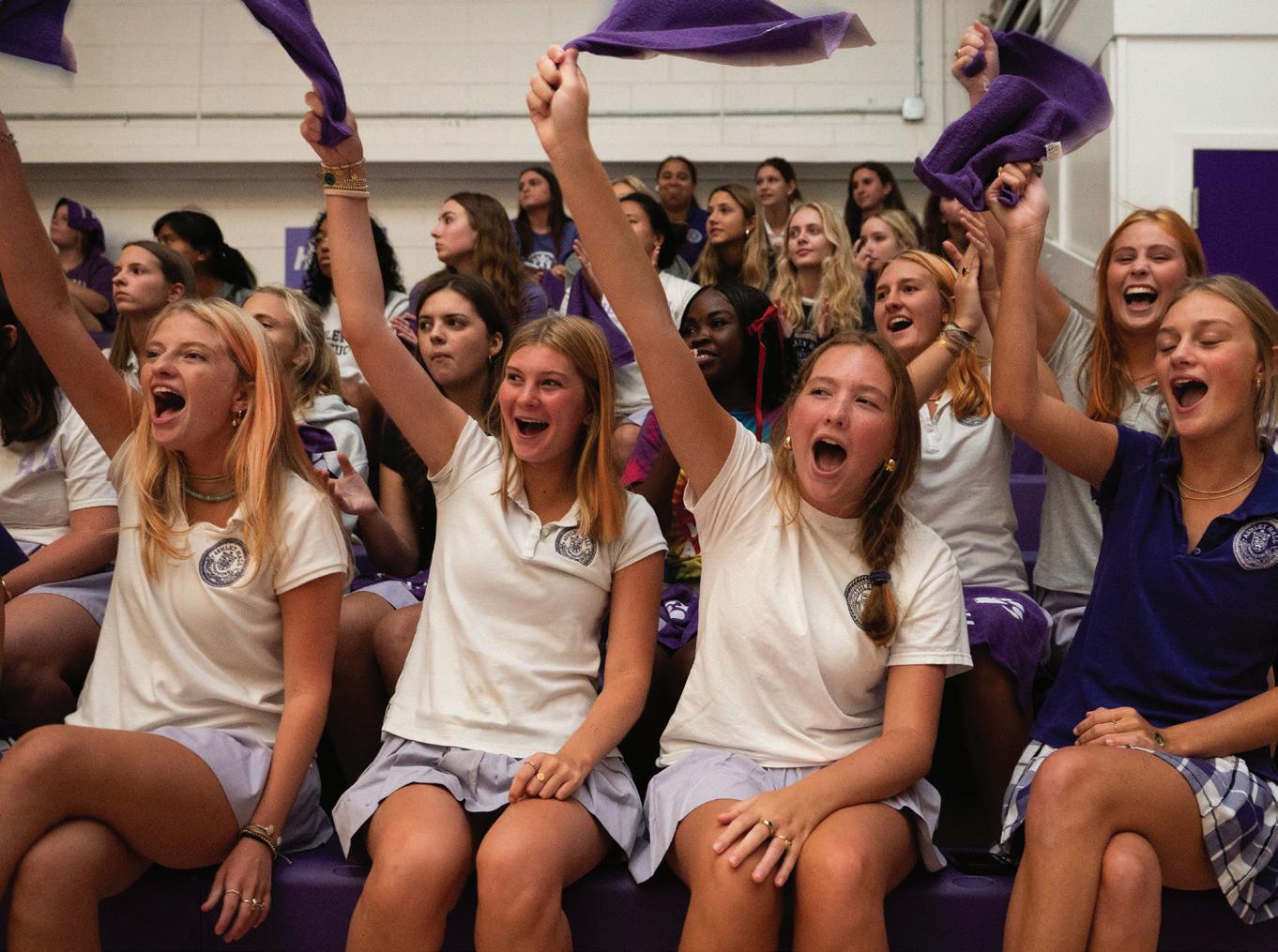
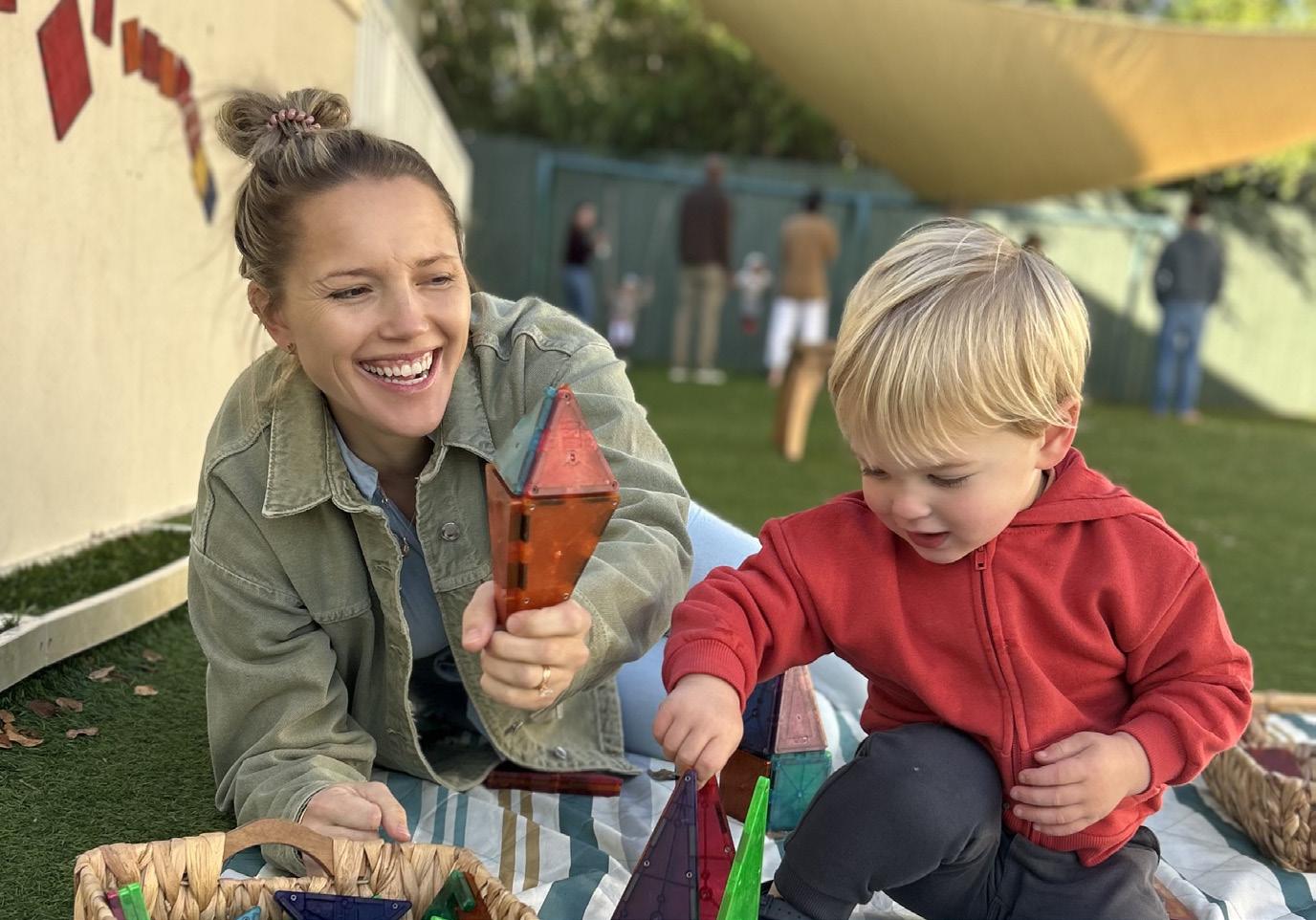
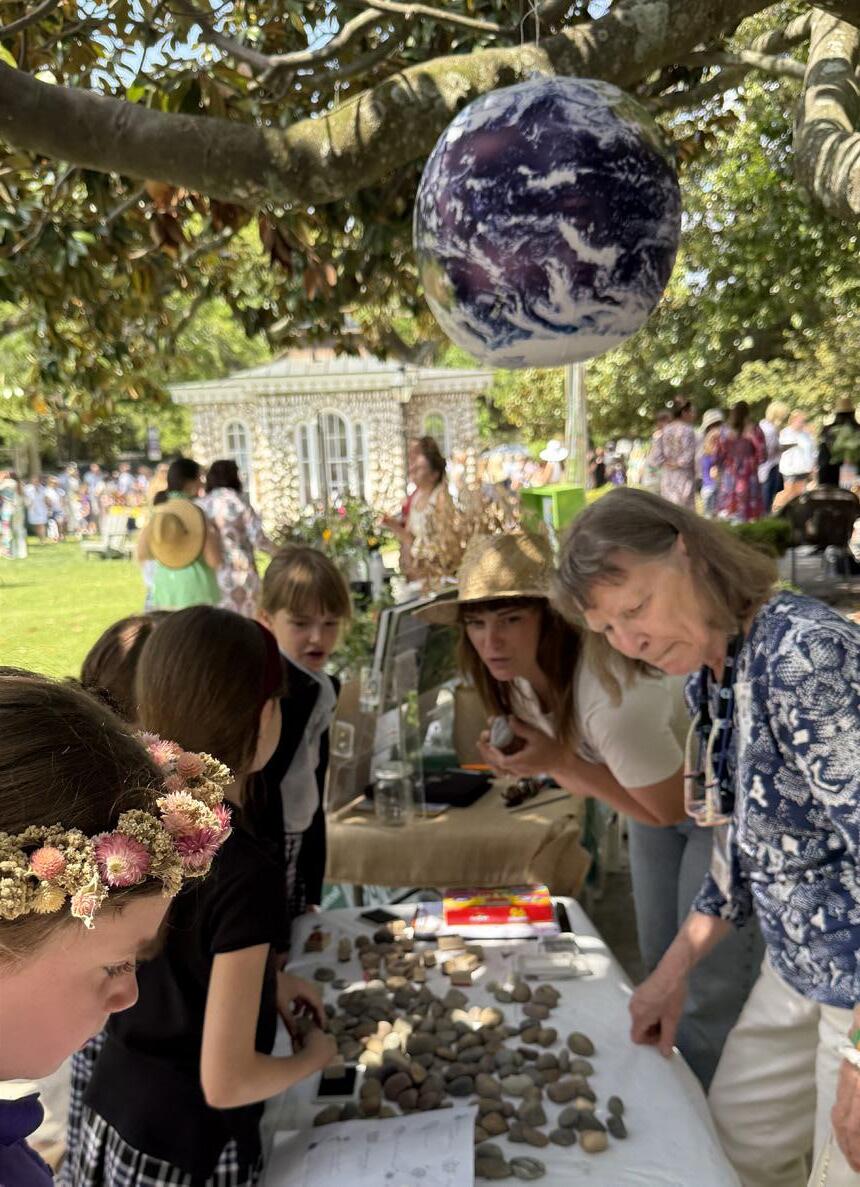
OUR COMMUNITY
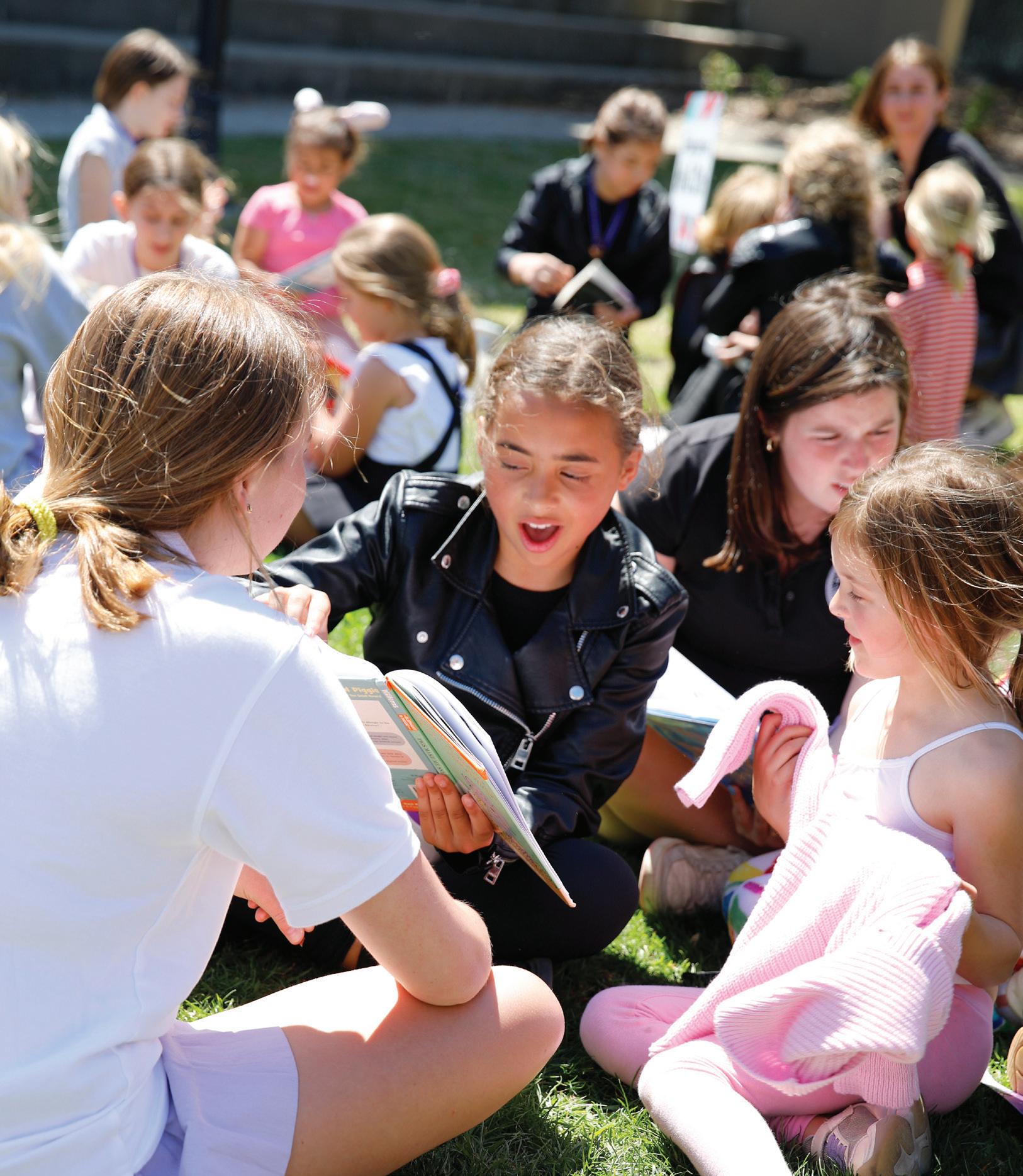
Throughout the year, the spirit of Ashley Hall comes to life through the meaningful connections and vibrant moments shared with our community. From spirited classroom collaborations to joyful campus events, the energy and dedication of our students, faculty, families, and alumnae create a vibrant, supportive environment where students truly thrive. These photos capture the heart of who we are—a wonderfully engaged community united by a shared commitment to learning, leadership, and one another. We are deeply grateful for the time, talent, and spirit each member brings to Ashley Hall. Thank you for making this year unforgettable!
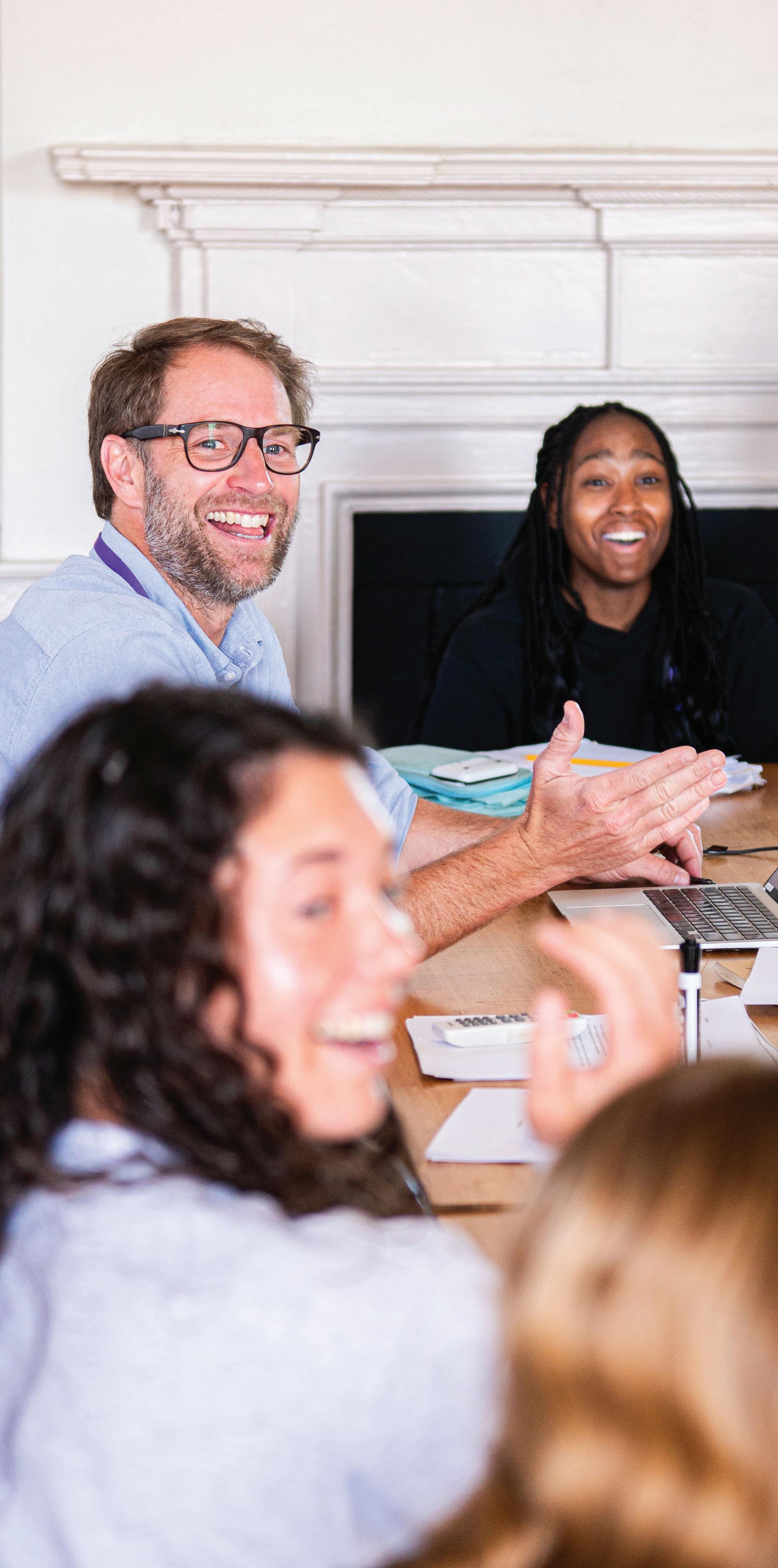
Reinvigorating Harkness Teaching at Ashley Hall Back to the Table
Rooted in discussion-based learning, the Harkness method of teaching transforms the classroom into a space where students take ownership of their ideas, engage in meaningful dialogue, and develop the critical thinking skills necessary for success beyond the school walls. This pedagogical approach aligns seamlessly with Ashley Hall’s commitment to fostering articulate, empowered young women who are unafraid to share their perspectives. This year, faculty had the opportunity to deepen their understanding of Harkness with a special workshop. The session reinvigorated the School’s dedication to student-led learning, reinforcing why Harkness remains a cornerstone of Ashley Hall’s academic philosophy.
The enduring impact of Harkness at Ashley Hall is evident not only in the enthusiasm of its faculty but also in the voices of its students. The teaching method goes beyond academic discussion—it prepares students to navigate the complexities of the world with confidence, empathy, and poise. With Harkness at the heart of its pedagogy, Ashley Hall continues to empower intellectual curiosity, articulate their ideas boldly, and engage in the kind of meaningful discourse that will serve them for a lifetime.
Please enjoy the first-hand recounting of that experience, from Ashley Hall History Department Chair.
PROFESSIONAL DEVELOPMENT REFLECTION,
From the Desk of John Nagler
History Department Chair:
In October of 2024 the Ashley Hall Humanities Department hosted Ralph Sneeden for a day-long Harkness teaching workshop. Ralph taught English at Phillips Exeter Academy for 27 years and was a founding leader of Exeter Humanities Institute (EHI), a popular summer program that draws teachers from around the globe. Ralph is no stranger to Ashley Hall. He first visited in October 2010, co-leading the workshop that initiated the School's embrace of Harkness. In the years since then, several Ashley Hall teachers have attended EHI, while others have moved on or retired. Collectively, English Department Chair Libby Russler, Classics Department Chair Dr. Roscoe Davis, and I felt like it was time for a Harkness refresher, especially in light of the School's renewed commitment to civil discourse during a tumultuous election cycle. We received ample support from Head of School, Anne T. Weston, PhD, ’73 and Assistant Head of School for Teaching and Learning, Naa-Adei Kotey, as well as the School's Board of Trustees, who joined Libby and Roscoe for a Harkness dinner in September.
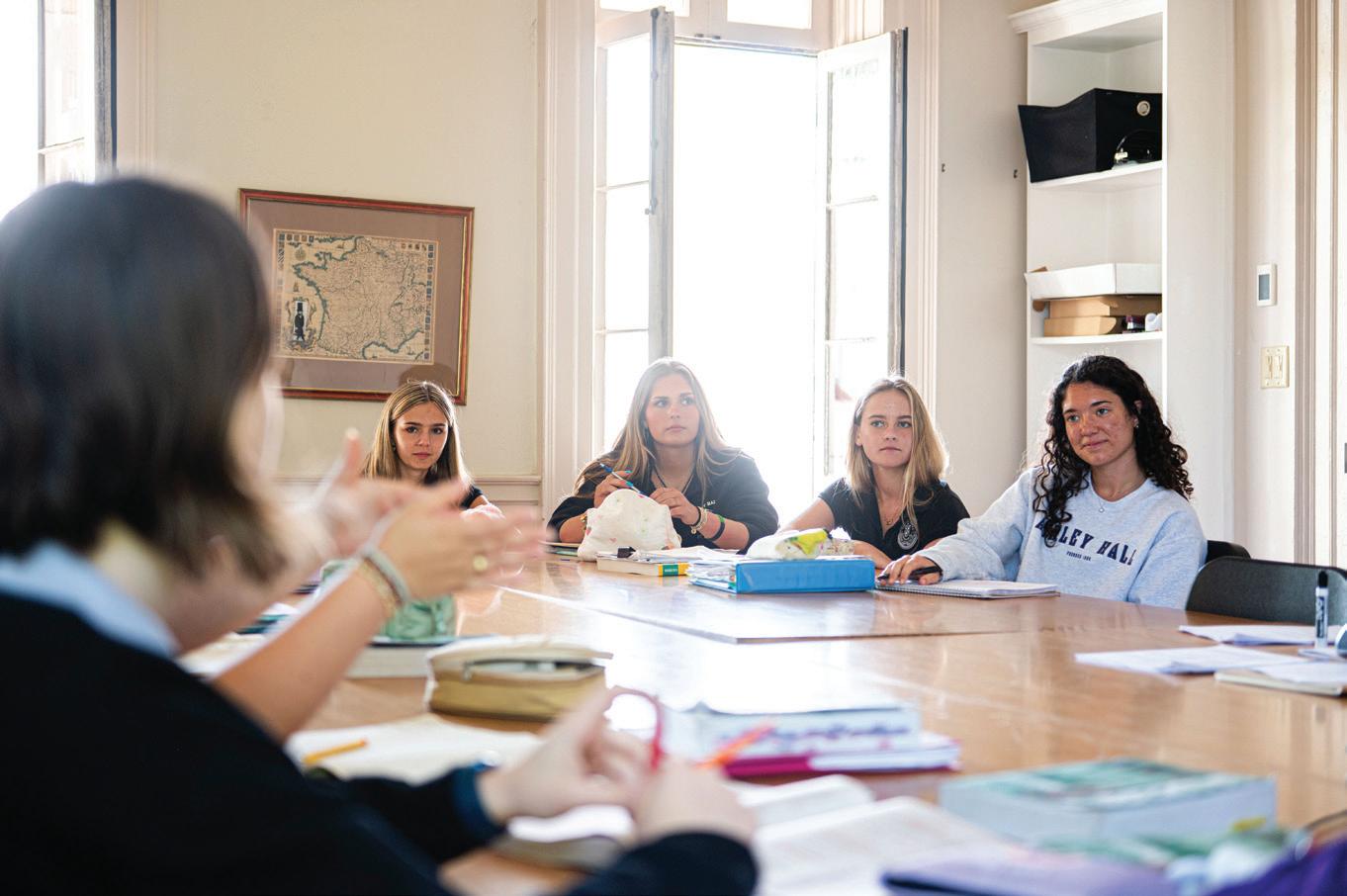
it has the potential to benefit students and teachers everywhere. Throughout the day, we engaged with a range of literature and nonfiction. We took turns leading and observing discussion. As our students are well aware, navigating a reoriented classroom requires effort and practice. Improving Harkness teaching, said Ralph, “is like art, like playing the guitar, like time on the water.”
Pedagogically, the Harkness method is a discussion-based approach that privileges student voice. Instead of always being led through material by a teacher, Harkness encourages students to take the lead, emphasizing collective exploration and understanding. Critically, discussions take place around an oval table. Facing one another, we not only learn content but also–and I think more importantly–learn how to approach content together. The architecture of the table demands we listen carefully, use our voices, and collaborate. The role of the teacher remains essential; however, it shifts more towards a coaching position rather than that of a star player. As a result, the classroom becomes a place of active learning rather than passive absorption.
It's no small wonder that Harkness is a natural fit for an all-girls school and is so popular among Ashley Hall students. The habits and values required by the table are nearly identical to those that the school champions at large. What better way to encourage confidence and independence than by integrating them into our daily teaching? Harkness puts those values into practice by helping each girl find her voice in a supportive and affirming forum.
The faculty Harkness workshop with Ralph was uniquely empowering because we spent the day as students. Despite being held on a holiday weekend, we had homework, and beginning at 8:30 a.m. we jumped right into the discussion. Ralph started by reminding us that Harkness isn't some secret proprietary method that can only be done at Exeter; rather, it’s another approach to student-centered learning that has been studiously practiced there. Having attended EHI twice, I know that Harkness is a pedagogy shared with generosity because
Some of my favorite moments of the day were shared during our lesson debriefs. After discussing a short story and poem, one participant from our group observed that our stories, comments, and affirmations culminated in “high-vibrancy moments,” apparent both in our words and body language. Another liked that “people admitted confusion and asked questions instead of feeling like they always had to offer a prolific comment.” We also enjoyed the fact that “you have to practice eye contact with each other and not just stare at the teacher.” MYP IB Coordinator Sara Lyle noted that openended questions during our history lesson “allowed for individual expression and personal connection." What we experienced, in other words, were those high-vibrancy moments of Harkness magic.
The hardest part of any successful teaching workshop is transferring that magic to class the next day. It’s not easy; luckily, we have a strong Harkness foundation at Ashley Hall that exists primarily in the collective experience of our students. When I asked my Advanced Placement United States History students what made Harkness special, several chimed in at once, momentarily forgetting to take turns in their excitement. They said things such as: “There's comfort in the informality of conversation.” “Everyone is included.” “You're encouraged to disagree, but in a civil way.” “You become more confident as you become more articulate.” One comment left the class in stitches. “Life is a Harkness table!” exclaimed Sallie Dollens ’26. Facetious as that may have been, there is truth to it nonetheless. As the School recognized in 2010, Harkness is superb training for understanding academic subjects and preparing our girls for the complicated, unpredictable world they will face beyond Ashley Hall. “It's definitely not a lecture hall,” quipped another. I would have to agree.
FOLLOWING
WINDS
THE OF PURPOSE
OPEN MINDED T HIN K E RS
CARI N G IN Q U I RING
BALANCED
K N OWLEDGEABLE
PRINCI P L ED
RISK - T A KING
COMMU N I C A TORS
REFLEC T IVE

Ashley Hall and the INTERNATIONAL BACCALAUREATE
At Ashley Hall, our mission to educate girls and young women to become independent, ethically responsible leaders is the foundation of everything we do. Today, that commitment enters an exciting new chapter: Ashley Hall is proud to announce its official authorization as an International Baccalaureate (IB) World School for the Primary Years Programme (PYP), serving students in Lower School, kindergarten through fourth grade.
Earning this prestigious distinction reflects more than two years of intensive preparation, collaboration, and assessment. Led by Lower School faculty member and PYP Coordinator Elizabeth Flowers and supported by our outstanding faculty, students, and families, this achievement showcases the collective dedication to aligning our programs with the highest international standards. The process involved comprehensive faculty training, curriculum development, and a rigorous evaluation by IB assessors, culminating in Ashley Hall’s formal recognition as an IB World School for PYP.
Rooted in inquiry-based learning, critical thinking, and global awareness, the IB framework aligns seamlessly with Ashley Hall’s educational philosophy and builds upon our legacy of rigorous, purpose-driven learning. Through the PYP, our Lower School students are encouraged to ask questions, seek connections, and take ownership of their learning, cultivating the skills and mindset needed to thrive in a rapidly changing world.
Importantly, this milestone is not a culmination but a launching point. As we celebrate our PYP status, Ashley Hall is also setting its sights on the future. This spring, Ashley Hall extended into formal Middle Years Programme (MYP) candidacy, marking the start of another multi-year journey in grades five through eight filled with extensive preparation, collaboration, and assessment. We are excited for the next chapter, further advancing Ashley Hall’s vision of becoming a fully authorized IB World School across all divisions in the coming years.
A Bold Step Forward in Education
With the International Baccalaureate’s globally recognized foundation in studentcentered, inquiry-based learning, Ashley Hall is leaning into a structure that both standardizes and strengthens its already rigorous academic program. At the same time, it powerfully reinforces the School’s longstanding hallmarks. Far from signaling a dramatic shift in teaching or learning, the IB serves as a guide to better organize and elevate what Ashley Hall has always done well. This alignment ensures that students continue to experience the kind of education that encourages them to think deeply, ask meaningful questions, and see the world through multiple perspectives—both mirrors and windows that help them understand their own place within a global context and how they relate to others. Exploration, wonder, and curiosity remain central to the Ashley Hall experience, as we continue cultivating confident, compassionate, and globally minded learners.
The IB approach encourages students of all ages to engage in dialogues with one another, with ideas and subjects, and to find ties and continuity across disciplines. Each program expands on earlier stages, with the divisions intentionally and supportively preparing students for what’s to come as they progress.
The International Baccalaureate consists of three core programs that relate to Ashley Hall:
PRIMARY YEARS PROGRAMME (PYP):
Serving students in kindergarten through fourth grade, the PYP lays the foundation for lifelong learning through inquirydriven exploration, student agency, and the development of conceptual understanding. Students are encouraged to ask questions, and take ownership of their educational journey, cultivating the critical thinking and curiosity that will support future academic growth.
MIDDLE YEARS PROGRAMME (MYP):
Building on the inquiry skills and conceptual blocks of the PYP, the MYP engages middle school students in deeper critical thinking, interdisciplinary exploration, and realworld application of knowledge. Students are challenged to make meaningful correlations across subject areas and to the global context, developing adaptability, collaboration, and resilience as they navigate increasingly complex ideas and issues.
DIPLOMA PROGRAMME (DP): Though this is still a few years away for us, we look forward to the DP as it offers a rigorous, college-preparatory curriculum for high school students. Through independent research, extended writing projects, and in-depth studies across a broad range of subjects, DP students are equipped for success in higher education and empowered to become thoughtful, ethical leaders.
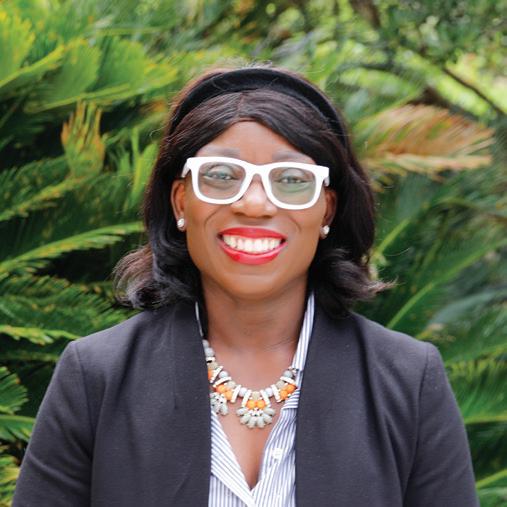
What the IB Means for Ashley Hall
When asked what inspired Ashley Hall’s journey toward International Baccalaureate accreditation, Naa-Adei Kotey, Assistant Head of School for Teaching and Learning, doesn’t hesitate. “Participating in the International Baccalaureate sets Ashley Hall apart— for the education we’re providing our students and for who we are as a school,” she explains. “It offers global connectedness, access to thought leaders around the world, and a bigger-picture perspective for everyone in our community—students, faculty, and administrators alike.” The decision to pursue IB accreditation wasn’t a departure from Ashley Hall’s longstanding mission, but rather a natural next step in advancing it. “The values embedded in IB align beautifully with Ashley Hall and
Although not formally part of the IB continuum, the Ashley Hall Early School plays a critical role in laying the foundation for our students’ future success. Offering a Reggio Emilia-inspired curriculum, the Early School provides our youngest learners with the most natural and effective preparation for an International Baccalaureate learning environment. Through exploration, collaboration, and hands-on engagement, students build the essential skills that will support a seamless transition into the inquiry-driven model of the Lower School and the Primary Years Programme.
The International Baccalaureate emphasizes essential 21st-century skills such as collaboration, adaptability, problem-solving, and critical thinking—qualities that align closely with Ashley Hall’s Learning Spiral and our broader educational philosophy. As we look toward a future shaped by rapidly advancing technology and artificial intelligence, these human-centered skills will be more vital than ever. In a world where change is constant, our students must be equipped with knowledge and the ability to understand context and nuance, and think critically and creatively about the challenges they will face.
our focus on educating ethically responsible, confident young women,” Kotey says.
For Lower School families, the shift to the IB Primary Years Programme (PYP) may feel subtle. “You might not notice an overnight transformation,” Kotey notes, “but you will start to see your children asking more questions, wondering aloud, and making meaningful connections across what they’re learning. That curiosity and ownership of learning—that’s the heart of the IB.”
Ashley Hall’s embrace of the IB program signals both a commitment to academic rigor and a belief in education that prepares students for a connected, complex world. “This is about expanding learning and creating a more globally minded, engaged school community,” Kotey reflects, “and that’s something truly powerful.”
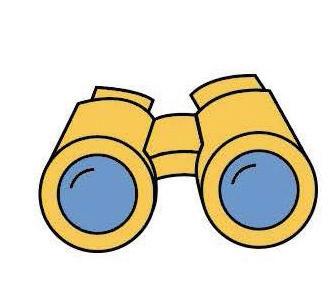
PYP Accreditation: Transforming Learning at Ashley Hall
The 2024–25 academic year marked a transformative milestone for Ashley Hall: the launch of our first full year as an authorized International Baccalaureate (IB) World School for the Primary Years Programme (PYP). Tailored for Lower School students, the PYP reshapes how learning happens by centering curiosity, voice, and exploration. Students are no longer learning simply to retain information; they are encouraged to ask bold questions, seek out answers, and construct understanding through meaningful, real-world engagement.
The difference is tangible. In the past, projects were more limited in scope; geography students might draw a map to meet a set of rubric criteria, present it, and move on to

a different unit of study. Today, learning is more fluid, responsive, and deeply studentdriven. “Now there is more wonder and exploration rather than feeling like there is a preset chunk of information to be learned,” shares Elizabeth Flowers, PYP Coordinator and Lower School faculty member. “In this environment, teachers provide provocations and the learning experience may be brief or quite extensive, but it depends on the students’ interest and level of agency.”
With inquiry at the core, the PYP empowers students to take the lead, explore ideas across disciplines, and build layers of learning as they go. What once might have been a singlestep assignment now evolves over time— shaped by the students' questions, discoveries

A World of Their Own: Fourth Grade Map Project Brings PYP Learning to Life
What began as a simple 2D map assignment quickly evolved into a robust, student-led exploration of culture, geography, and systems thinking. Guided by curiosity and empowered by the principles of the Primary Years Programme (PYP), Ashley Hall fourth graders embarked on a year-long, interdisciplinary journey to design and develop their own fictional countries, each one a vivid expression of inquiry, creativity, and critical thinking.
As the project organically expanded based on their questions and interests, students took ownership of their learning, diving deeper into complex ideas and integrating knowledge across subjects. Their countries featured detailed topographies, natural resources,

agricultural systems, trade routes, histories, and original elements of national identity, including flags (shown above), currencies, anthems, and traditional dances. This imaginative effort went far beyond what has been possible in years past; it was a tangible demonstration of PYP in practice, where each stage of the project development supported student agency, curiosity, and real-world relevance.
Working closely with classroom teachers and faculty in art, music, and dance, students applied a wide array of academic skills to shape their imagined nations. In art class, they created flags using meaningful colors and symbols, and designed currencies to explore economic concepts. In music and dance, they composed anthems and choreographed national dances, enriching their understanding of cultural expression and identity.
Each student produced a carefully scaled map, layered with information on climate zones, ports, borders, and surrounding regions.
in other subjects or even what they encounter outside the classroom. “While still addressing the same standards,” Flowers adds, “teachers are less bound by a set of predetermined learning engagements, and the students are encouraged to explore.”
The PYP approach is inspiring deeper learning and cultivating thinkers, collaborators, and communicators who have the confidence to shape their own educational paths. One standout example of this evolution in action is the Fourth Grade Map Project, a vivid demonstration of how the PYP transforms classroom learning into something far more expansive.


These maps reflected not only geographic knowledge but also an appreciation for how environmental features influence human activity and how communities interact across boundaries.
The Fourth Grade Map Project is a compelling example of learning that transcends traditional subject divisions. It exemplifies the IB Learner Profile in action; students engaging as inquirers, critical thinkers, communicators, and risk-takers. More than just building maps, they are constructing awareness, empathy, and perspective, each an essential tool for navigating a complex and modern world. Fourth Grade student, Emily Dietrich ’33, summed it up well: "This project was really fun! It was a great opportunity to learn about how a country is formed, and we got to be creative, making ours unique to us." Student-driven projects, lines of inquiry, and following connections are what the IB is all about.
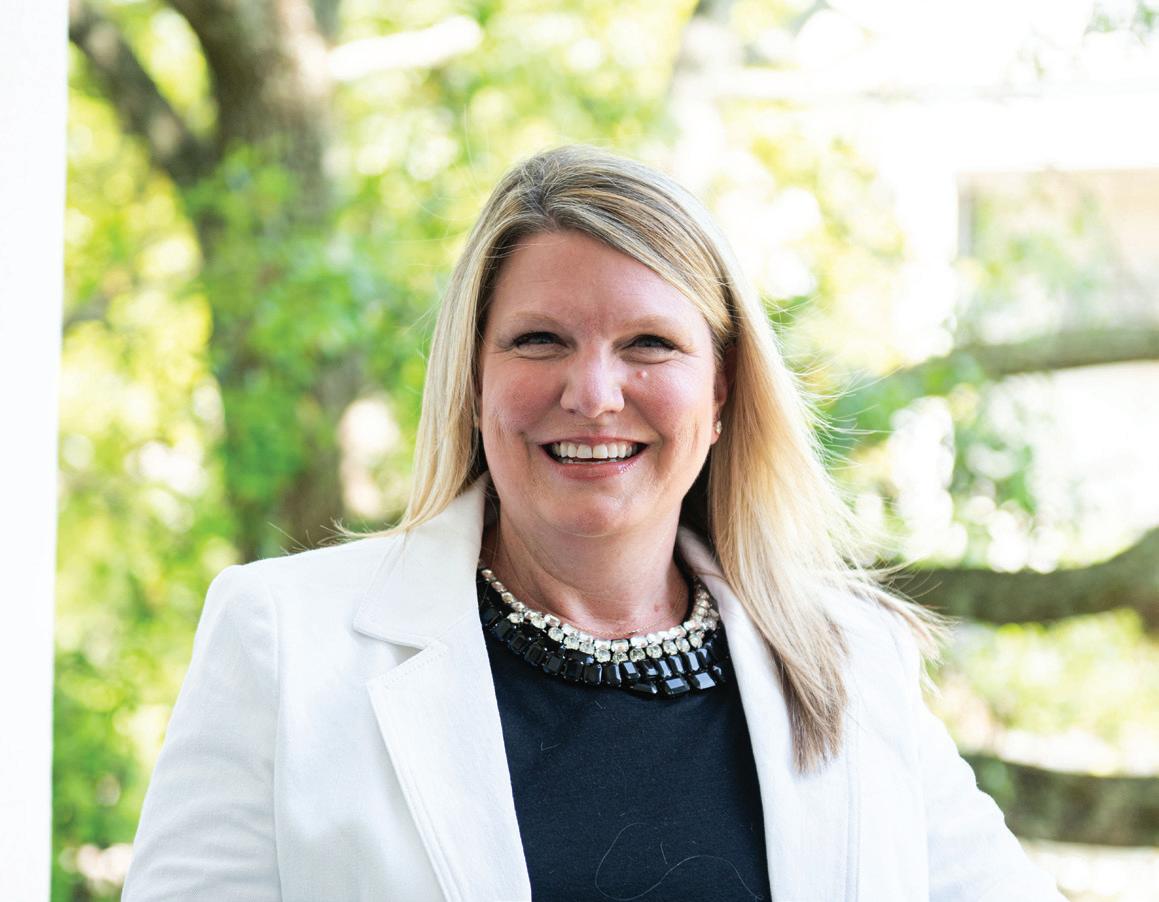
As the Middle Years Programme (MYP) Coordinator, Sara Lyle is leading Ashley Hall’s Middle School into an exciting future grounded in the values of inquiry, reflection, and global-mindedness. As we officially enter the candidacy period for the MYP, Lyle brings 17 years of expertise in the IB education space and wholehearted enthusiasm to the project.
Lyle is passionate about how the MYP will enhance the Middle School experience, offering students a set of structured, yet flexible, guidelines that promote a more profound understanding and real-world application of knowledge. “The MYP adds a powerful lens to what we’re already doing well,” she explains. “It provides a balanced, interdisciplinary curriculum that encourages students to make meaningful ties across subjects, think critically about current events, and consider their role in the world.”
Hadley Alvarez '31 recently shared an example of her experience: “In English class we read The Last Cuentista, a dystopian story where scientists and their children leave home to start
Sara Lyle: Guiding the Next Chapter of IB at Ashley Hall
Ashley Hall’s journey to IB World School authorization is just beginning. The next steps involve a rigorous candidacy period for the Middle Years Programme (MYP) and, ultimately, pursuing the same for the Diploma Programme (DP) in a few years’ time. The MYP will enrich the Middle School experience by fostering deeper inquiry-based learning and critical thinking across disciplines, ensuring students develop the analytical skills needed for future academic success.
a new planet. At the same time we watched a documentary about a refugee crisis, and read a poem about immigration. This helped me see fictional and real world examples of humans moving and migrating, and how that can mean different things. People don’t always know where they will resettle, or what will happen next. The unit helped me develop empathy for people starting a new life and understand how the idea applies to different situations.”
At the heart of the MYP is the holistic development of each learner, a concept that resonates strongly with Ashley Hall’s emphasis on educating the whole girl. Lyle is especially excited to explore the reflective and studentcentered nature of the IB approach. “One of the most exciting components is the focus on student agency—they are active participants in the learning and assessment process. They reflect on their growth, ask questions, and engage with multiple perspectives, cultivating empathy and open-mindedness.” Students are encouraged to recognize learner attributes within themselves and be more self-aware. The shift in focus is already starting to take hold.
As Marilen Hammond '31 recently shared, students “are more aware of the qualities [they] possess and those [they] need to develop to put [their] best foot forward.” Students are also learning to apply the attributes in their lives outside the classroom, “Now we know how to put qualities like ‘principled’ and ‘openminded’ to use!” shared Ella Kindorf ’31 about her experience with the IB curriculum.
With Lyle’s guidance, the launch of the MYP is set to be a transformative moment for Ashley Hall’s Middle School—one that deepens academic engagement while preparing students to navigate an interconnected and ever-changing world. Looking ahead, the DP will allow Upper School students to graduate with both an Ashley Hall diploma and an IB diploma, broadening their collegiate and career prospects. While full authorization for these programs is still a few years away, the prospect of offering a complete IB continuum is an exciting step forward for current and future students.
Ashley Hall’s embrace of the International Baccalaureate is more than just an academic milestone—it’s a reaffirmation of our mission to cultivate independent, intellectually curious, and engaged learners.

As we embark on this exciting journey, we invite students, parents, and the entire Ashley Hall community to explore what IB means for our school and to celebrate the opportunities it brings.
This is just the beginning of a transformative chapter that will position Ashley Hall at the forefront of innovative education for years to come.
Empowering Voices:
The Journey of the Ashley Hall Writing Center
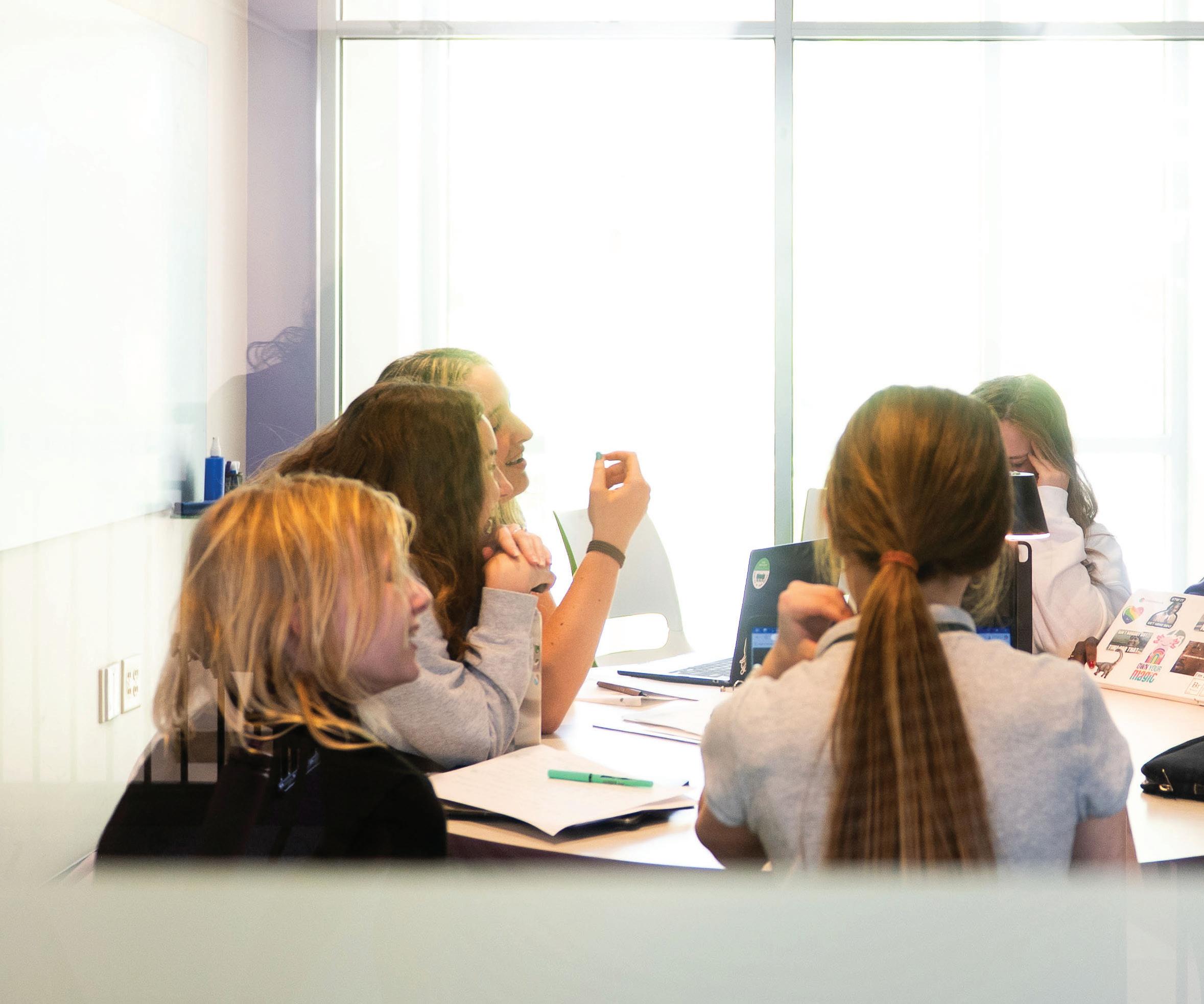
The Upper School Writing Center is a hub of creativity, collaboration, and leadership at Ashley Hall. In less than two years, what began as a small initiative with just two teachers and seven students has transformed into a dynamic, student-led operation with all-day availability and a team of 17 peer consultants. The Writing Center now stands as a model for innovative academic support, embodying the School’s goal of cultivating confident, capable leaders.
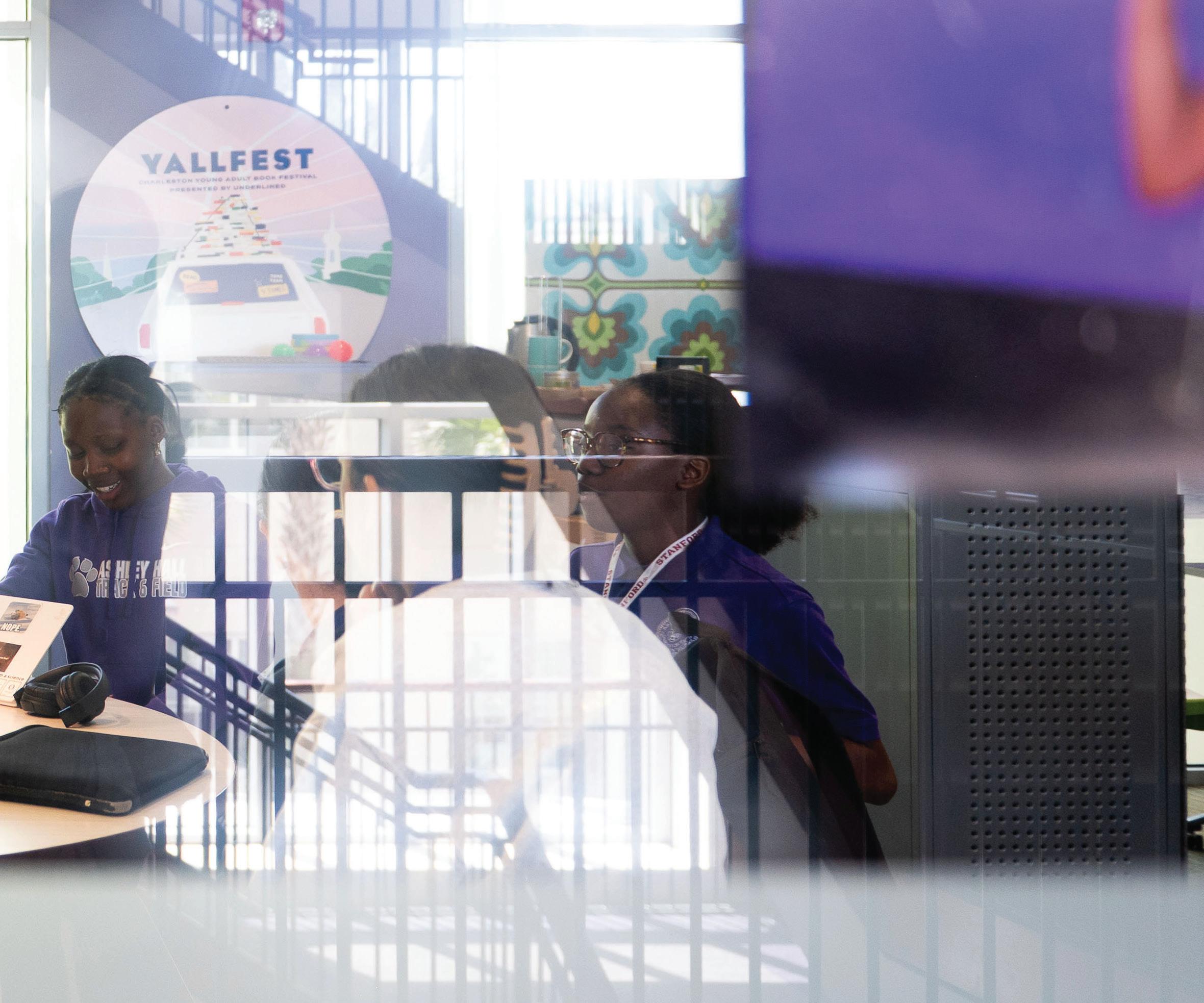
“This team of students is a powerhouse of creativity, discipline, and curiosity, and they embrace risk-taking and challenges of all sorts. They have been model leaders in the Ashley Hall Writing Center since its inception last year; now, they can share their findings and strategies nationally.”
– Chris Hughes
UPPER SCHOOL LIBRARIAN AND WRITING CENTER FACULTY MEMBER
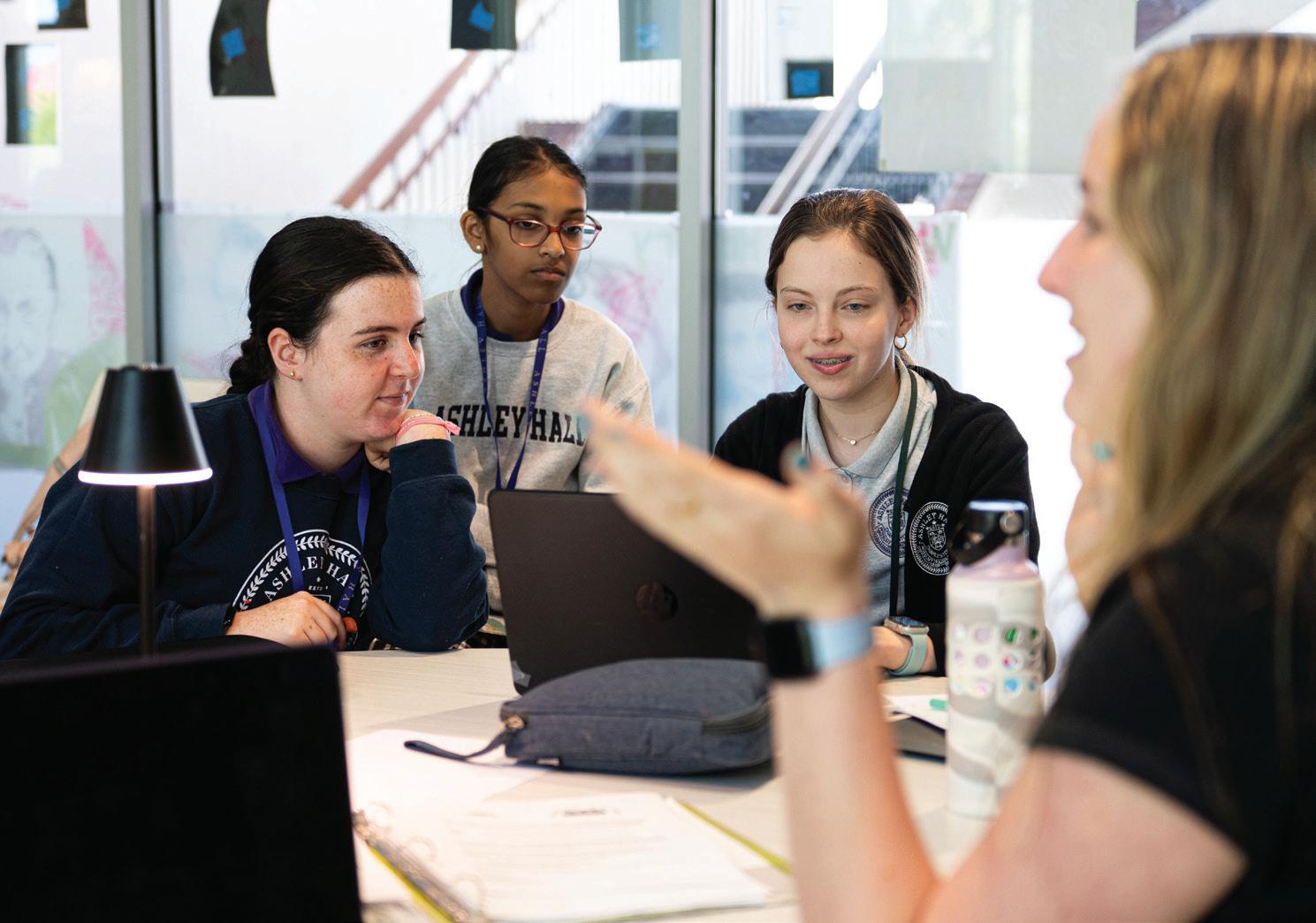
The Writing Center’s remarkable growth has been driven by student leadership from the very beginning. While three faculty members provide valuable support, the students run the show, spearheading initiatives, building community partnerships, and ensuring the Center remains a dynamic, student-centered space. The Center’s leadership team includes:
Charlotte Torrez ’25
DIRECTOR OF LOGISTICS
Miya Brown ’25
DIRECTOR OF TEACHING ASSISTANTS
Sadie Cowan ’25 and Clara Kirchner ’26
DIRECTORS OF DEVELOPMENT
Grace Taylor ’26 and Gemma Williams ’26
DIRECTORS OF MARKETING
Callie Richards ’25
DIRECTOR OF COMMUNICATIONS
Director of Logistics, Torrez, led the facilitation of projects like a Calendly-based scheduling system, an informative website, and a dedicated email contact point, which became operational realities this year. These tools made the Writing Center more accessible and broadened its reach across campus.
In her role, Brown was excited to help shape the Center’s classroom integration efforts. She shared, “I’ve always gravitated toward the humanities, so when I was asked to join the Writing Center—to surround myself with other students who share my love of writing—it was a no-brainer.”
As Director of Communications, Richards ensured that every meeting and initiative was communicated clearly and effectively,
and for her, the Writing Center’s impact goes beyond academic support. “The Center is such a vital part of our School because it provides a place of support and fellowship for all students,” she said, “I loved being able to see how creative our younger students are and to support them in finding sources or transitions or new techniques.”
Cowan, who co-Directed Development, emphasized the community spirit that anchors their work: “The future of the Writing Center is something I think we are all excited for, even if we will not be there to see it. We all agree that the girls involved in this project are some of the most passionate, intelligent, and motivated people who truly strive for greatness. They are dedicated to helping their peers and helping each other, so I can only imagine what’s to come for the Writing Center.”
The leadership of Torrez, Brown, Cowan, and Richards has redefined what it means to run a Writing Center. Their combined efforts have built a space that fosters confidence, creativity, and community—a legacy that will continue to inspire future generations of students at Ashley Hall. “I’m so glad I was able to be a part of this supportive community this past year,” shared Richards. “I’ve loved seeing younger girls find joy in completing their first research projects or excelling in their final essays.”
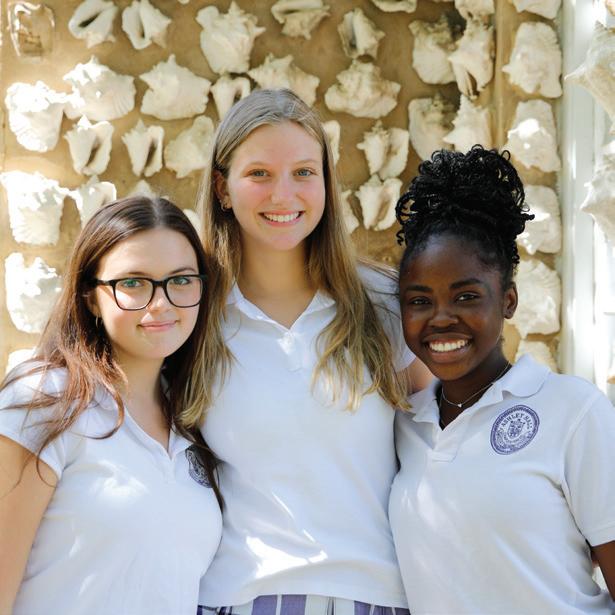
LEADING THE WAY
In March, senior Writing Center Directors Charlotte Torrez ’25 (left), Miya Brown ’25 (right), and Sadie Cowan ’25 (center) took their work from Charleston to the national stage. After crafting a detailed proposal titled The Power of the Pen: Empowering Her to Write Her Story, the trio was invited to present at the 2025 Secondary School Writing Centers Association (SSWCA) Conference at Brigham Young University in Provo, Utah.
Their session highlighted the Ashley Hall Writing Center’s student-led model and holistic approach, emphasizing its transformative impact. “When discussing the topic for our proposal for SSWCA,” Torrez recalls, “we wanted to highlight the unique outreach within the Ashley Hall community. We are proud as Writing Center Directors to educate and empower our community in this special way.”
The directors shared the story of founding and expanding the Center from its modest beginnings to a fully student-run space offering consultations, classroom support, curated resources, and mentorship. They demonstrated how writing centers can evolve into more than just academic support spaces—becoming engines of personal growth and leadership.
Attending and presenting at the SSWCA Conference was a landmark moment for the Writing Center team—congratulations to the students and faculty involved. What’s more, the Writing Center and the students who lead it are still growing. As they continue to forge new paths, their trailblazing work is a testament to the creativity, dedication, and bright future of Ashley Hall writers.
Purposeful Paths
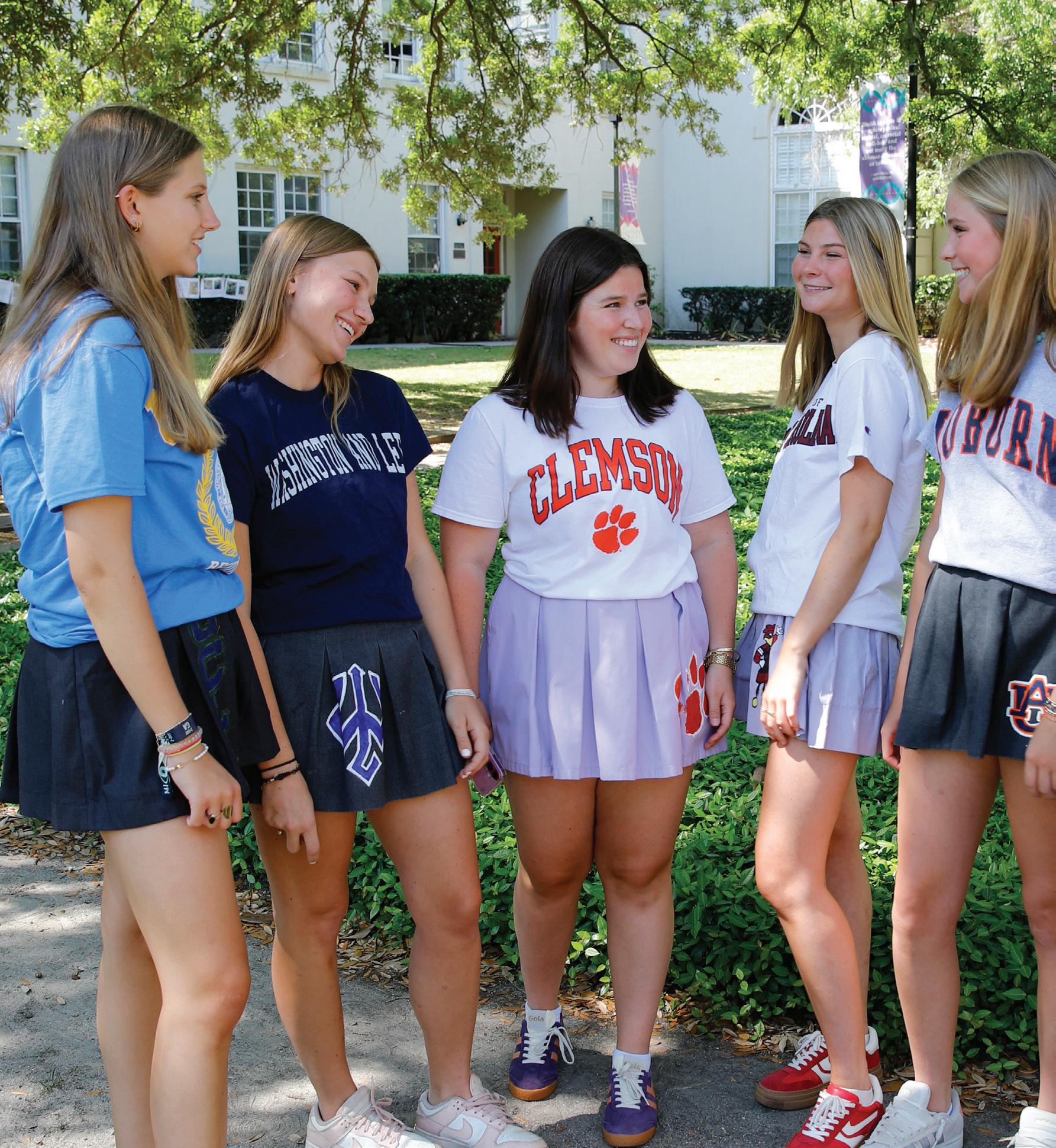
Supporting the College Journey at Ashley Hall
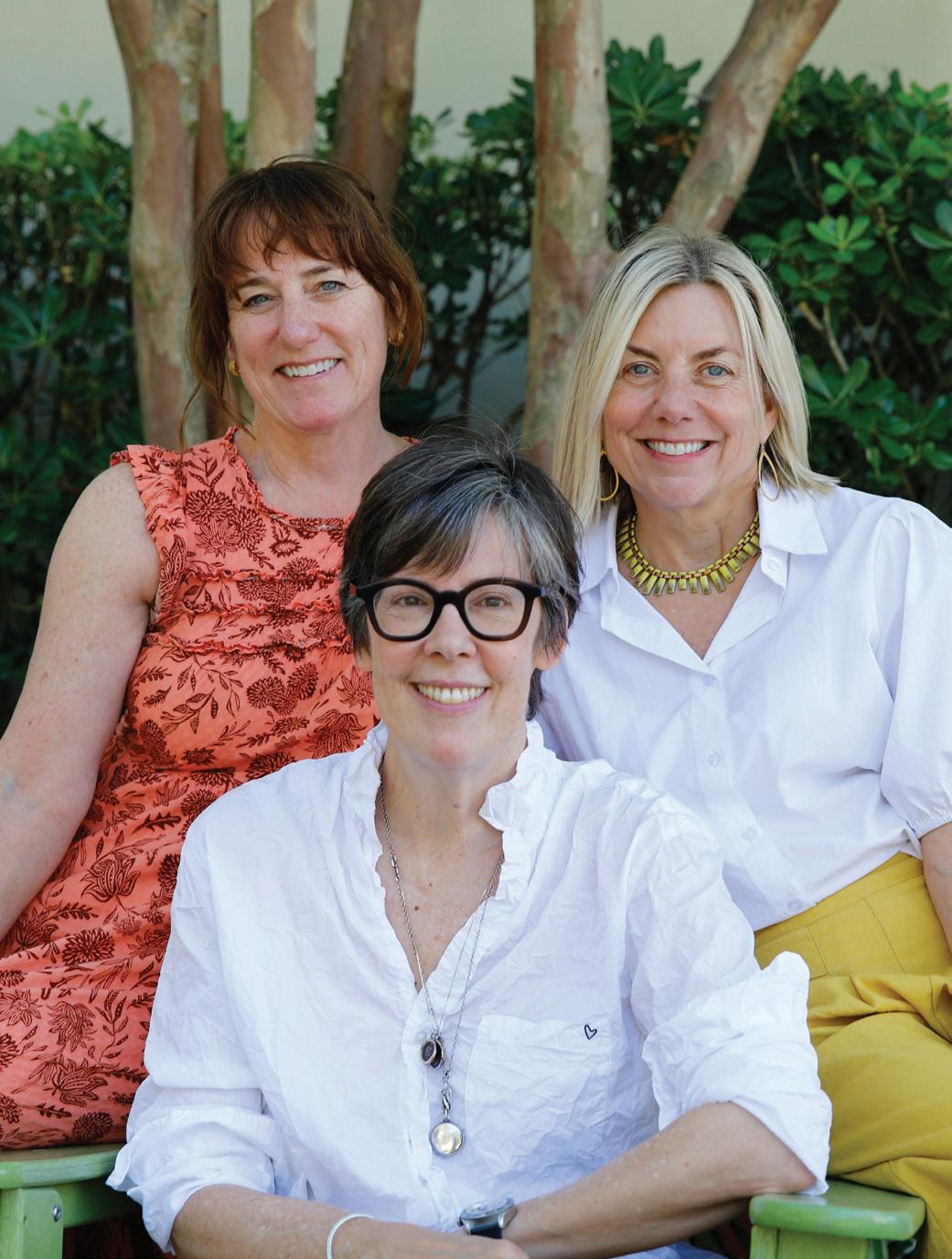
At Ashley Hall, college counseling is a personalized, student-centered journey focused on helping each girl find the college where she will thrive—academically, socially, and emotionally. Guided by Director of College Counseling Amanda Murrell, the process begins as early as ninth grade, emphasizing self-discovery through conversations and exploration. Rather than chasing prestige, the program cultivates confidence, curiosity, and empowerment.
While students are the focus, Amanda Murrell actively involves parents in the college journey, beginning formal meetings as early as eleventh grade. These collaborative sessions foster a shared understanding of student goals and the evolving college landscape. Murrell helps families embrace Ashley Hall’s fit-focused approach, guiding them to support their daughters in a way that honors each student’s individuality and the School’s values.
The hallmark of the Ashley Hall college counseling program is personalization. Murrell works closely with every student, taking the time to get to know them beyond their transcripts and test scores. She understands their personalities, interests, learning styles, and aspirations. This deep understanding allows her to recommend schools that may not have been initially on a student’s radar but offer the kind of environment where they can truly flourish.
This tailored guidance is critical in today’s competitive and often anxietyridden college admissions landscape. Rather than encouraging students to compete for a narrow list of prestigious names, Ashley Hall’s counselors guide students to find post-secondary options that align with their academic goals, personal values, and long-term aspirations. This approach reaffirms Ashley Hall’s belief that success can look different for every student. From Murrel’s perspective, “We measure success by a student's ability to find a sense of purpose after Ashley Hall. We want our graduates to leave here having thought about the things that are important to them, and in turn take advantage of all that college can offer to support their own personal journey.”
By senior year, the college counseling experience becomes more structured through the Senior Seminar, a comprehensive class offered to all grade twelve students. Co-taught by Murrell, Kelly Sumner, Director of Counseling and Upper School Student Life, and Chris Hughes, Upper School Librarian, the class is divided into three sections: college applications, essay writing, and wellness.
Murrell guides students through the basics of the college application process, including deadlines, application portals, recommendation letters, and preparing for interviews. Her goal is to make the process manageable and transparent, ensuring that no student feels lost in the details.
Hughes brings her expertise to the essay-writing component, helping students find their authentic voice and craft personal narratives that truly reflect who they are. As she explains, “I believe every student has a story worth telling—something that sets her apart and gives insight into who she really is. Through one-on-one conversations and reflection, we identify those defining traits and brainstorm how to explore them more deeply. This process not only builds confidence and self-awareness but also lays the foundation for a powerful, authentic personal statement that shows colleges who they are beyond grades and test scores.”
The third innovative and impactful element of the Senior Seminar is the wellness component led by Sumner. Recognizing the emotional toll the college application process can take, Sumner introduces mindfulness practices and encourages students to build routines that support their mental health. From structured moments of reflection to midday walks, the wellness curriculum ensures students have the space to breathe.
The wellness section also addresses the unique emotional dynamics of attending a small, close-knit, all-girls school. Many students find themselves applying to the same colleges as their friends, which can create unspoken tension and competition among them. Sumner creates space to have honest conversations about these feelings, helping students learn how to support one another while also advocating for themselves. As Sumner puts it, “At this point, most of the seniors are in the habit of doing things
for others; meeting teachers’ expectations, improving for coaches, fulfilling responsibilities at home, performing service for local agencies, modeling behaviors for younger students, and encouraging and connecting with others through leadership roles or society memberships. In the Senior Seminar, we want to give them the skills and permission to focus on themselves, to tune in to what they need, and what they will need as they continue on their journeys beyond our gates. Their ability to recognize their own needs, identify feelings and craft new habits and routines that will best serve them is a gift they can continue to give themselves far beyond graduation.”
Ashley Hall’s College Counseling Program is, at its core, about knowing each girl deeply and supporting her as she writes the next chapter of her story. It is personalized in the truest sense: every step, every meeting, every recommendation is crafted with care and purpose, and is unique to each student. The result is more than college acceptances—it’s young women who graduate with clarity, confidence, and a strong sense of self. The program is a testament to the belief that the best college is where each student will truly shine, a journey embraced one girl at a time.
We measure success by a student's ability to find a sense of purpose after Ashley Hall. We want our graduates to leave here having thought about the things that are important to them, and in turn take advantage of all that college can offer to support their own personal journey.”
– Amanda Murrell, DIRECTOR OF COLLEGE COUNSELING
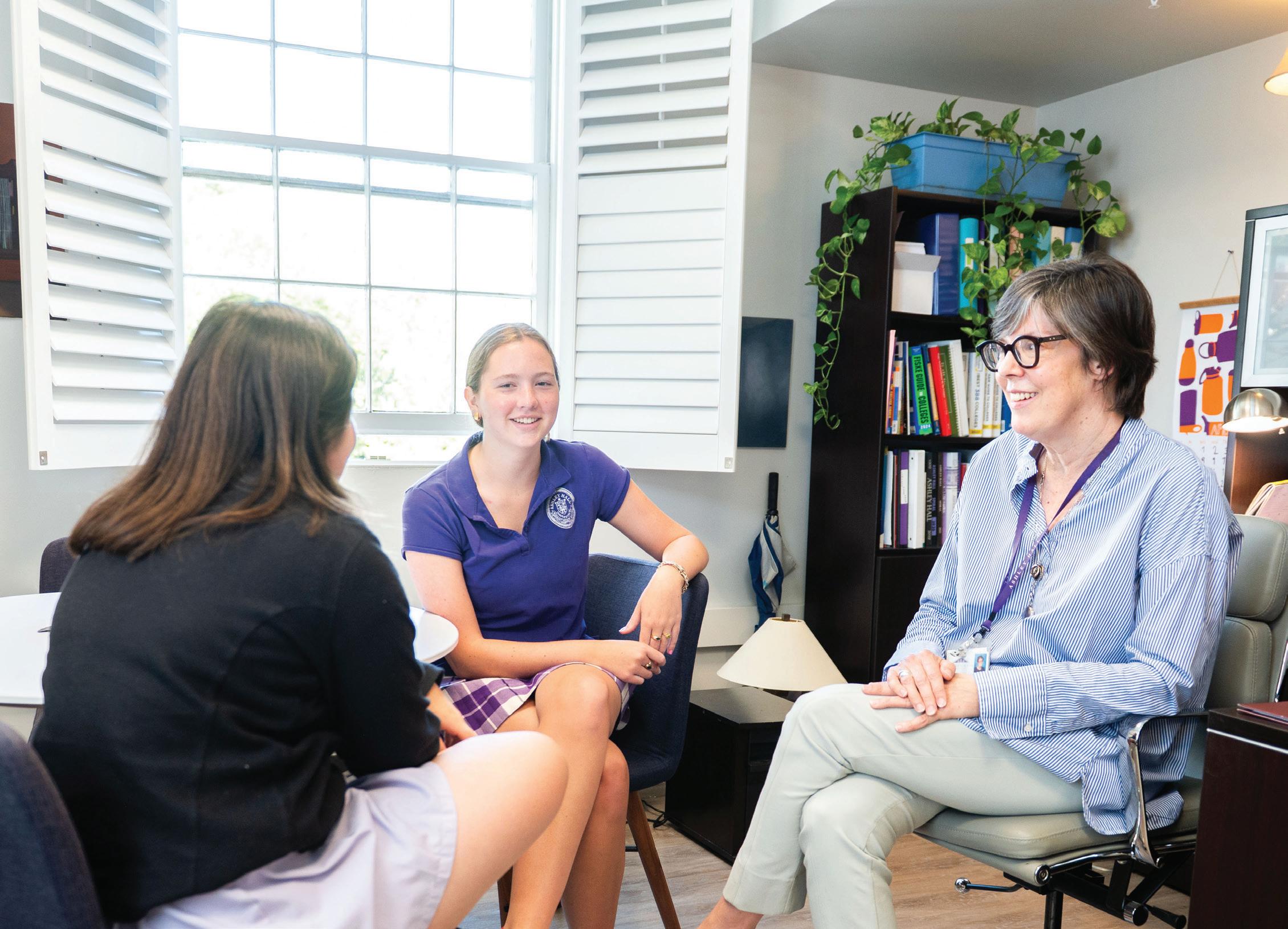
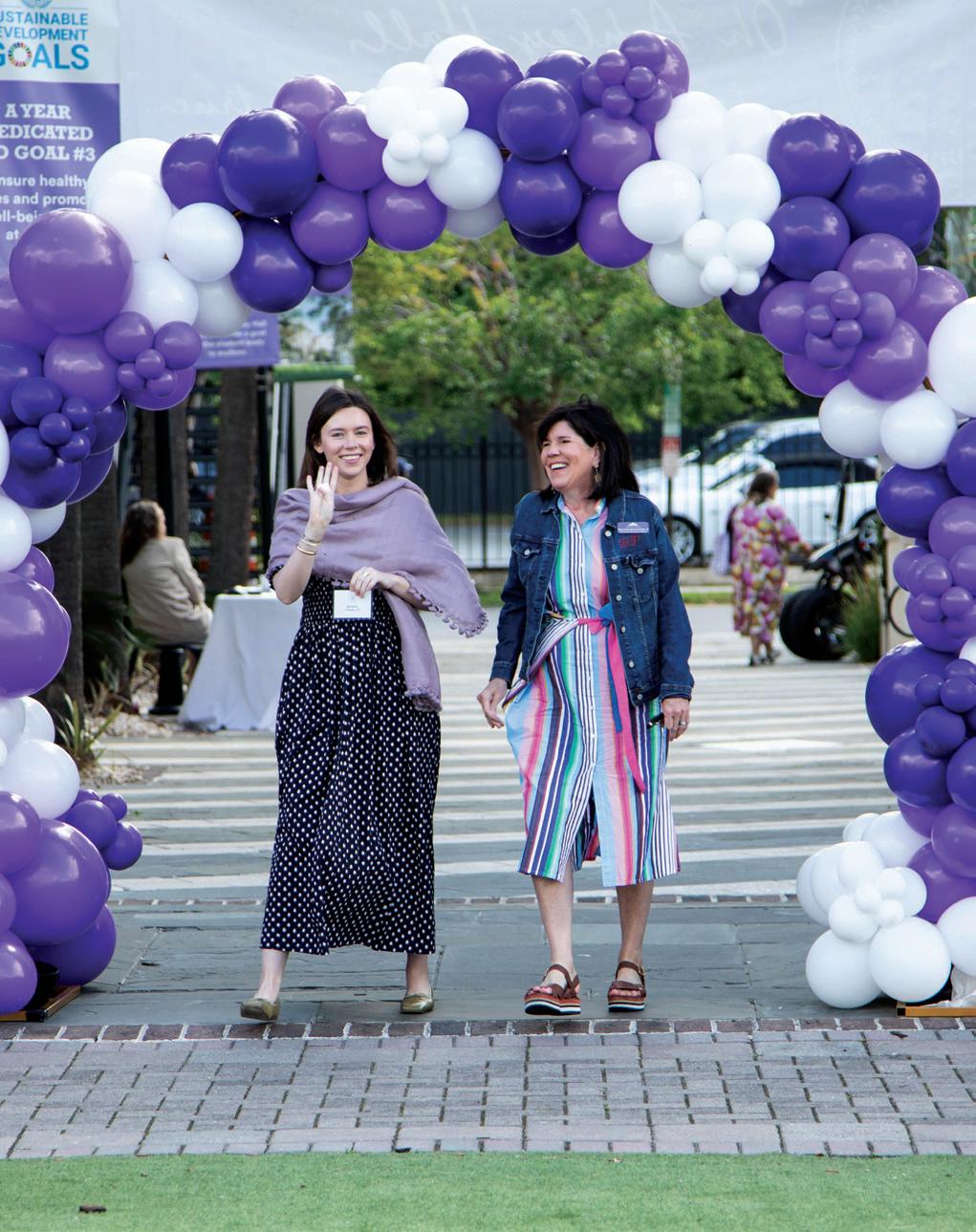
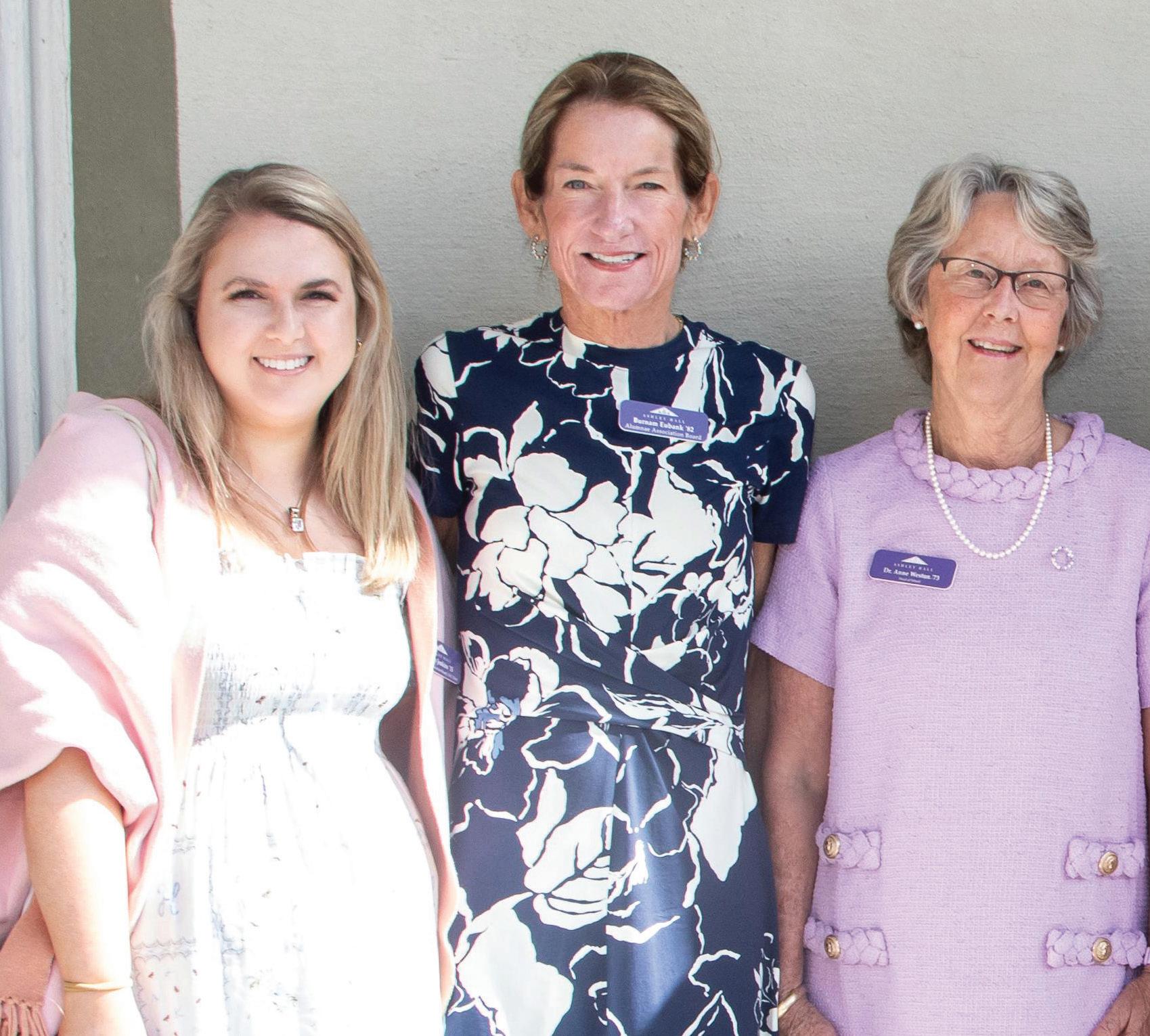
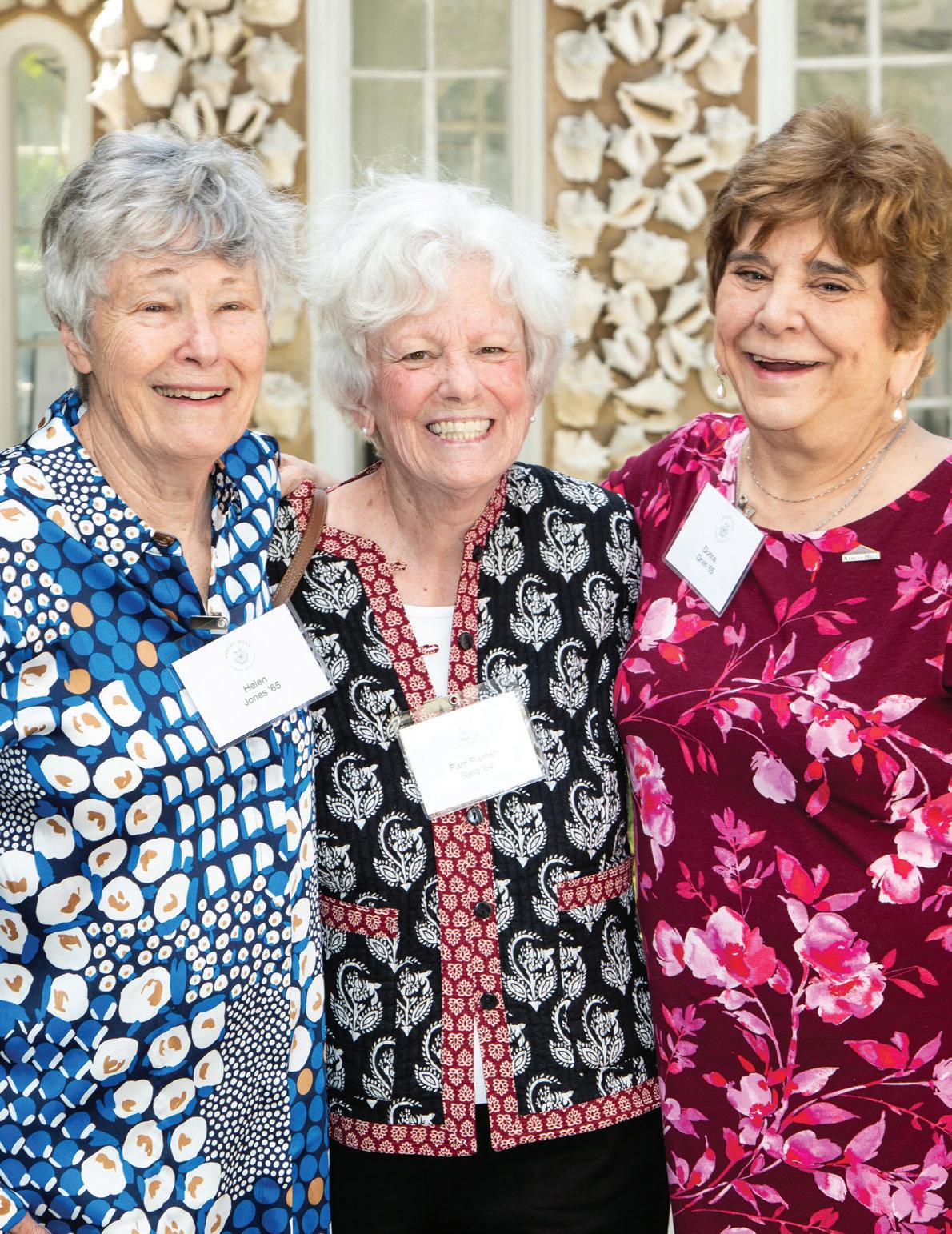
Alumnae WEEKEND
APRIL 11 & 12, 2025
Alumnae Weekend at Ashley Hall was a joyful celebration of connection, tradition, and community. From laughter-filled reunions on campus to lively gatherings held off campus, the weekend was filled with heartfelt moments and cherished memories. Whether reconnecting with classmates or meeting fellow alumnae across generations, the spirit of Ashley Hall was everywhere. Please enjoy the following photos, which capture the warmth, energy, and joy of this special event—proof that no matter how far we roam, Ashley Hall always feels like home.
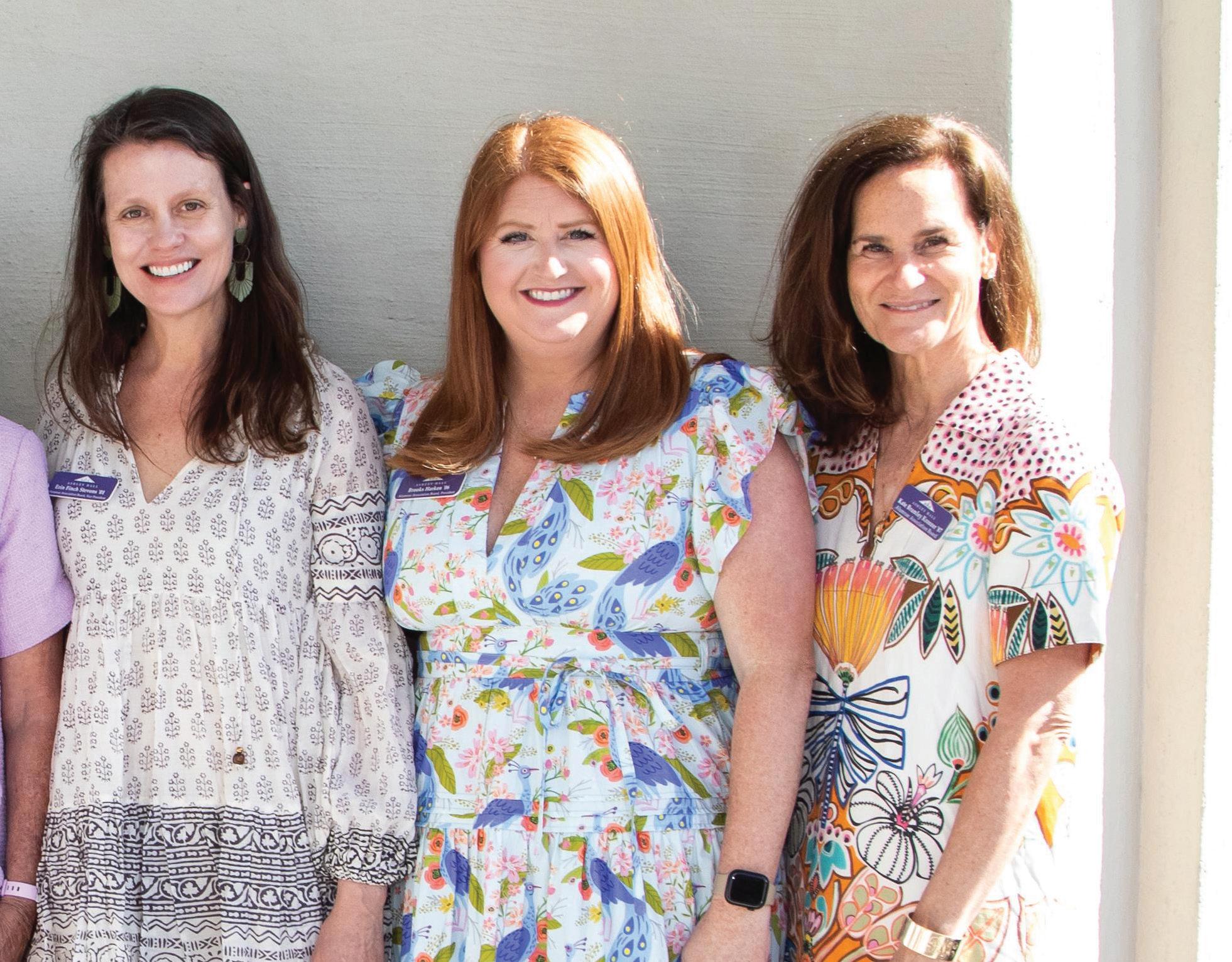
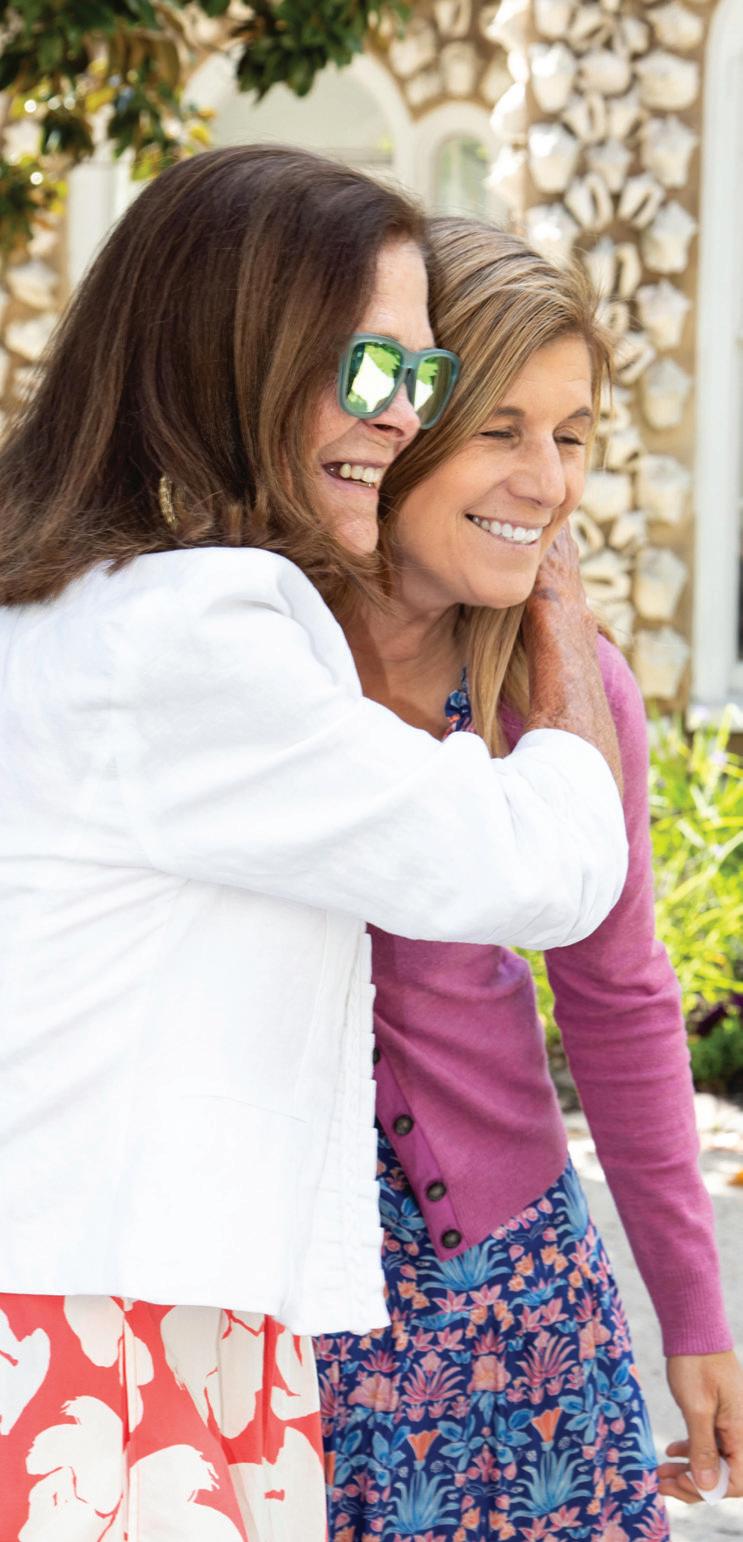
1: Margaret O’Kelley ’20 (left) and Mary Perrin Johnson O’Kelley ’90 (right). 2: Head of School Anne Weston ’73 with members of the Alumnae Association Board (left to right) Cason Jenkins ’15, Burnham Eubank ’82, Erin Finch Stevens ’01, Brooks Harken ’06, and Katie Brumley Kronzer ’87. 3: Members of the Class of 2005. 4: Gail Bailey ’63 and Gaby Brown Andrews ’97. 5: Helen Jones ’65, Pam Parrish Reid ’64, and Donna Orrin ’65. Photos by Tumbleston Photography.
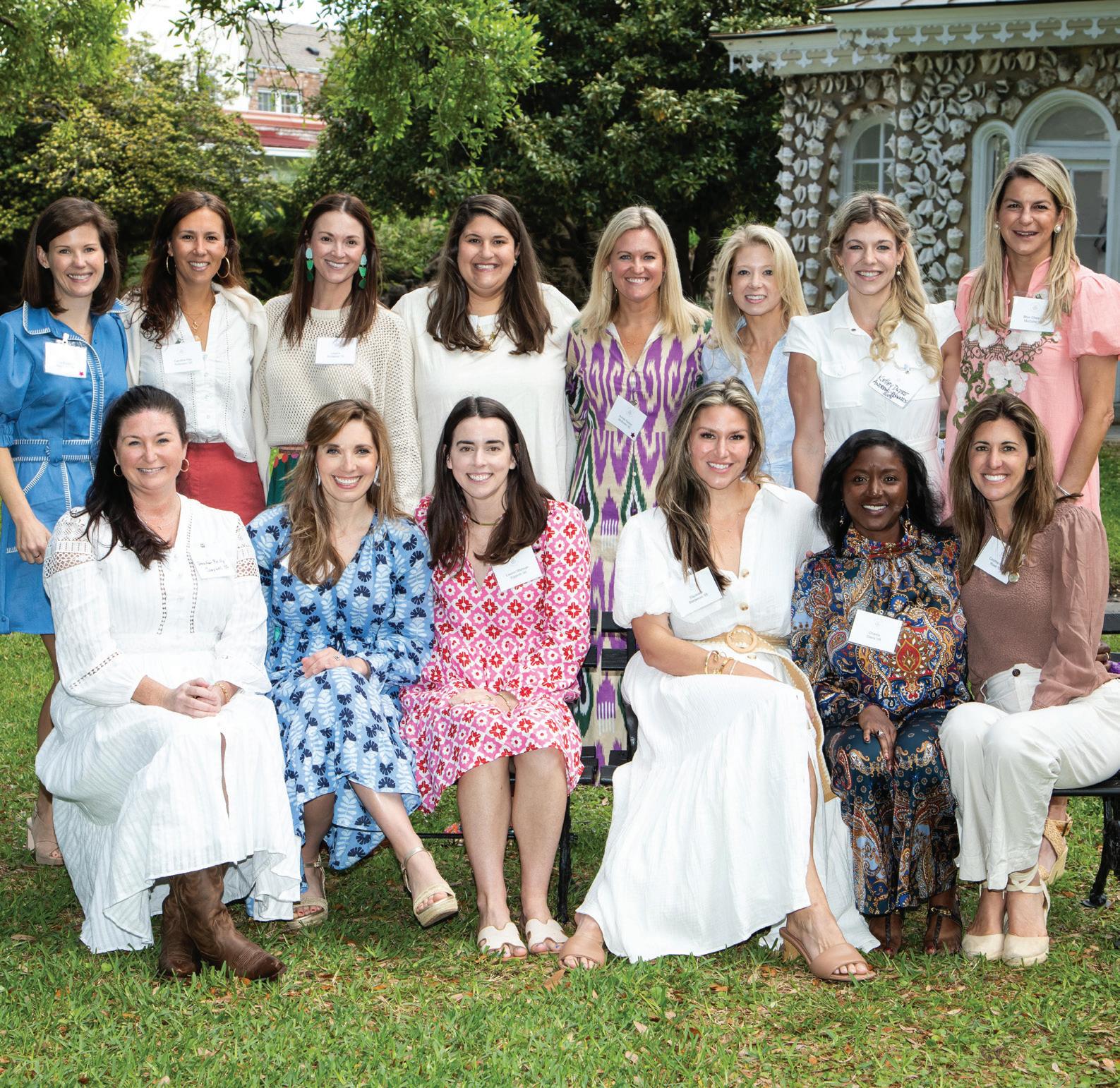
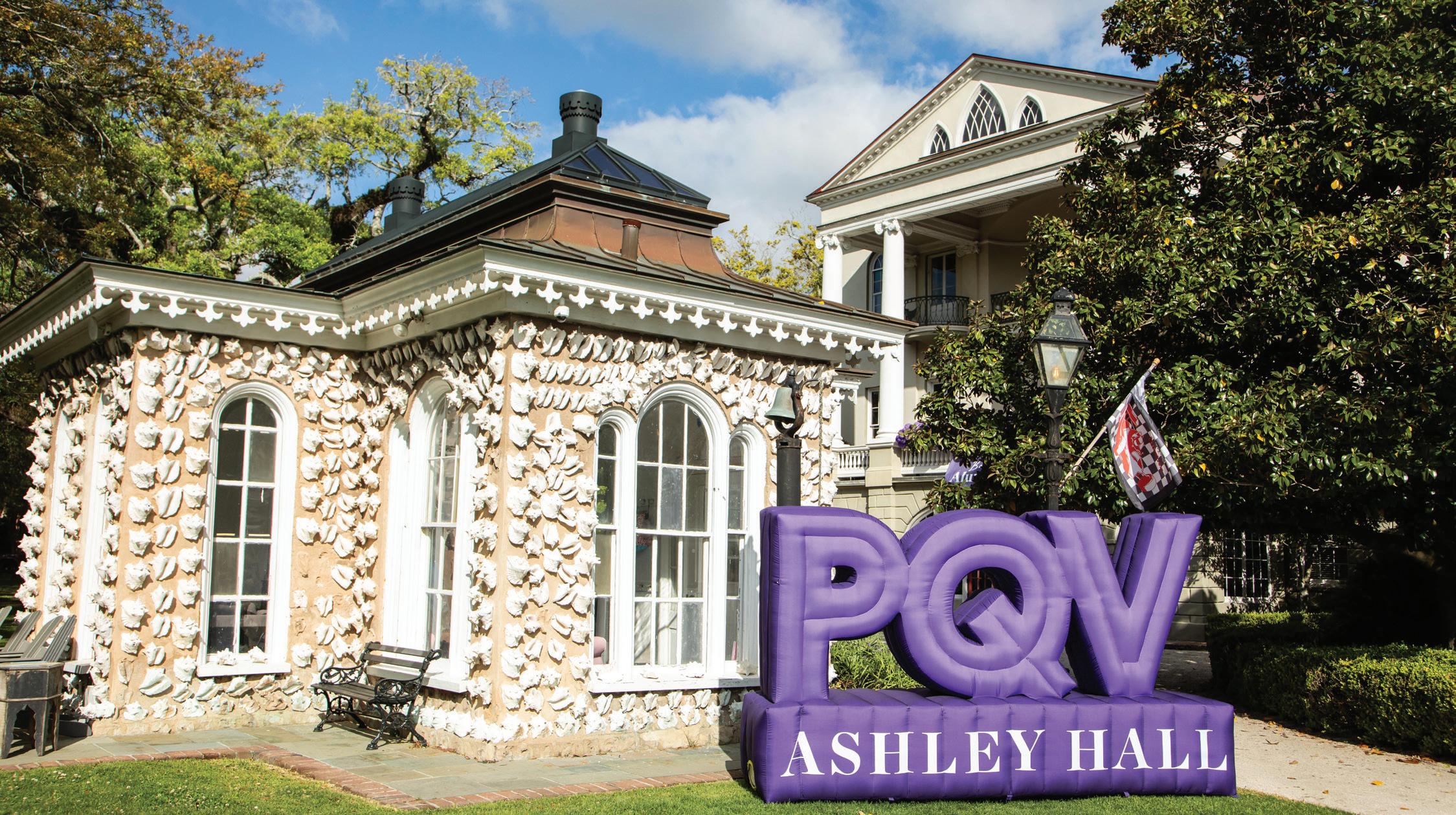
Living the Mission
Ashley Hall’s alumnae are women of purpose, integrity, and impact whose lives reflect the values instilled here. Across generations and around the globe, they lead, create, serve, and inspire, carrying the spirit of Ashley Hall into the world in extraordinary ways. Each year, we are honored to recognize a few of these remarkable women through the Alumnae Association Awards, celebrating their achievements, contributions, and unwavering connection to the School. These awards are a tribute to individual excellence and a joyful reminder of the enduring bond between Ashley Hall and the alumnae who continue to shape its legacy.
Fern Karesh Hurst ’64 Community Service Award | Molly Dingledine ’00
Crandall Close Bowles ’65 Professional Achievement Award | Franny Rivers Slay ’80
Tonisha Bell Alston ’99 Distinguished Young Alumna Award | Lauren Smith ’10
Martha Rivers Ingram ’53 Excellence in the Arts Award | Elizabeth Gouldon Money ’04
Dewar Gordon Homes ’26 Distinguished Alumna Award | Franny Rivers Slay ’80
HONORING Alumnae Award Winners
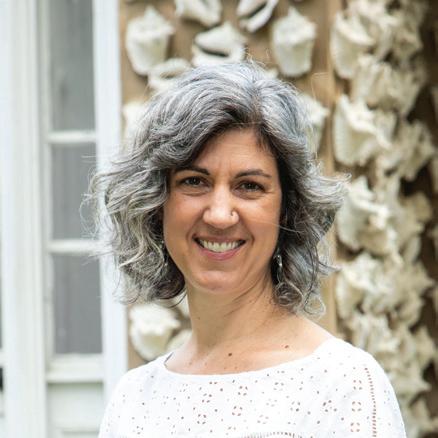
Molly Dingledine ’00: A Life of Purpose and Service
Molly Dingledine ’00 has dedicated her entire career to empowering women and uplifting communities. She founded Sisters in Circles during the COVID-19 pandemic, producing over 5,000 face masks with the help of resettled refugee seamstresses. Proceeds launched Sisters Uganda, a nonprofit supporting women’s health education and economic empowerment. Molly’s impact extends to local disaster relief in Asheville, NC, where she organized clean water efforts during Hurricane Helene. Her compassion, creativity, and leadership reflect the values of Ashley Hall and her belief in the power of women supporting women.
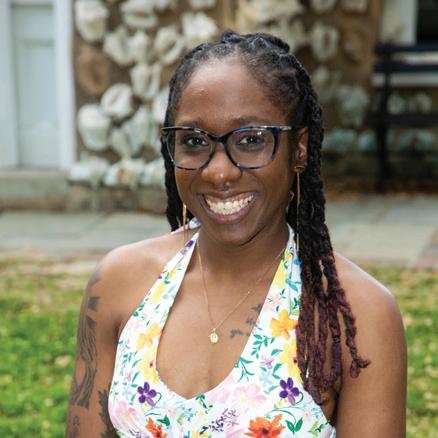
Lauren Smith ’10: Teaching with Heart and Purpose
Lauren Smith ’10 has turned her passion for teaching into a powerful force for change. After earning her master’s degree in elementary education, she moved to New Orleans, where she teaches in an under-resourced school, creating a structured, compassionate classroom despite limited support. Recognized for her impact on student literacy, she also tutors after school to help every child thrive. A dedicated summer educator and leader in programs like Horizons at Ashley Hall, Lauren exemplifies the School’s mission— uplifting young learners through care, resilience, and belief in their potential.
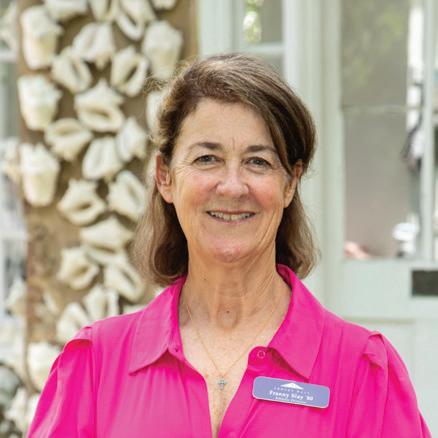
Franny Rivers Slay ’80: A Champion for Girls’ Athletics
Franny Rivers Slay ’80 has been a cornerstone of Ashley Hall Athletics for over four decades. As Head Volleyball Coach, she led her teams to 825 victories and 12 SCISA State Championships, later becoming Athletic Director and overseeing 12 sports programs. Known for her fairness, heart, and mentorship, she builds teams rooted in discipline, resilience, and sportsmanship. Honored as SCISA 3-AAA Coach of the Year and recognized by the South Carolina Senate, Franny’s greatest legacy is the generations of young women she has inspired on and off the court.
Slay was also awarded the Dewar Gordon Homes ’26 Distinguished Alumna Award, honoring an al umna who has demonstrated exceptional dedication, insight, and volunteer service to Ashley Hall.
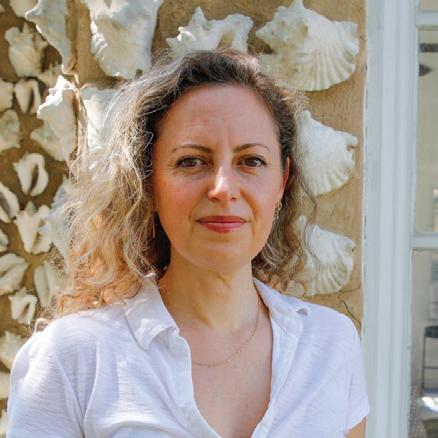
Elizabeth Gouldon Money ’04: Capturing Life Through the Lens
Elizabeth Gouldon Money ’04, an accomplished photographer and filmmaker, co-founded the creative team Sean Money + Elizabeth Fay with her husband. Their evocative work across weddings, fashion, architecture, and portraiture has been widely featured, including photographing several Ashley Hall alumnae weddings. Elizabeth also contributed to Ashley Hall’s Centennial Exhibition design. A cum laude graduate of College of Charleston, she combines technical mastery with authentic storytelling, celebrating connection and emotion in her work.
ASHLEY HALL
Athletic Hall of Fame InductEES
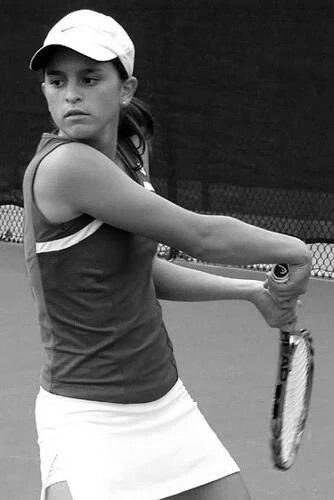
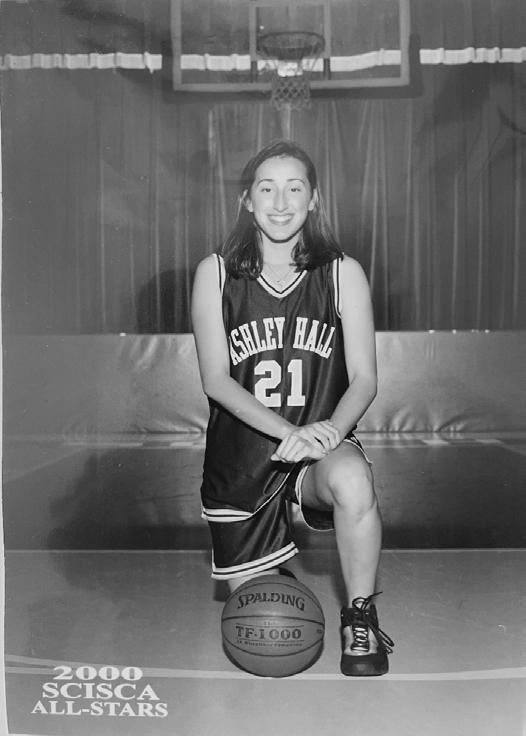


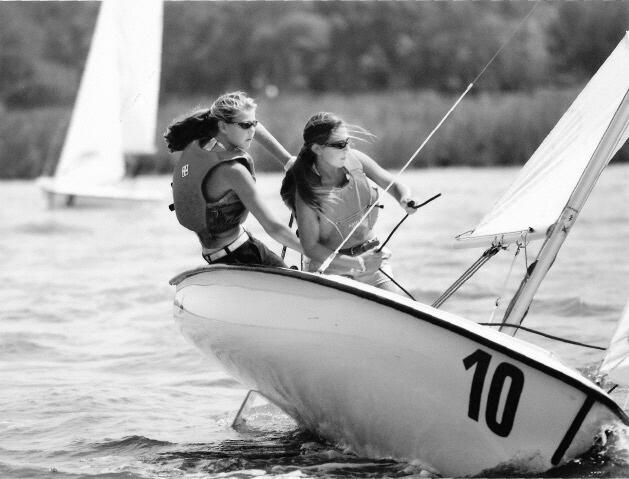
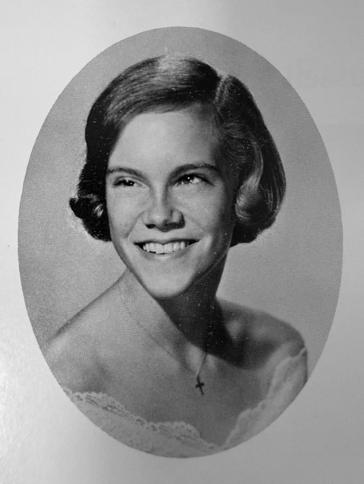


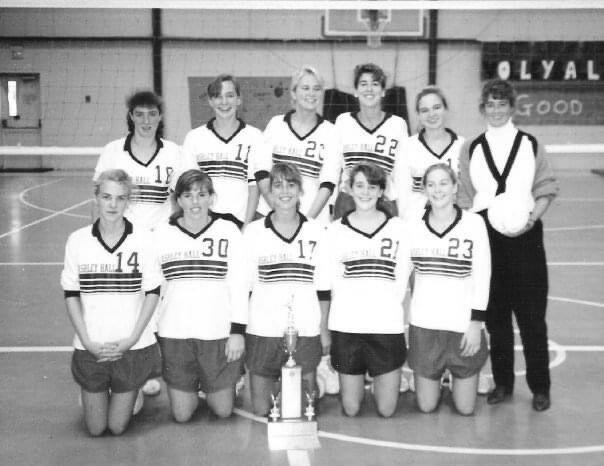

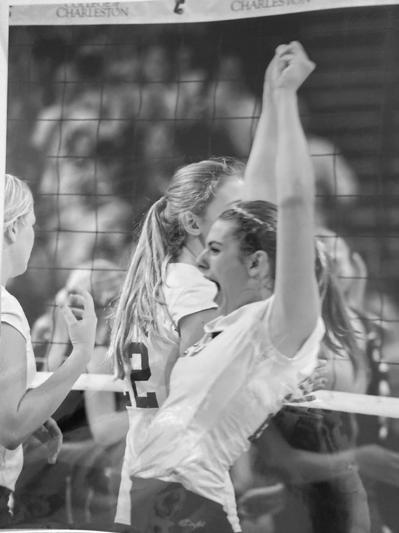

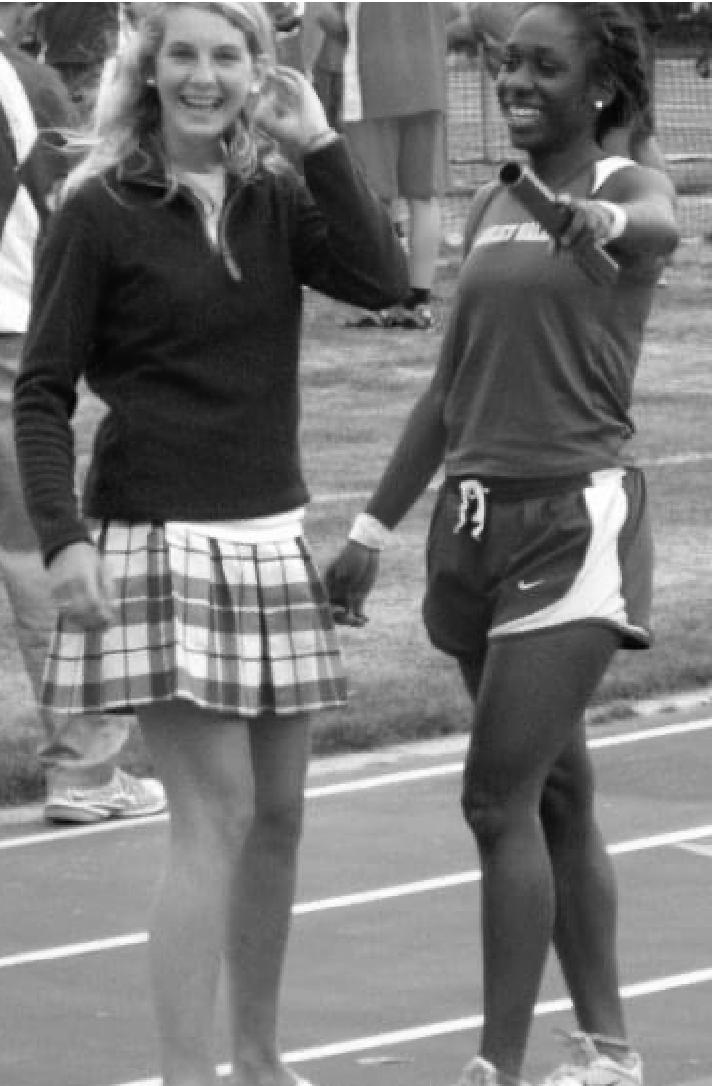
Athletics have long played a vital role in shaping the Ashley Hall experience, building confidence, character, and a deep sense of community. Every five years, we recognize and celebrate a new class of Athletic Hall of Fame honorees— exceptional women whose achievements on the field and beyond continue to inspire. From thrilling performances in Panther purple and white to remarkable achievements in medicine, marketing, education, and beyond, our alumnae show how the resilience, leadership, and determination honed through athletics can empower a lifetime of success and service.
The athletes returned to campus in April to celebrate their accomplishments together, and we invite you to join us in honoring their athletic legacies and the traditions that continue to unite the Ashley Hall athletic family.



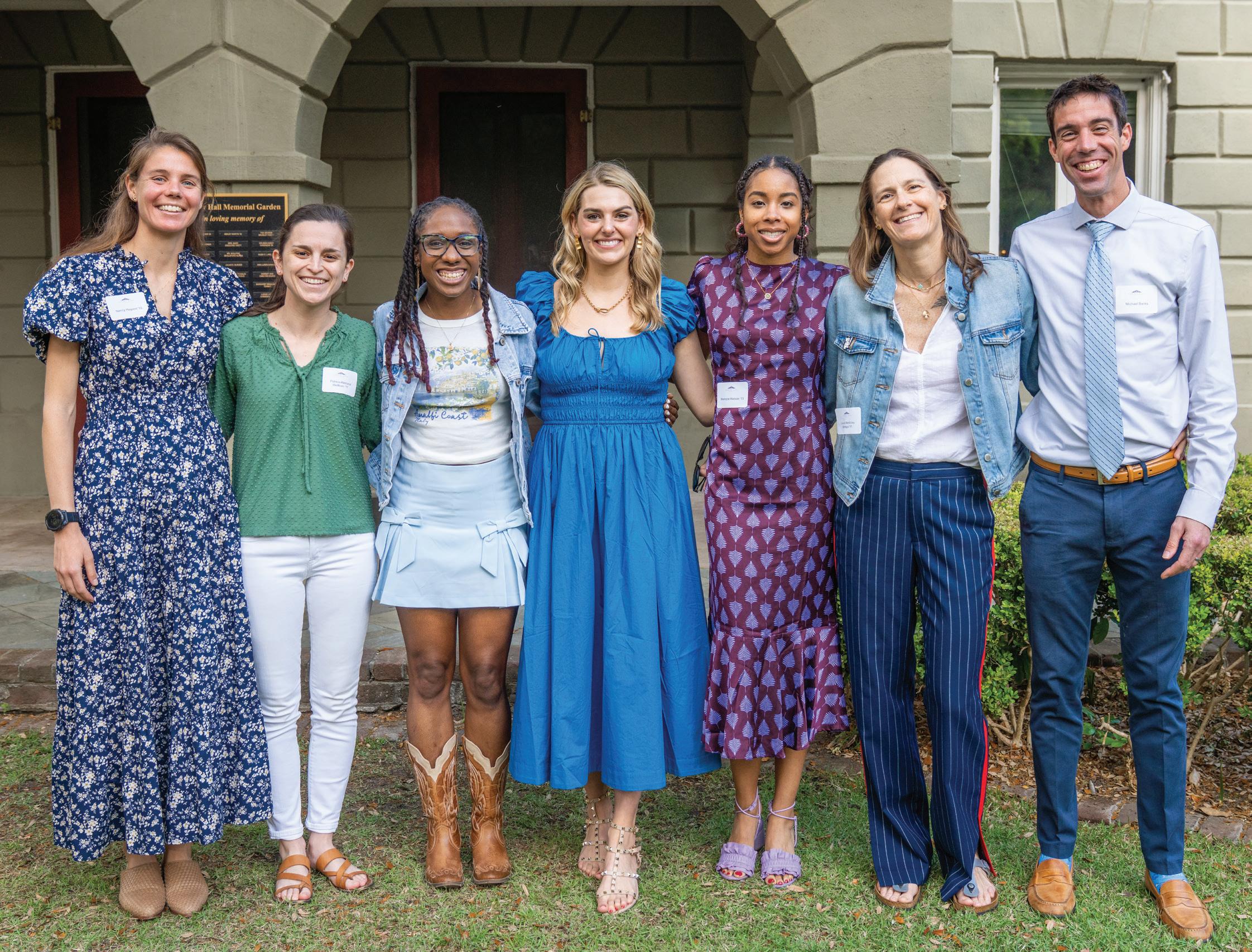
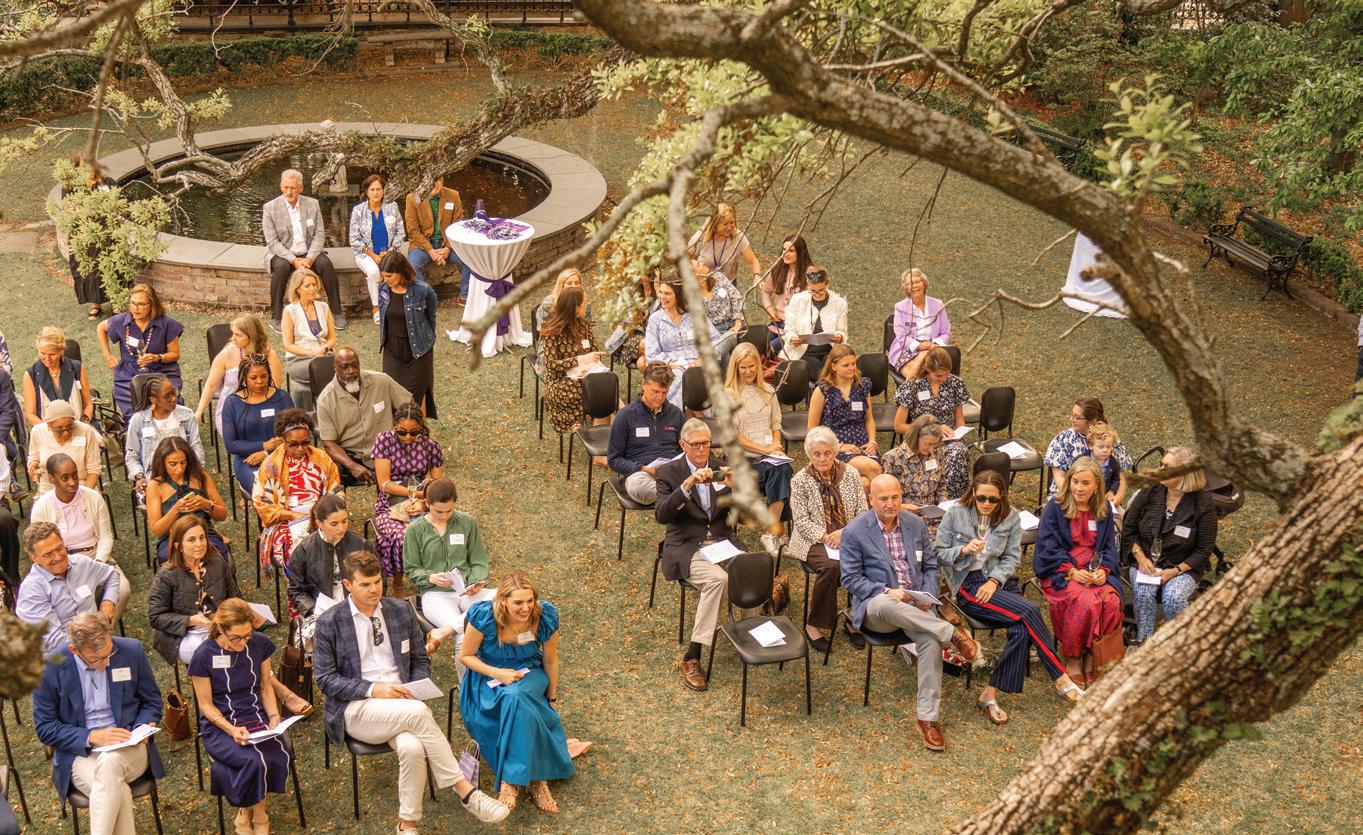
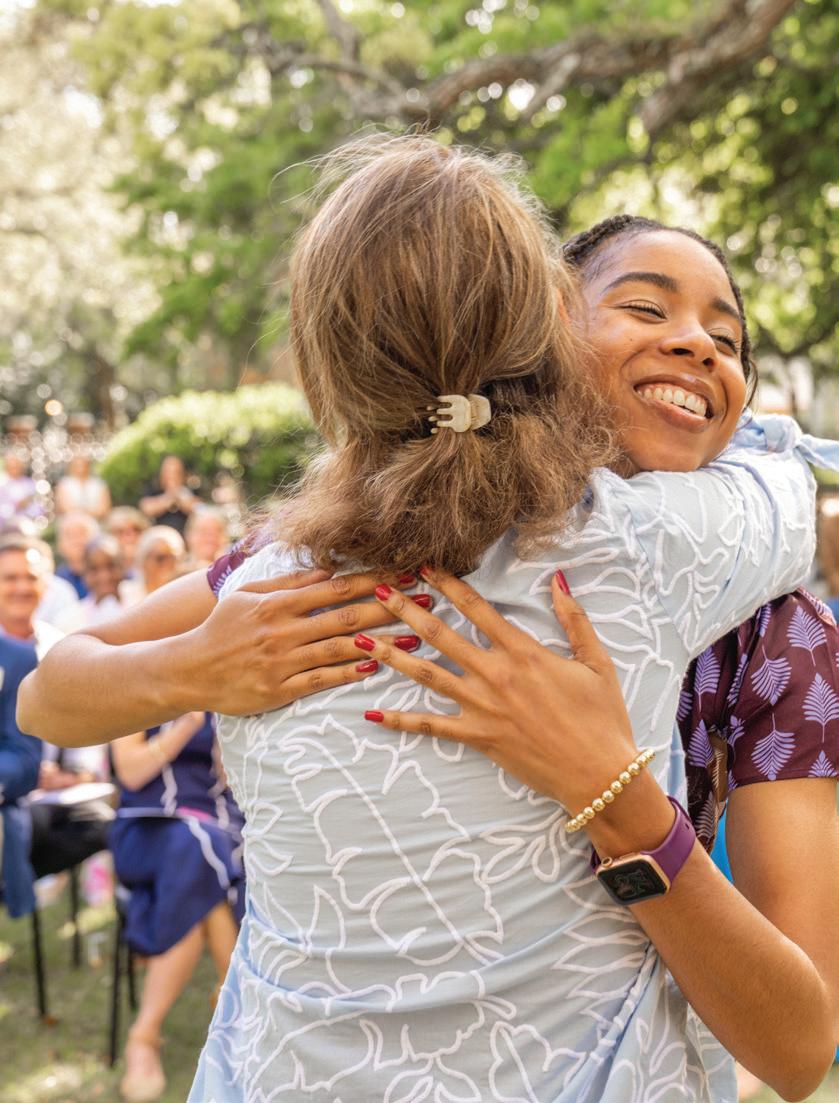
Spring
BY HELEN KOURTIDIS ’26
the sun has eyes that pierce in june, that close as air grows cold. but they begin to open soon, and our world turns to gold.
our winters may be very mild, —a shock is southern snow— but every creature is beguiled when spring sets us aglow
perhaps we always had our leaves, but now they truly shine, and flitting butterflies and bees become a striking sign:
the sun has woken up again and we wish spring would never end
ABOUT THE AUTHOR
When she isn’t crafting stories on the page, Helen Kourtidis ’26 channels her creativity through other artistic pursuits, including piano, theater, and dance. This year, she brought her talents to Ashley Hall’s literary magazine, Cerberus, where she served as Junior Editor-in-Chief. To explore more of Kourtidis’s writing and other student authors’ work, scan the QR code here to access the spring issue of Cerberus.

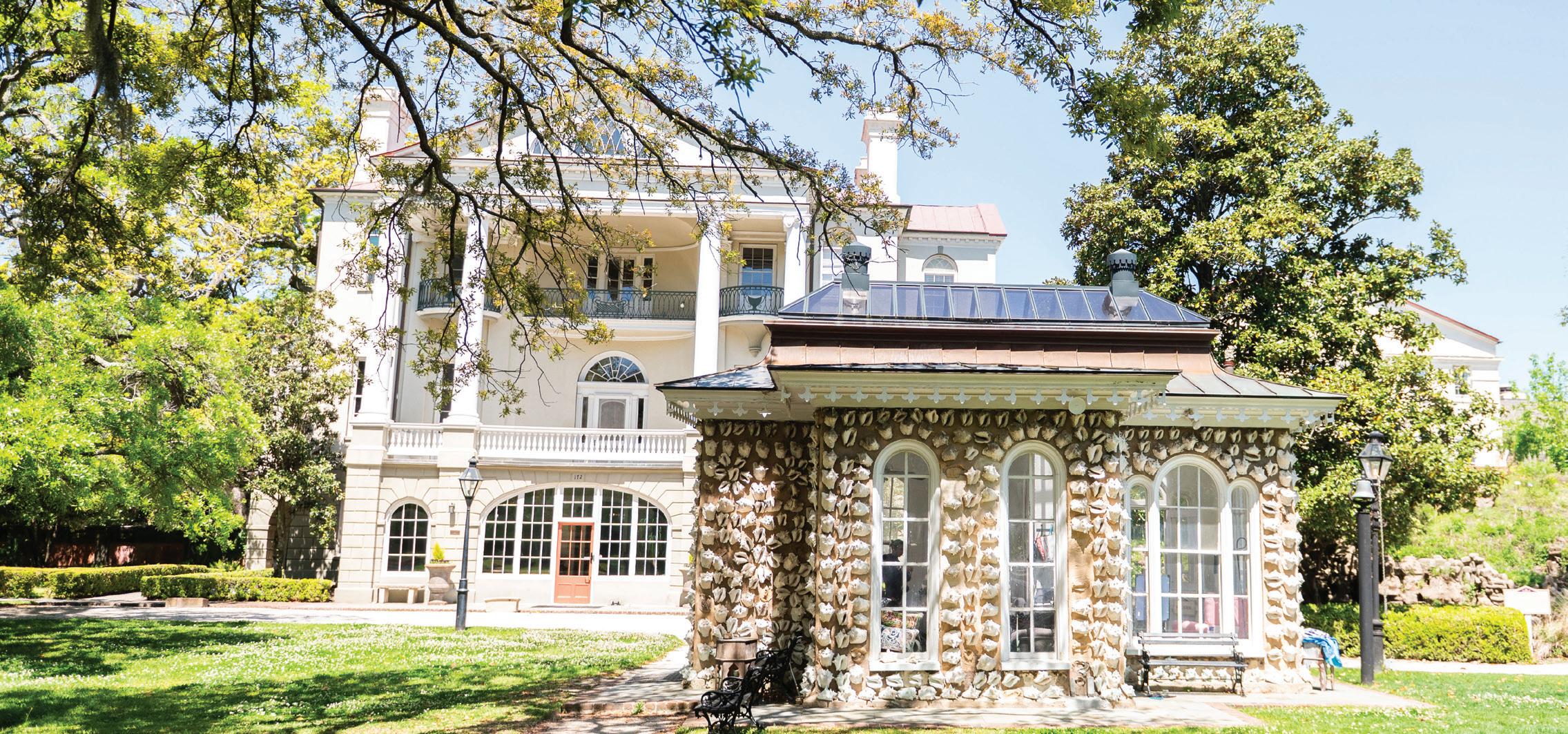
THE M c BEE SOCIETY
The Planned Giving Society at Ashley Hall
Ashley Hall’s founder, Mary Vardrine McBee, exemplified and championed the merits found in a life of valuedbased philanthropy. Today, she is the patroness of the McBee Society, an organization of foresighted and generous donors who have included Ashley Hall in their estate plans. Bequests and other planned gifts have a lasting impact on Ashley Hall and serve as a continuing source of support. The McBee Society has over one hundred members who have made commitments that will positively impact our community for future generations.
Anonymous *
Jennet Robinson Alterman ’70
Dot Porcher Amis ’58
Mary W. Anderson ’68
Marietta Wade Aurand ’41 *
Nella G. Barkley
Katherine ’65 and William Bates
Esther Hoshall Beaumont ’53
Ruth Russell Belding ’43 *
Marguerite McLaughlin Bishop ’49 *
Anne Frances Bleecker ’76
Michele G. Booth
Ann ’70 and John Boyce
Margaret Richards Breeden '52 *
Gene E. Burges ’64 *
Julius E. Burges *
Jean Martschink Buyer ’51 *
Margaret P. Carr ’29 *
Robert S. Carr
Lynda M. Chase ’57*
Helen and Bob* Clement
Debbie Lipman Cochelin ’70
Anne de la Morandiere Cooper ’64 and Thomas Cooper
Ann Bacot ’80 and Belk Daughtridge
Harriett B. Daughtridge ’70
Emmie Aichele Dawson ’70
Ann W. Dibble ’70
Susan Estey Edgerly ’43 *
Evelyn A. Florance *
Nora Alston Flynn ’53 *
Nancy Friday ’51 *
Alice ’61 and Mike * Gaines
Celinda H. Harkness ’59 *
Virginia Clyde Douglass Harper ’47 *
Jane * and T. Fleetwood Hassell
Jane Evatt Hill ’47 *
Laurie Arnold Host ’73
Sally ’61 and Charles Hubbard
Fern Karesh Hurst ’64
Martha Rivers Ingram ’53
Amy E. Jenkins ’82
Joan Ferney Kaselitz '47 *
Elizabeth C. Keith *
Trish and Tommy Kirkland
Croft and Hugh Lane
Ann Brockinton Lee ’70
Daisy Leland *
Barbara Angel Levin ’50
Melissa and Jan Levitan
Elizabeth Rivers Lewine ’54
Margaret and Ian MacDonald
Merlee Ann Madren ’56
Amanda and Roy Maybank
Terry and Luke McBee
Marie Ferrara McGahan ’70
Pam and Pat McKinney
Nancy J. Muller ’71 and Warren Mersereau
Piper Parker Moffatt ’70
Eleanor Hope Moore ’56 *
Jill and Lorenzo Muti
Kathy and Pete Nistad
Frances K. Palmer ’26 *
Caroline Pardue *
Lee ’73 and Rhett Perry
Corinne Neely Pettit *
Karen ’79 and Mark Phillips
Linda Muckenfuss Plunkett ’69
Dale C. Poulnot ’73
Mabel Stowe Query ’39 *
Eva R. Ravenel ’73
Heidi ’74 and Arthur Ravenel
Margaret L. Read ’38 *
Caroline H. Ragsdale Reutter ’70 *
Jenny and Jerry Reves
Shannon Reynolds
Sally ’66 and Edmund Rhett
Artie Richards
Ms. Keith C. Richardson
M. Ann Riopel ’87
John M. Rivers, Jr.
Mary Moore Roberson ’57 *
Cliff P. Robertson *
Judy Webber Ross ’53
Bobbie Gail ’54 and Herb* Rothschild
Katherine B. Salmons ’71
Iona and Paul* Sanders
Beverly Ann ’54 and John Settle *
Lindsay Lyman Skelton ’00
Mary Mahony Smith ’37 *
Mindy J. Spar ’80
Laurel Gale Stewart ’50
Shana and Bobby Stockton
Martha and Will* Story
Virginia and Thomas Thorne *
Thomas E. Thornhill *
Rhoda Treherne-Thomas ’44 *
Anne Thornhill Weston ’73
Alice and Mike White
Elizabeth R. Williams ’45 *
Elizabeth S. Williams ’34 *
Margaret A. Williams ’34 *
Porter Williams, Jr. *
Caroline M. Williamson ’70
Martha Mohl Wolf ’56
Beautsie ’63 and Fred* Zahrn
Barbara and J. Conrad Zimmerman, Jr.
Elephare Dwelle Zimmerman ’40 *
*deceased
For more information about including Ashley Hall in your estate plans, please contact the Ashley Hall Office of Institutional Advancement at (843) 965-8480 or Laura Jordan at jordanl@ashleyhall.org.
CONGRATULATIONS
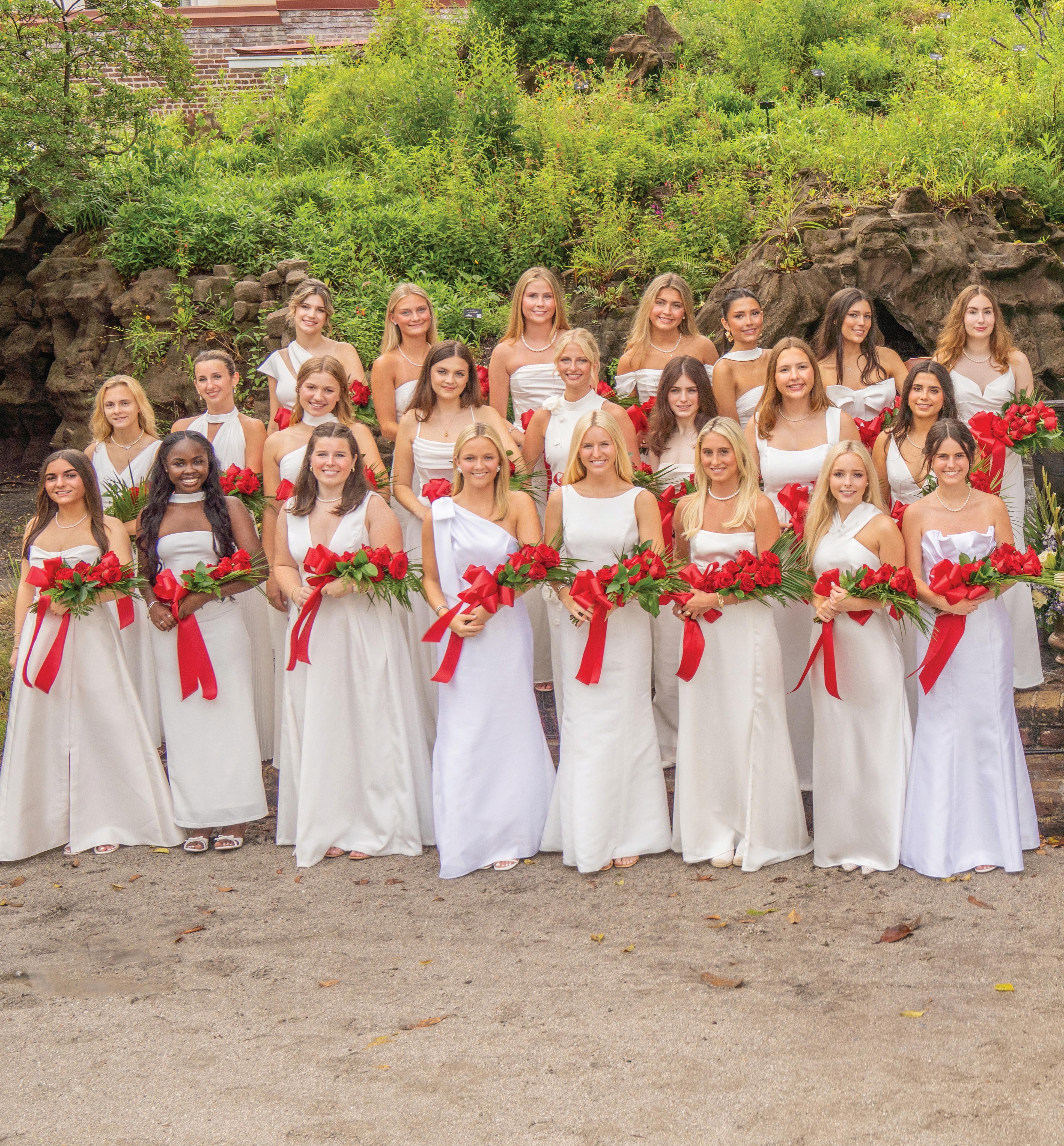
CONGRATULATIONS
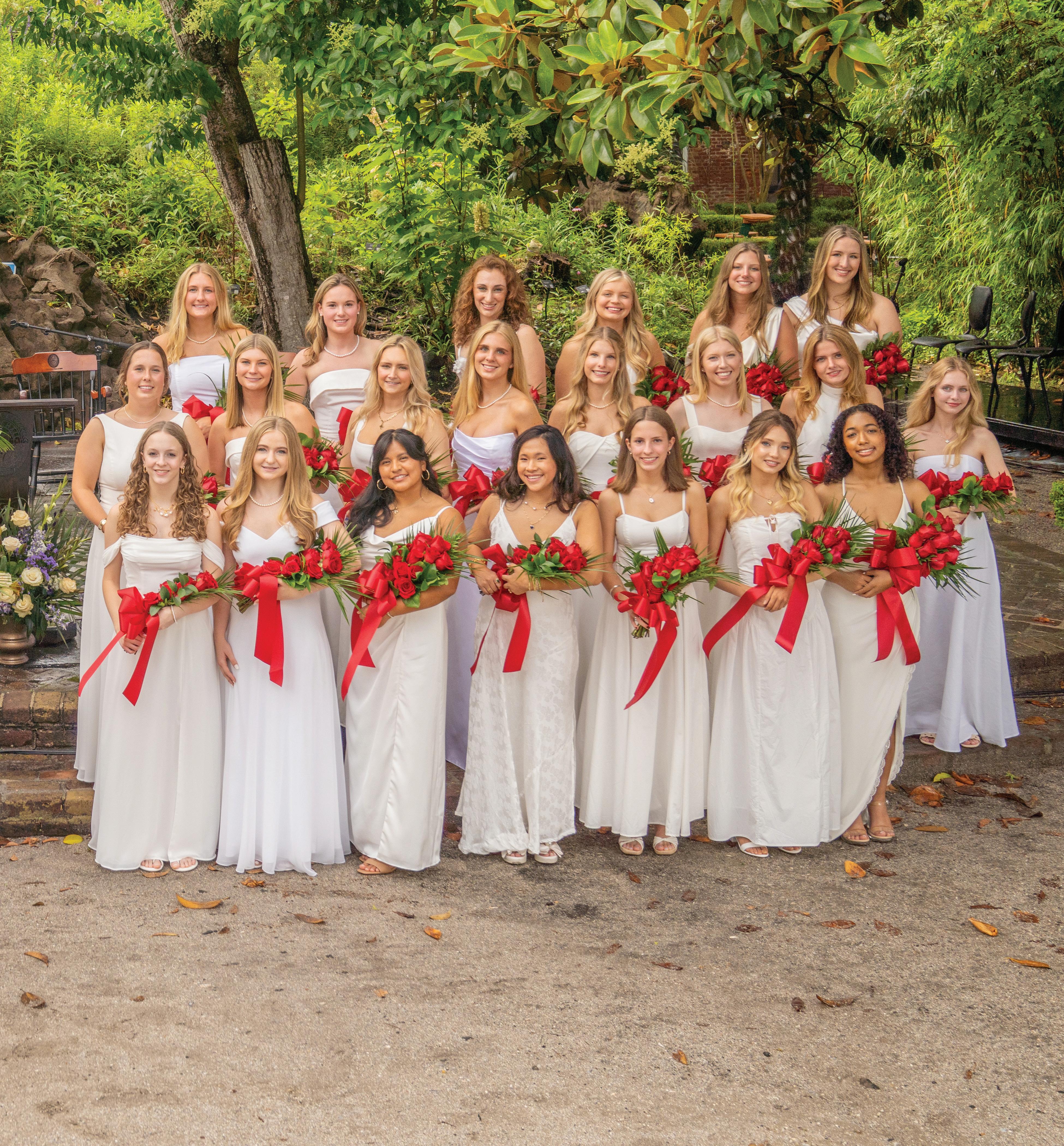
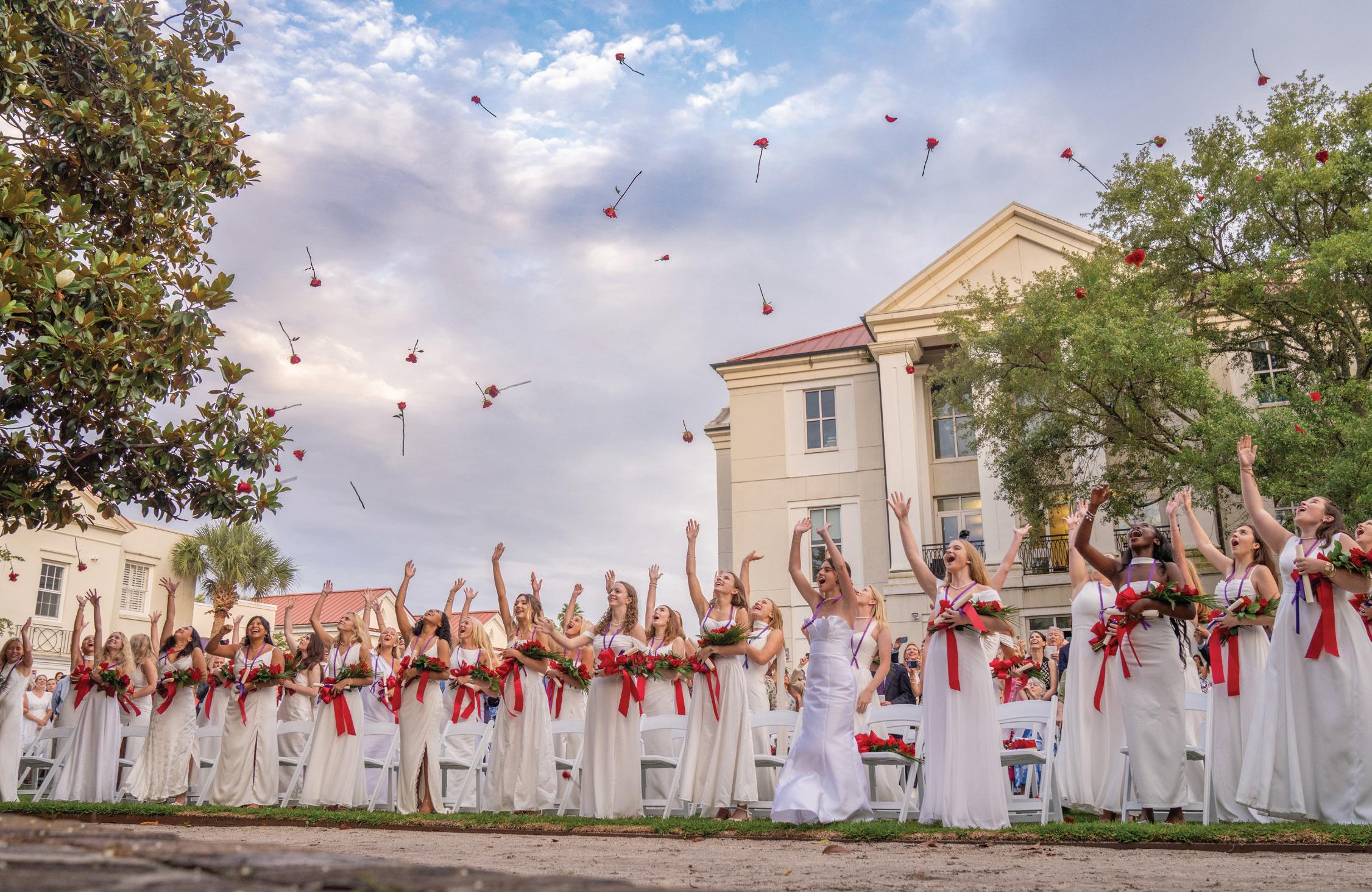
&
Pomp, Circumstance, a Sky Full of Promise
Despite a day drenched in steady, unrelenting rain, the skies finally offered a reprieve just in time for Ashley Hall’s Commencement ceremony on May 25, 2025. The Senior Lawn, sacred ground for many final goodbyes and new beginnings, was ready to welcome the graduating class in all its glory.
To begin, the graduates gathered in their white dresses and processed in to the familiar strains of Pomp and Circumstance. When the sound system faltered momentarily, no doubt due to the moisture still in the air, the crowd took over and carried the tune. Family, friends, and faculty began humming the melody, surrounding the girls in a wave of shared celebration and spirit. It was an impromptu gesture of unity that surely reminded everyone of the deep-rooted community at Ashley Hall.
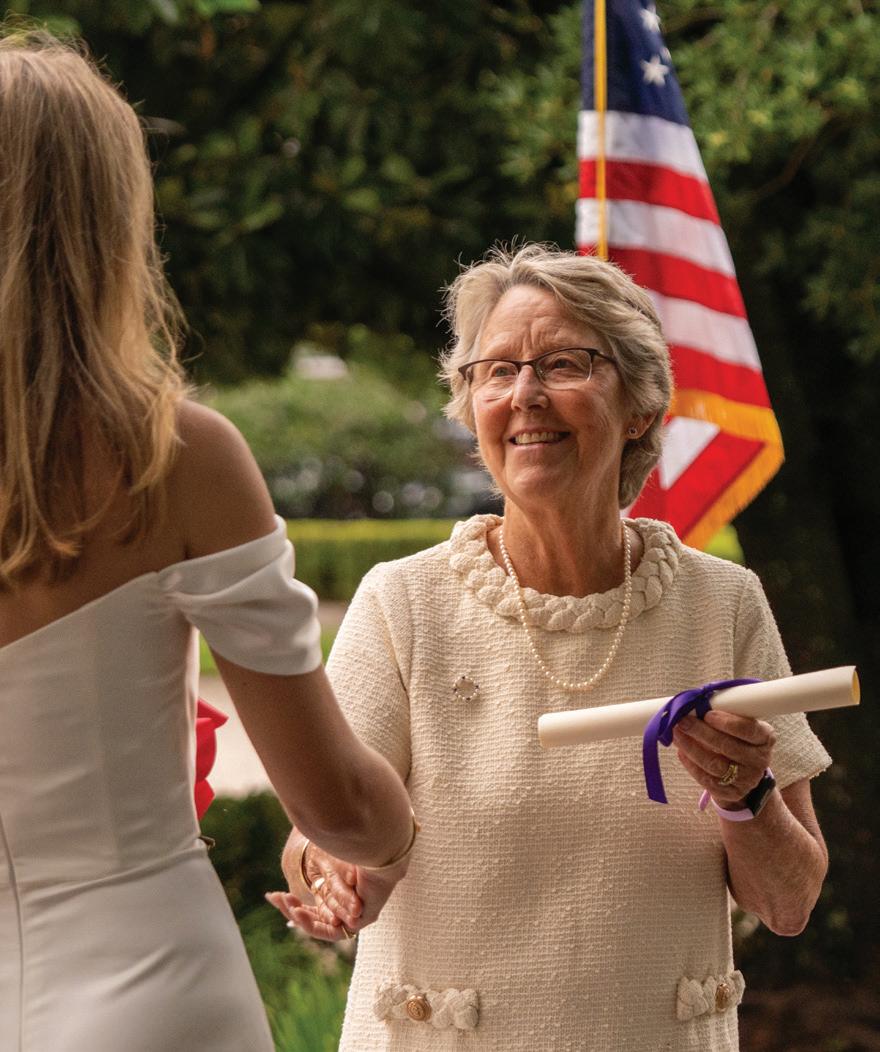
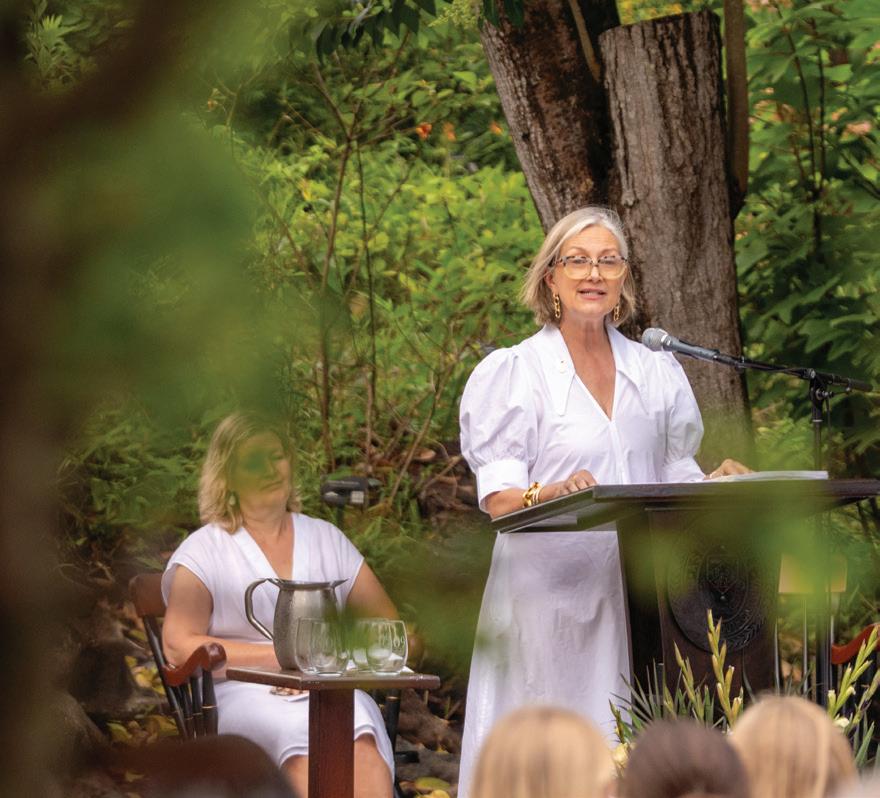
Miya Brown ’25 presented this year’s class gift to the School: the restoration of a historic campus fountain to be used as both a literal and symbolic wishing well. More than just a decorative landmark, it symbolizes the graduates’ hope that generations of future Ashley Hall students will continue to dream boldly, keep wishing, and have a special place to share their aspirations.
Second Honor Graduate, Caroline Rivers ’25, reflected on her love of history and the personal connections that have shaped her years at Ashley Hall. She spoke of tradition as a foundation—an anchor in her journey—and of the memories she carries forward with gratitude and grace. Her words reminded all in attendance of the lasting impact of shared experiences and enduring school spirit.
First Honor Graduate, Charlotte Torrez ’25, followed with heartfelt reflections on the power of sisterhood and the responsibility that comes with it. She emphasized the importance of embracing the Ashley Hall mission beyond graduation, urging her classmates to carry it with them always, and to pay it forward. “As we take these next steps after graduation, working our way up various ladders with confidence,” she said,
“I hope we all turn around to offer a hand to other women we meet along the way. Let the Ashley Hall mission be a charge we honor throughout the rest of our lives.”
The Commencement Address was delivered by beloved English faculty member Libby Russler, a guiding presence in the graduates’ lives at Ashley Hall. With warmth and wisdom, she recalled shared adventures, how the class has maintained its spark and sense of humor over the years, and shared moments of growth. Her parting encouragement? That the graduates fill their college suitcases with PQV* and wear it proudly as a reminder of their strength, grit, and spirit. In closing, she reminded graduates of the deep community they belong to: “Remember these white dresses unite you today not only as the Class of 2025, but also with every Ashley Hall graduate who has gone before you, and with your younger sisters—the juniors, sophomores, and freshmen—who will one day, in white gowns of their own, fill your seats. E pluribus unum: out of many, one.”
In the end, the ceremony unfolded just as it was meant to. It was timeless, meaningful, and deeply Ashley Hall. The Class of 2025 leaves us full of promise and potential, and we look forward to seeing how they shape the world with courage, grace, and a whole lot of PQV.
* Possunt Quae Volunt (PQV) is the Ashley Hall motto, meaning girls who have the will, have the ability.
OPPOSITE TOP: | The rose toss as the Class of 2025 celebrates Commencement. MIDDLE: Head of School Anne T. Weston ’73 awards a diploma. BOTTOM: Upper School faculty member Libby Russler delivers the Commencement Address. THIS PAGE, TOP: Miya Brown ’25 (left), Charlotte Torrez ’25 (center), and Perrin O’Kelley ’25 (right) celebrate during the ceremony. MIDDLE: Charlotte Torrez ’25 addresses her classmates as First Honor Graduate. BOTTOM: Sims Wadley ’25 (left), Gates McCants ’25 (center), and Caroline Rivers ’25 (right) share an embrace following the ceremony. Photos by Brian Principe.
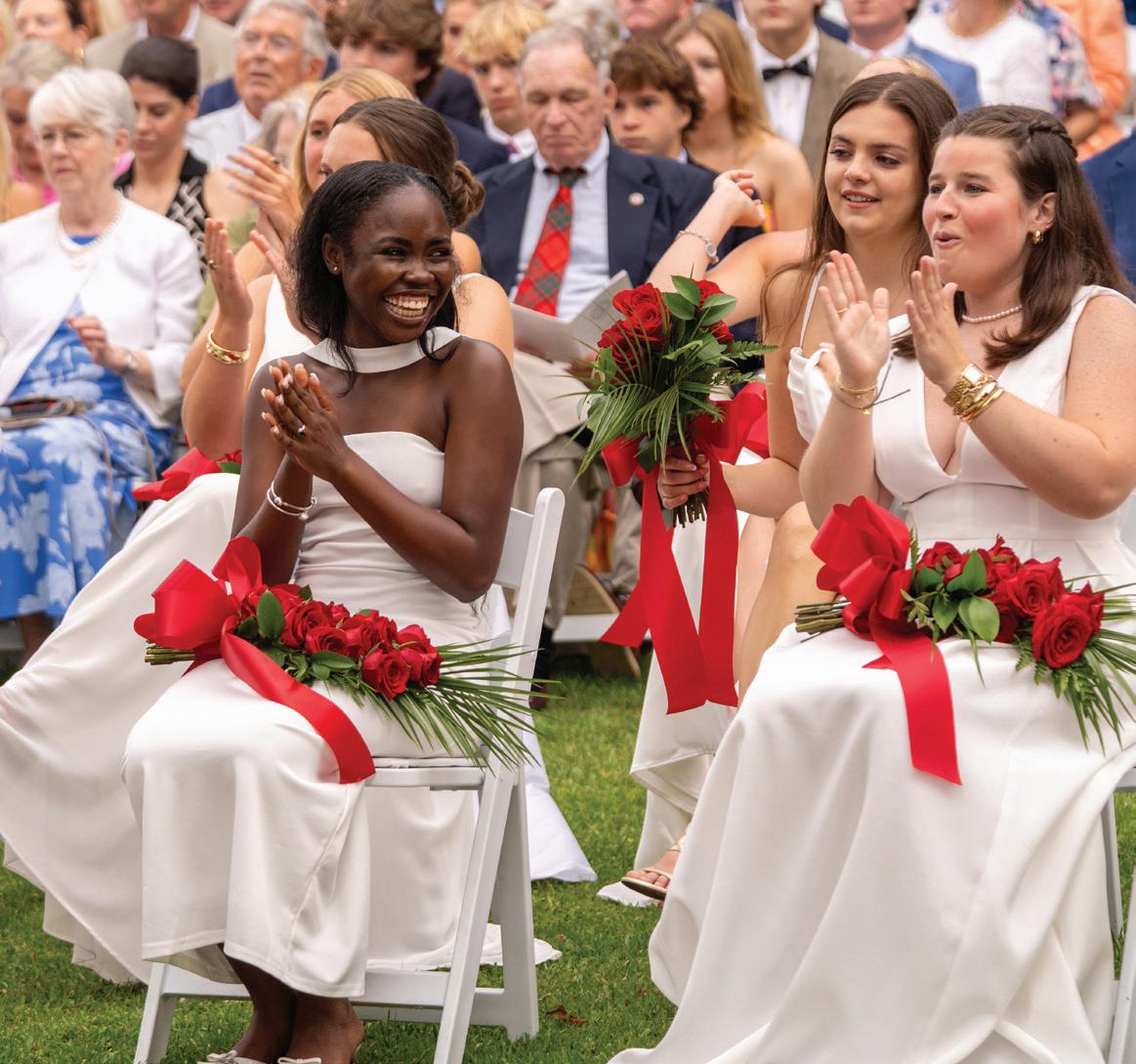
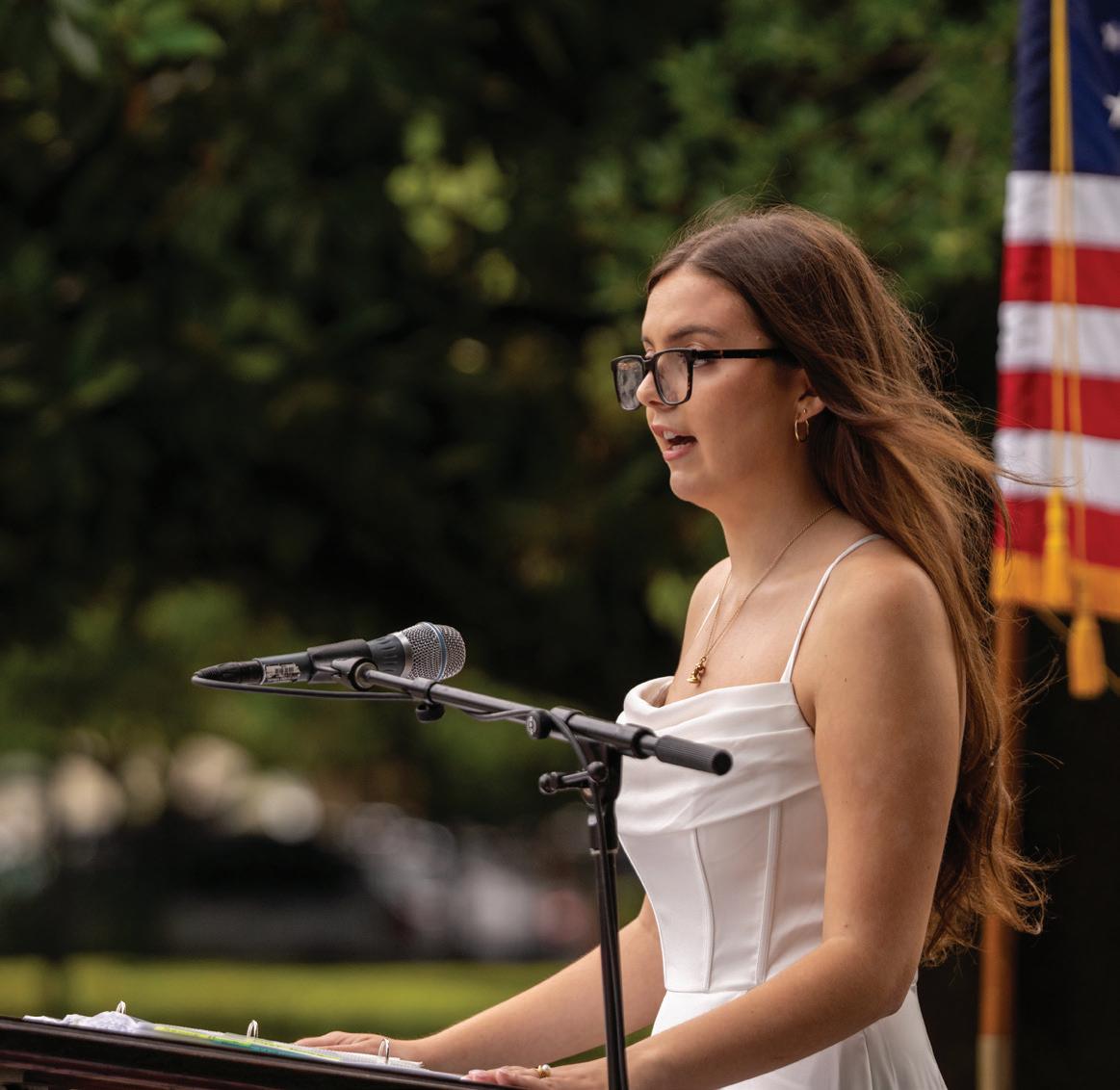
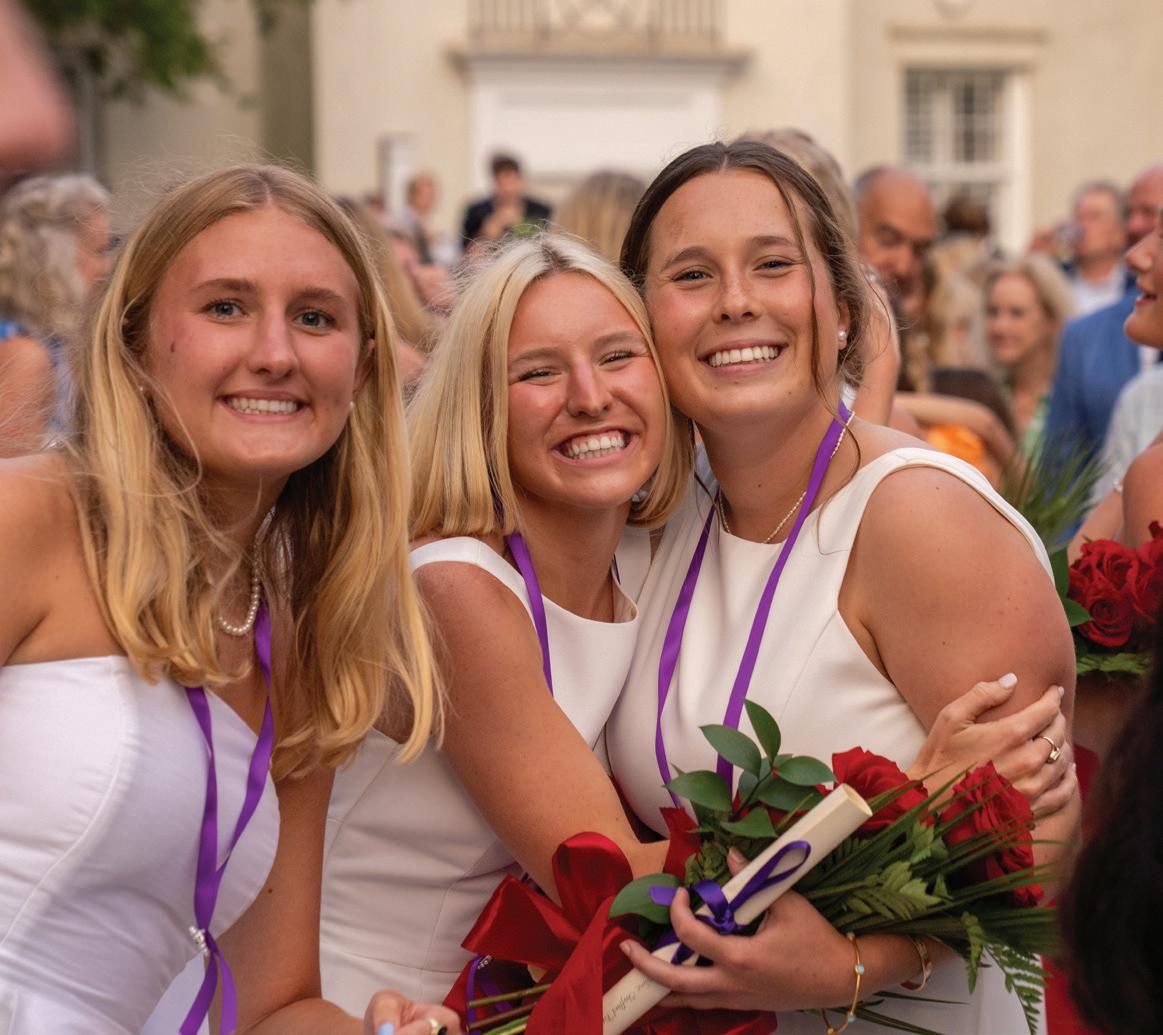
ASHLEY HALL CLASS OF 2025 COLLEGE ACCEPTANCES
American University
Appalachian State University
Auburn University
Barnard College
Baylor University
Belmont University
Boston University
Brevard College
Brown University
California State University (Long Beach)
California State University (Los Angeles)
Charleston Southern University
Citadel Military College of South Carolina
Clemson University
Coastal Carolina University
College of Charleston
College of Saint Benedict
Columbia College
Columbia University
Creighton University
Davidson College
East Carolina University
Eckerd College
Elon University
Flagler College
Florida Atlantic University
Florida Southern College
Fordham University
Furman University
George Washington University
Bold Type = Schools graduates will attend
Harvard University
High Point University
Howard University
Ithaca College
James Madison University
Liberty University
Louisiana State University
Loyola University Maryland
Marymount Manhattan College
Mercer University
New York University
North Carolina A & T State University
Northeastern University
Pace University
Parsons School of Design at The New School
Penn State University (University Park)
Rollins College
Savannah College of Art and Design
Sewanee: The University of the South
Southern Methodist University
Spelman College
St. John’s University
Syracuse University
Texas A&M University
Texas Christian University
The American University of Paris
The University of Alabama
The University of Tampa
The University of Tennessee (Knoxville)
Regular Type = Schools graduates were accepted
The University of Texas at Austin
Tulane University
University of California (Los Angeles)
University of California (San Diego)
University of California (Santa Barbara)
University of Colorado Boulder
University of Florida
University of Georgia
University of Kentucky
University of Maryland (College Park)
University of Miami
University of Mississippi
University of North Carolina at Asheville
University of North Carolina at Chapel Hill
University of North Carolina at Charlotte
University of South Carolina
University of St Andrews
University of St Thomas
University of Virginia
Vanderbilt University
Virginia Commonwealth University
Washington and Lee University
Wellesley College
Western Carolina University
William & Mary
Winthrop University
Wofford College
Yale University
PARTING SHOT
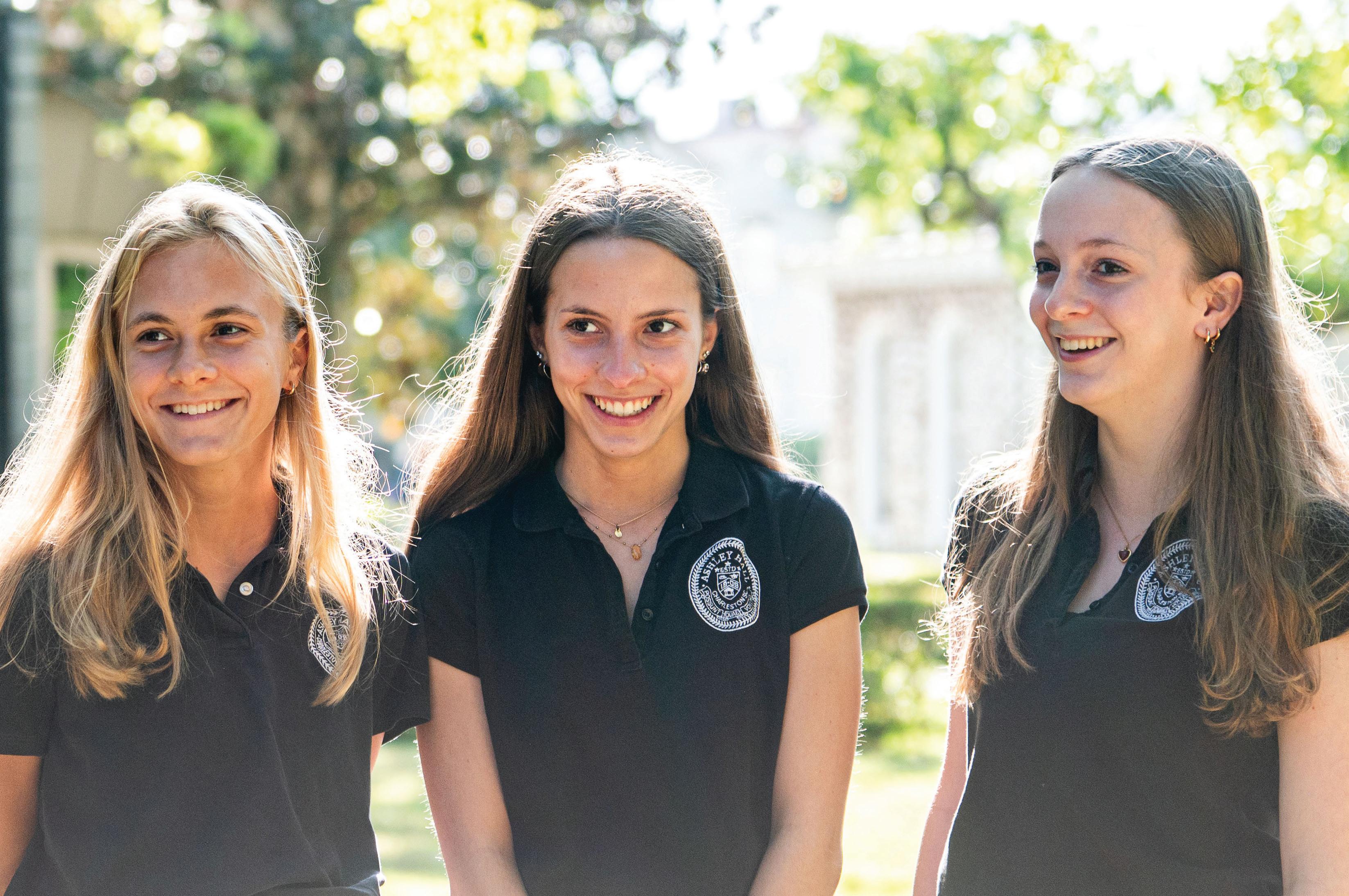
There’s a first time for everything, and this spring, Ashley Hall is (triply) thrilled to celebrate what we believe is a historic first: the graduation of triplets! Kate (left), Elliott (center), and Sarah Farr (right), members of the Class of 2025, have shared classes, had the same homework assignments, made countless memories on campus together, and now they are sharing the commencement stage.
What’s more, Ashley Hall is practically in their DNA. Their mom, Harriet Farr, graduated in 1996 and proudly paved the way for her daughters. Their grandmother, Meyriel Edge, was
a beloved art teacher at Ashley Hall for 30 years. The family tree is bursting with Panther pride on every branch.
From soccer fields to stage lights, each Farr sister has carved out her unique path, proving that even when you share the same birthday, you can still shine in your own spectacular way. They say good things come in threes, and after knowing Sarah, Elliot, and Kate, we are inclined to believe it. Though rumor has it there’s still debate over who “borrowed” whose hoodie last. Photo by Libby Williams
